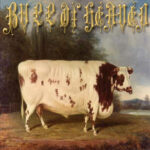The 1980s: a sonic boom of audacious innovation and unforgettable anthems. It was a decade where musical boundaries blurred, excess was celebrated, and icons were forged. Think towering hairstyles, thunderous drum beats, and shoulder pads that defied gravity. This was the era of titans like Prince, Madonna, Michael Jackson, Bruce Springsteen, Janet Jackson, Sade, and Cher, each pushing the envelope and redefining popular music. New genres exploded onto the scene, with hip-hop seizing the cultural narrative of young America, glam metal dominating the Sunset Strip, and synth-pop’s New Romantic wave flooding MTV’s airwaves. Michael Jackson’s Thriller didn’t just break records; it became a cultural phenomenon. Music got louder, bolder, and wonderfully chaotic. Are you ready to revisit this exhilarating era? Welcome to the 80s, baby.
Let’s embark on a journey through the 50 greatest songs of the Eighties, a curated mixtape reflecting the decade’s glorious musical insanity. This isn’t just a list of hits; it’s a selection of deep cuts, fan favorites, and genre-defining tracks. Expect a vibrant blend of pop classics, rock anthems, rap pioneers, soul divas, New Wave innovators, disco throwbacks, country gems, punk rebels, dance floor fillers, smooth ballads, and even those karaoke songs that clear the room (but you secretly love). We’ve got legendary figures alongside one-hit wonders, groundbreaking new voices erupting from the underground, and yes, a healthy dose of cheese and sleaze. It’s where Axl Rose met Slash, Salt-N-Pepa met the mainstream, and Echo met the Bunnymen. From Frankie Goes to Hollywood’s boldness to Public Enemy’s sonic assault and Madonna’s unapologetic sexuality, the 80s delivered it all. We witnessed the birth of Chicago house, Detroit techno, Miami freestyle, and D.C. go-go. Ska, goth, reggae, acid house—it was all part of the vibrant tapestry. To keep things diverse (and prevent this entire list from being dominated by Prince), we’re limiting it to one song per artist.
These great 80s songs continue to resonate today. Some are staples at weddings, parties, and karaoke nights, universally loved and instantly recognizable. Others might elicit groans of nostalgic embarrassment. Many are tunes you remember vividly, and some you might have tried to bury deep in your memory. But each one is undeniably brilliant in its own way, a piece of the perplexing and captivating Rubik’s Cube that is 80s pop.
So, crank up your virtual boombox, hit play on this ultimate 80s mixtape, and let’s dive into the decade that dared to be different. Push it. Push it real good.
Biz Markie – ‘Just a Friend’
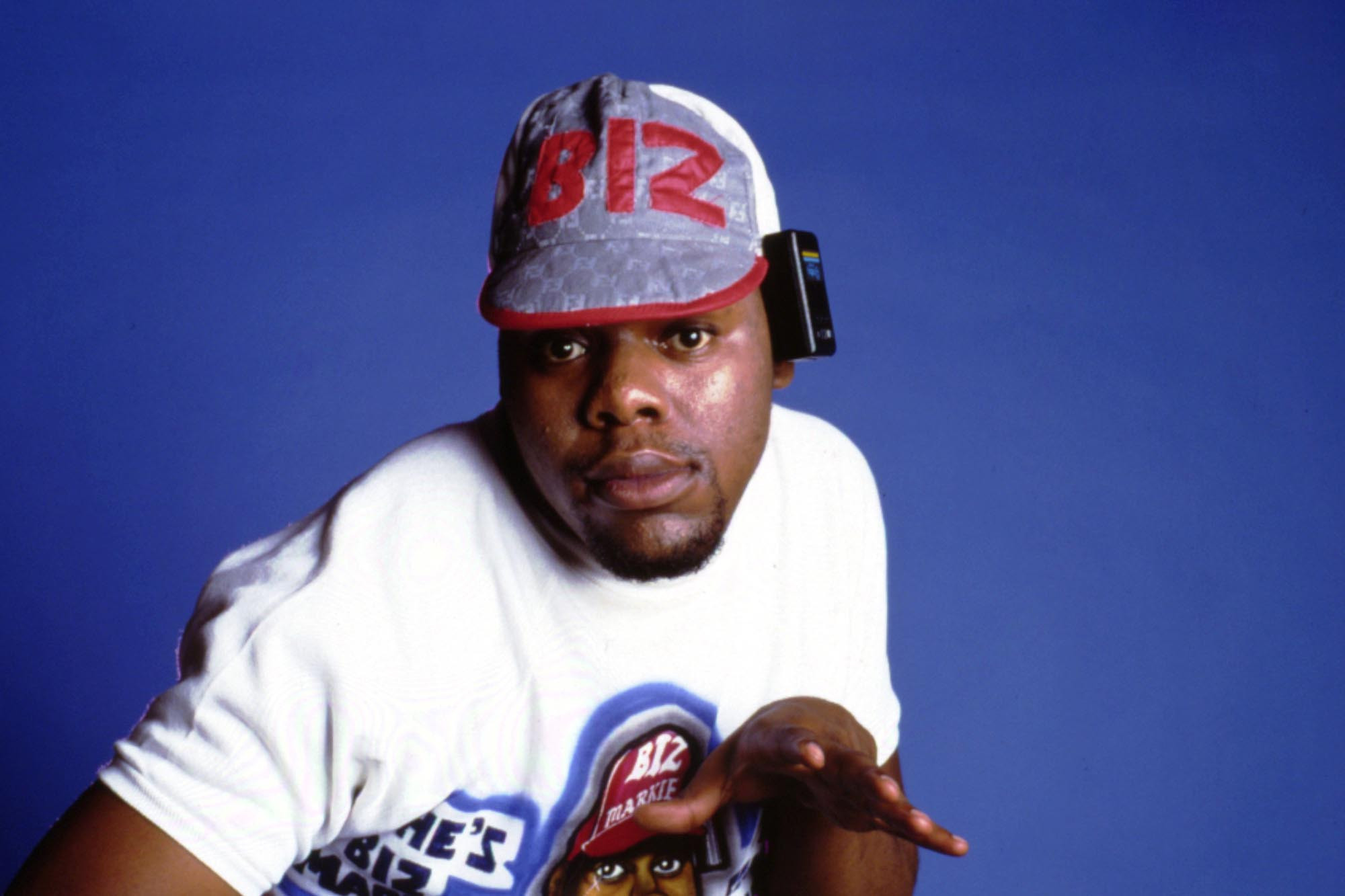 Rapper Biz Markie in a 1988 portrait in New York City, embodying the playful spirit of 80s hip-hop.
Rapper Biz Markie in a 1988 portrait in New York City, embodying the playful spirit of 80s hip-hop.
Image Credit: Michael Ochs Archives/Getty Images
Raise your lighters for the incomparable Biz Markie, a true icon of 80s music and beyond. The Diabolical One, the Human Beatbox, the undisputed class clown of old-school hip-hop – Biz was a force of nature. “Just a Friend” is his timeless masterpiece, an anthem that ignites any party, especially when the chorus hits and everyone belts out, “Oh, baby yooou! You got what I neeeed!” Interestingly, Biz initially conceived it as a heartfelt lament about unrequited love. “But it came out funny,” he admitted. When he played it for his friends Q-Tip and De La Soul, their reaction was telling: “when I sang the hook, they couldn’t stop laughing — they bugged out. Then I knew it was gonna be a good record.” And a good record it was – a perfect song to kick off our 80s party in style.
Nena – ’99 Luftballons’
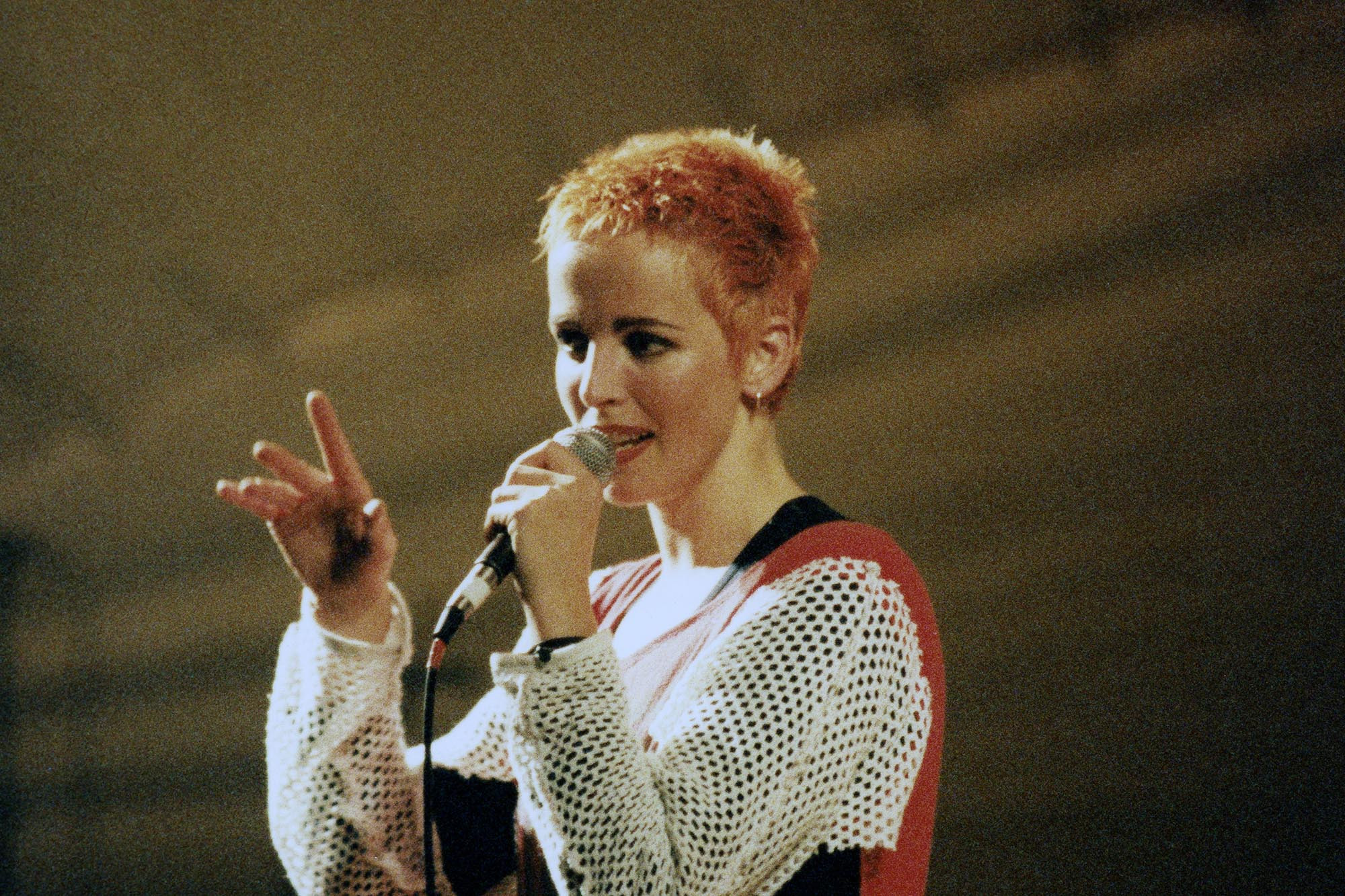 German singer Nena performing live in the 1980s, capturing the New Wave energy of '99 Luftballons'.
German singer Nena performing live in the 1980s, capturing the New Wave energy of '99 Luftballons'.
Image Credit: XAMAX/ullstein bild/Getty Images
A catchy New Wave tune about nuclear apocalypse sung by a German artist? Only in the 80s. Nena’s “99 Luftballons” delivers a surprisingly upbeat melody alongside a chilling narrative of global annihilation. It’s a quirky blend of doomsday anxiety and teen romance, perfectly capturing the era’s fascination with the end of the world – a theme surprisingly common in 80s hits. While the English version, “99 Red Balloons,” is a karaoke favorite, Nena’s original German rendition possesses a unique edge. Her delivery, especially the snarled “Kriegminister,” adds a layer of raw intensity and coolness that’s undeniably captivating.
My Bloody Valentine – ‘Feed Me With Your Kiss’
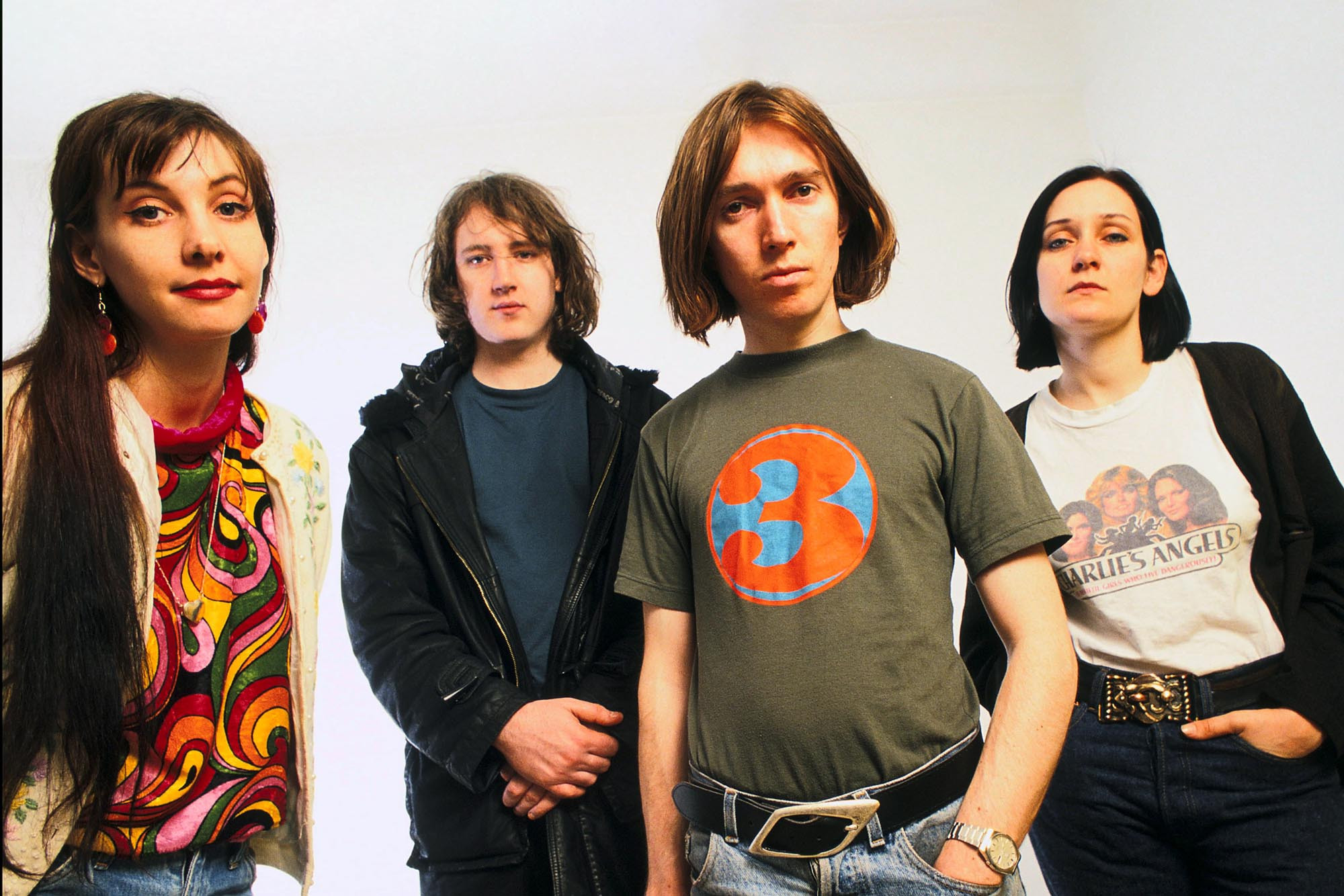 My Bloody Valentine in 1992, pioneers of the shoegaze sound that emerged in the late 80s.
My Bloody Valentine in 1992, pioneers of the shoegaze sound that emerged in the late 80s.
Image Credit: Eric CATARINA/STILLS/Gamma-Rapho/Getty Images
Witness the birth of shoegaze. My Bloody Valentine’s “Feed Me With Your Kiss,” from their groundbreaking debut album Isn’t Anything, offers an early glimpse into their sonic revolution. Irish guitar virtuoso Kevin Shields’ signature tremolo overdrive and feedback loops combine with Belinda Butcher’s ethereal vocals and thunderous, almost clumsy drumming to create a soundscape of pure, brain-melting bliss. It’s noise as rapture, a chaotic yet beautiful sonic experience that defined a new era in guitar music in the late 80s.
Bobby Brown – ‘My Prerogative’
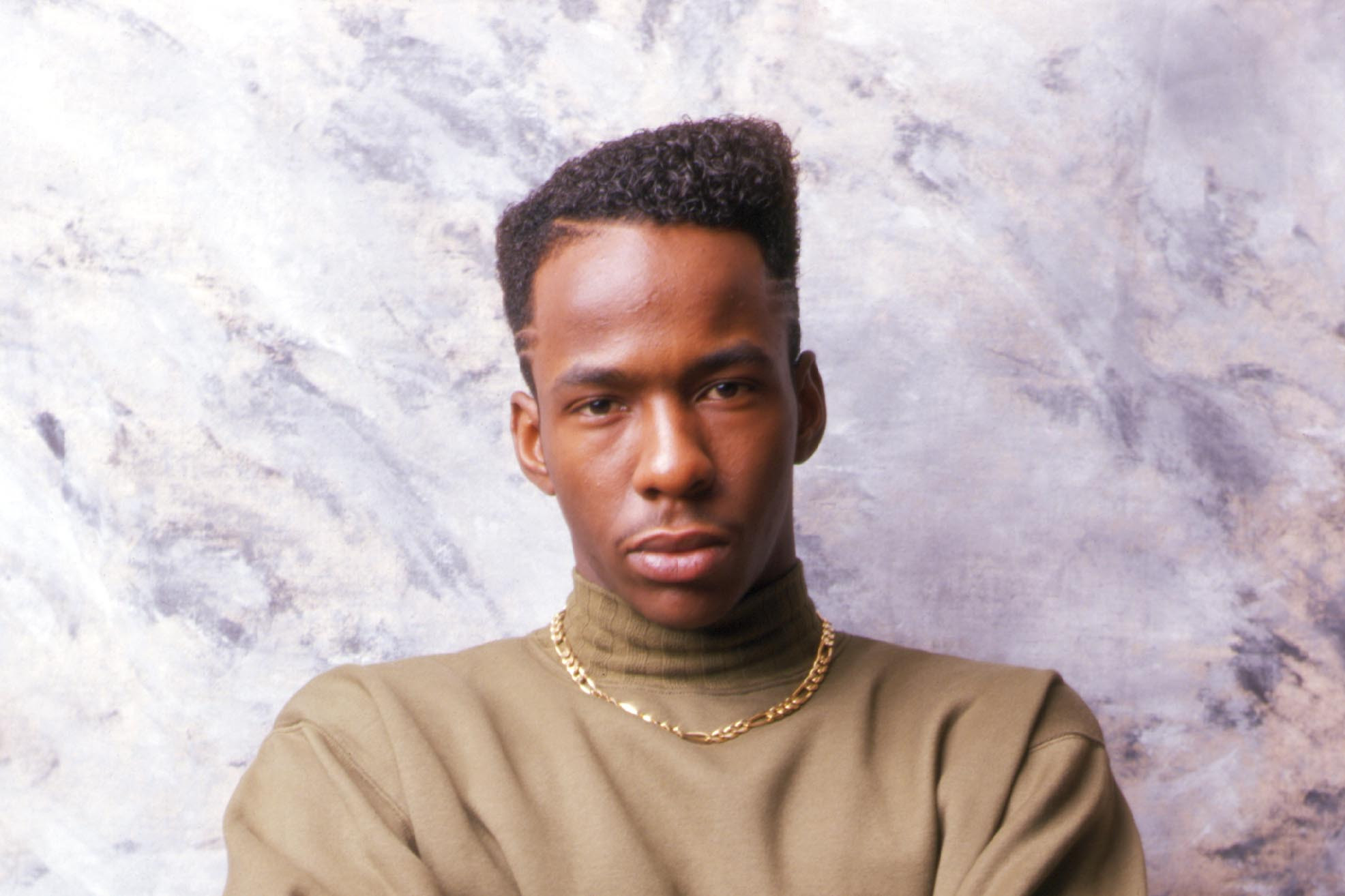 Bobby Brown sporting his signature Gumby haircut in a 1988 portrait, embodying the New Jack Swing style.
Bobby Brown sporting his signature Gumby haircut in a 1988 portrait, embodying the New Jack Swing style.
Image Credit: Michael Ochs Archives/Getty Images
This is New Jack Swing in its prime. Bobby Brown’s “My Prerogative” is more than just a song; it’s a defiant statement of independence and a juicy slice of celebrity gossip set to a groundbreaking beat. Produced by the young Harlem prodigy Teddy Riley, the track’s infectious rhythm and Brown’s relatable frustrations about fame propelled it to the top of the charts and defined the sound of radio for years to come. The song’s themes of personal freedom and dealing with public scrutiny resonated so strongly that Britney Spears later borrowed “My Prerogative” as the title of her 2004 greatest hits album, proving its enduring cultural impact.
The Fall – ‘New Big Prinz’
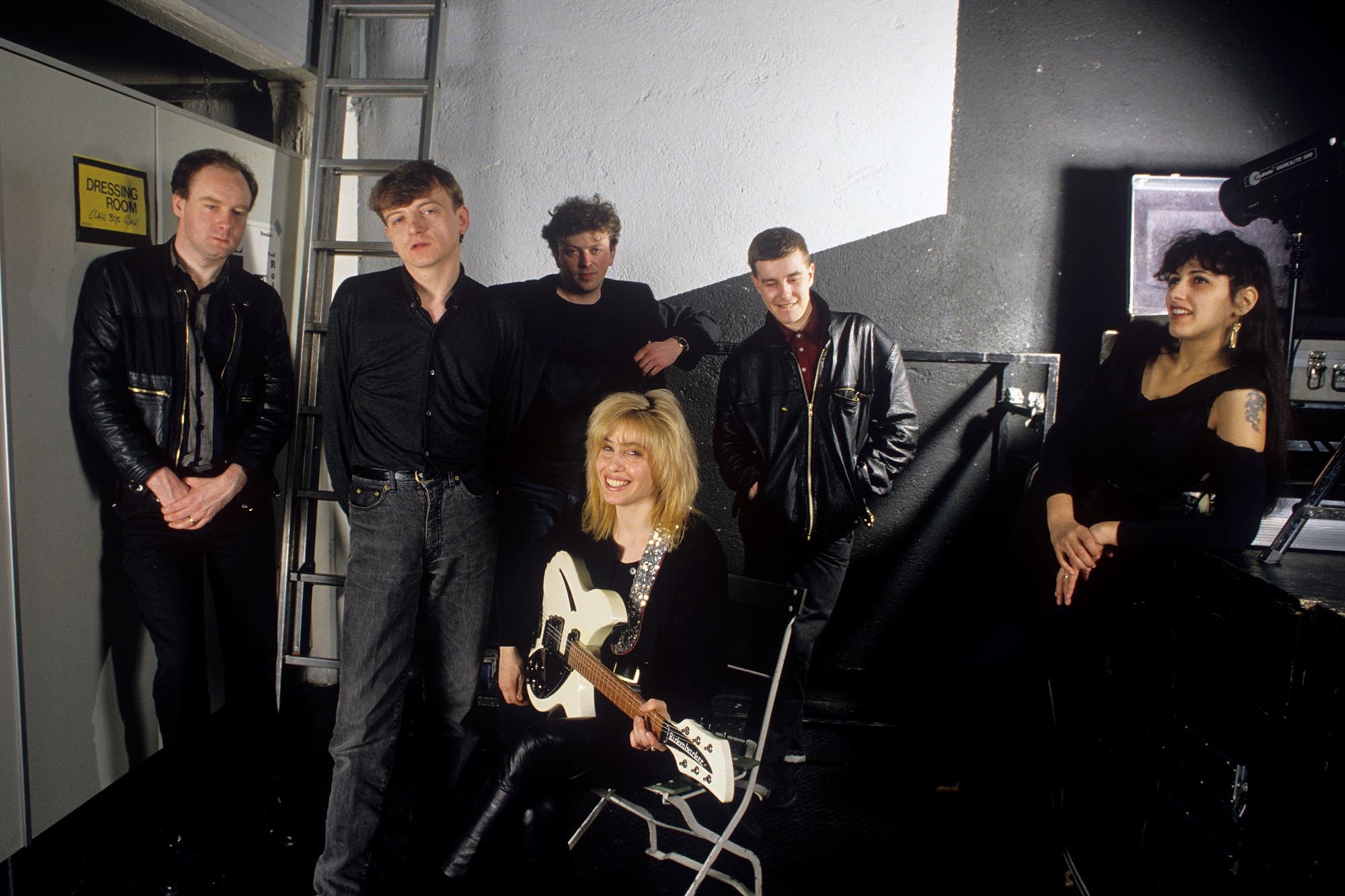 Mark E. Smith of The Fall performing in Munich in 1988, embodying the band's post-punk spirit.
Mark E. Smith of The Fall performing in Munich in 1988, embodying the band's post-punk spirit.
Image Credit: Fryderyk Gabowicz/picture alliance/Getty Images
The Fall, led by the enigmatic and often abrasive Mark E. Smith, were post-punk royalty in the 1980s. Smith, self-proclaimed “Hip Priest” and Manchester’s caustic son, reveled in challenging audiences and bandmates alike. “People still cross the road from me; I’ve still got that,” he famously boasted. “I can clear a pub when I want to. It’s a talent.” “New Big Prinz” is a prime example of The Fall’s unique sound – a stomping track fueled by glam-rock guitars and handclaps, with Smith’s then-wife Brix Smith adding her pop sensibilities to the mix. Smith’s signature barked vocals deliver lines like, “Check the record, check the record, check the guy’s track record! He is nuts!” with characteristic intensity and humor.
The Bangles – ‘Hero Takes a Fall’
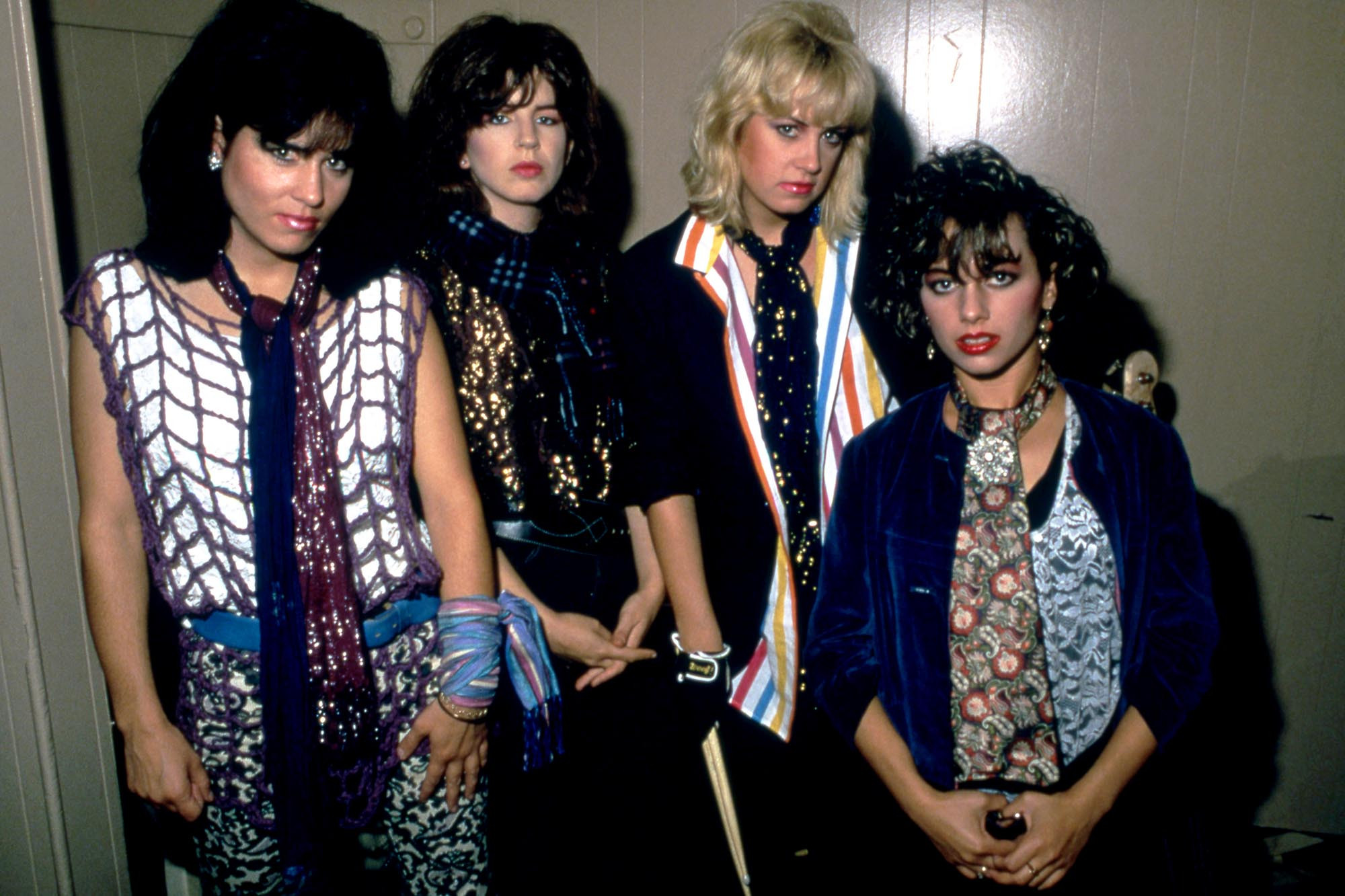 The Bangles in San Francisco in 1984, showcasing their mod-inspired style and harmonies.
The Bangles in San Francisco in 1984, showcasing their mod-inspired style and harmonies.
Image Credit: Randy Bachman/Getty Images
The Bangles, hailing from California, brought a cool, tough-girl attitude to the 80s music scene, blending it with sharp wit, Rubber Soul-esque harmonies, and the jangly charm of vintage Rickenbacker guitars. “Hero Takes a Fall,” the breakout single from their 1984 debut album All Over the Place, captured their early sound perfectly. Back then, they were still LA rock & roll hipsters with a penchant for 60s thrift store fashion. This track’s catchy melodies and subtle feminist undertones caught the ear of Prince, inspiring him to later write “Manic Monday” for them. Susanna Hoffs and Vicki Peterson’s guitar work shines, complementing lyrics that subtly critique male egos – hinting at the fiery spirit beneath Hoffs’ captivating stage presence.
A-ha – ‘Take On Me’
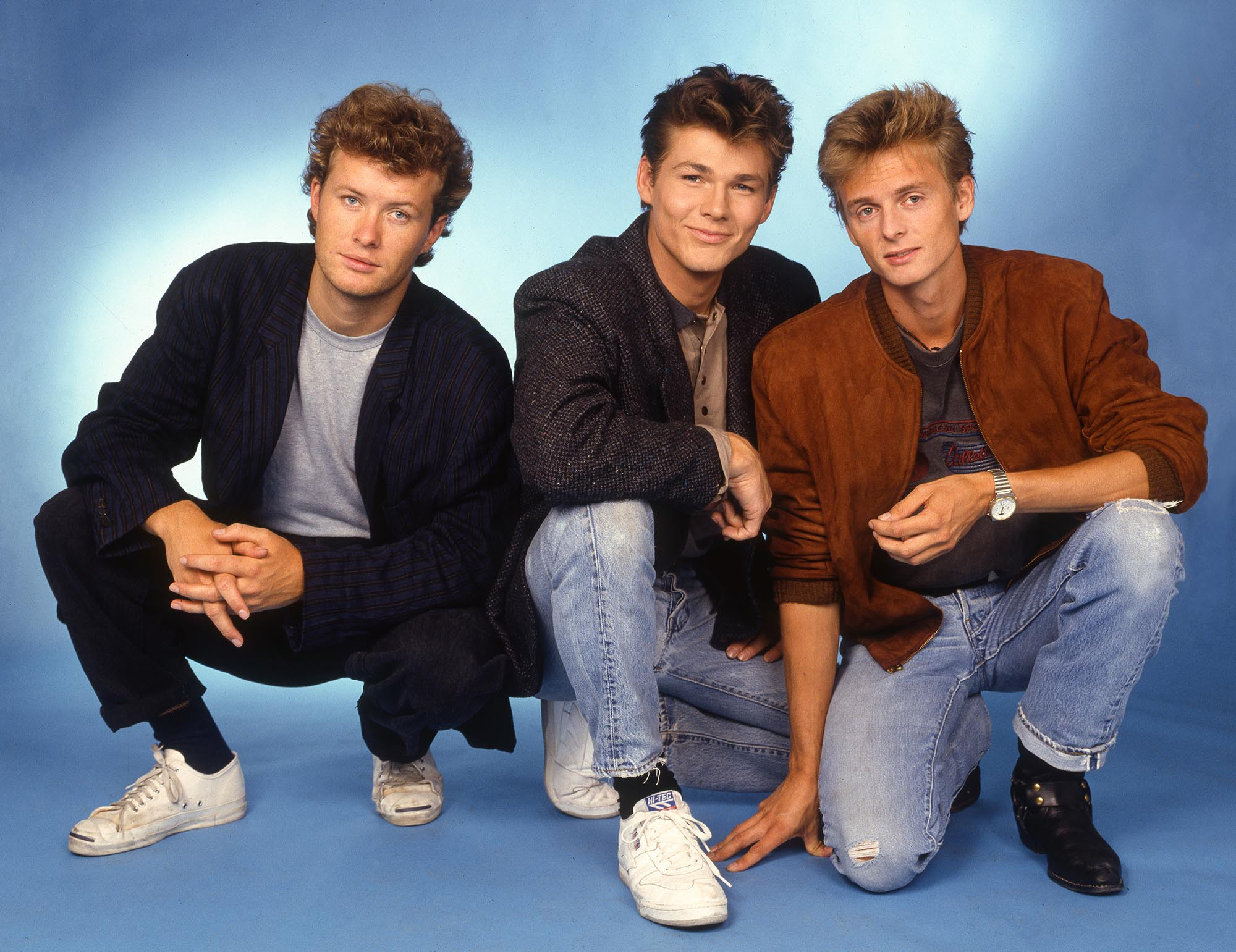 A-ha in 1985, the Norwegian pop trio that conquered the US with 'Take On Me'.
A-ha in 1985, the Norwegian pop trio that conquered the US with 'Take On Me'.
Image Credit: Tim Roney/Getty Images
A-ha, the Norwegian pop sensation, charmed America with their striking cheekbones, their innovative music video, but most importantly, Morten Harket’s breathtaking falsetto. Harket’s ability to sustain that soaring high note in “Take On Me” for an unbelievable 18 seconds is just one part of the song’s magic. Fun fact: Harket actually holds the world record for the longest-held note in a pop song – a staggering 20.2 seconds in his 2000 single “Summer Moved On,” surpassing Bill Withers’ “Lovely Day” record by two seconds. Bravo, Norway, for gifting us not just stunning landscapes, but also incredible vocal talent.
Debbie Deb – ‘Lookout Weekend’
A Miami party girl and a pioneering freestyle hit – that’s Debbie Deb and “Lookout Weekend.” Produced by Pretty Tony Butler, the track features lethal DMX beats and the teenage Debbie Deb’s infectious chant, “Lookout weekend, ’cause here I come/Because weekends were made for fun.” The song captures the anticipation and excitement of weekend freedom, transforming Debbie Deb into a dance floor goddess. Her lyrics paint a vivid picture of the 80s club scene – “Jumping music! Slick DJs! Fog machines and laser rays!” – where every girl is ready to ignite the night.
Leonard Cohen – ‘Tower of Song’
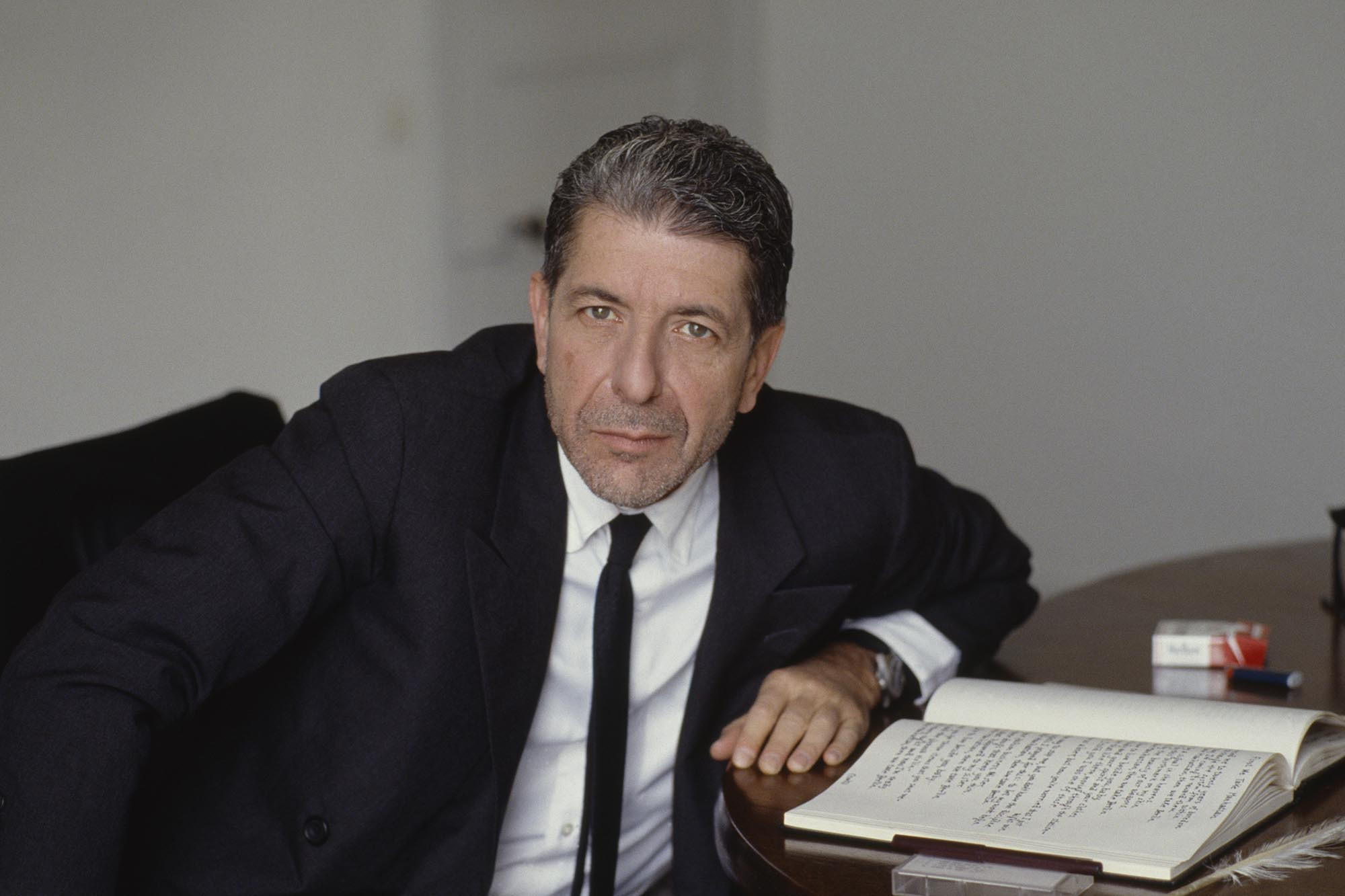 Leonard Cohen during a 1980s photoshoot, the elder statesman of rock.
Leonard Cohen during a 1980s photoshoot, the elder statesman of rock.
Image Credit: Eric Préau/Sygma/Getty Images
Leonard Cohen emerged as rock’s wise elder statesman in the 80s, a 53-year-old Jewish-Canadian poet delving into themes of love, mortality, and the enduring torment of desire. His 1988 album I’m Your Man revitalized his career, bringing him mainstream fame after years of struggling for recognition in the US. Interestingly, “Hallelujah,” now one of his most famous songs, went largely unnoticed upon its initial release. “Tower of Song” is a poignant reflection on his life and artistry, particularly the self-aware line, “I was born like this/I had no choice/I was born with the gift of a golden voice.” It’s Cohen at his most wry, melancholic, and profound.
The Jungle Brothers – ‘Tribe Vibes’
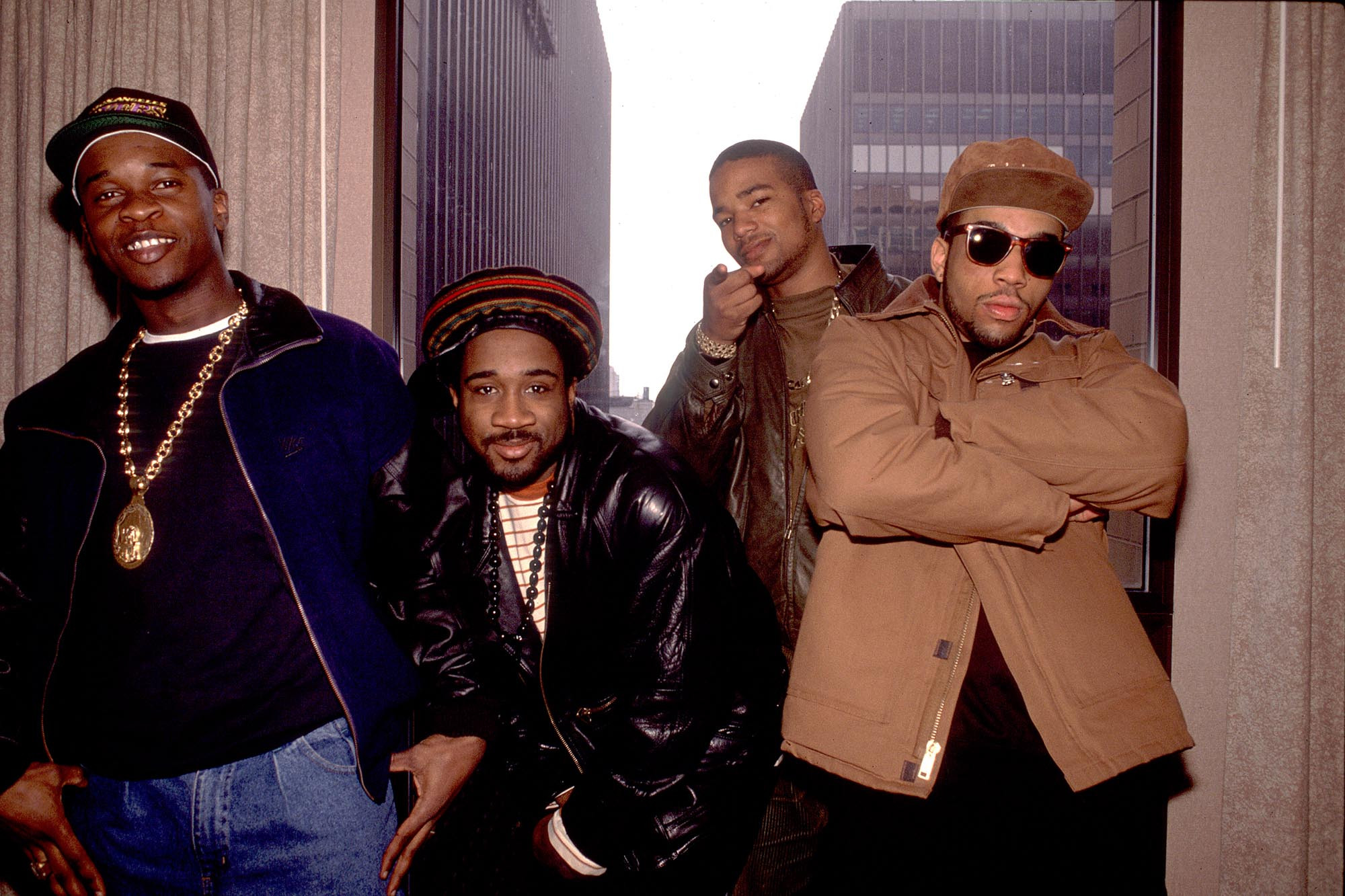 The Jungle Brothers in Chicago in 1990, key figures in the Native Tongues movement.
The Jungle Brothers in Chicago in 1990, key figures in the Native Tongues movement.
Image Credit: Paul Natkin/Getty Image
“Tribe Vibes” is the anthem of the Native Tongues collective, hailing from the Jungle Brothers’ critically underrated second album, Done by the Forces of Nature. This track is a utopian call for unity within the often-fractured hip-hop scene, promoting Afrocentric consciousness and spiritual connection. As the JBs proclaimed, “Work by day, ritual by night, the vibe holds the tribe, and it keeps it real tight.” However, their “tribe” was inclusive, not exclusive, embracing musical diversity – even incorporating guitar solos sampled from the Bee Gees. Shoutouts to their Long Island peers – “We all are thinking on the same plateau, A Tribe Called Quest and De La Soul” – are delivered over a mesmerizing, headphone-worthy groove.
Falco – ‘Rock Me Amadeus’
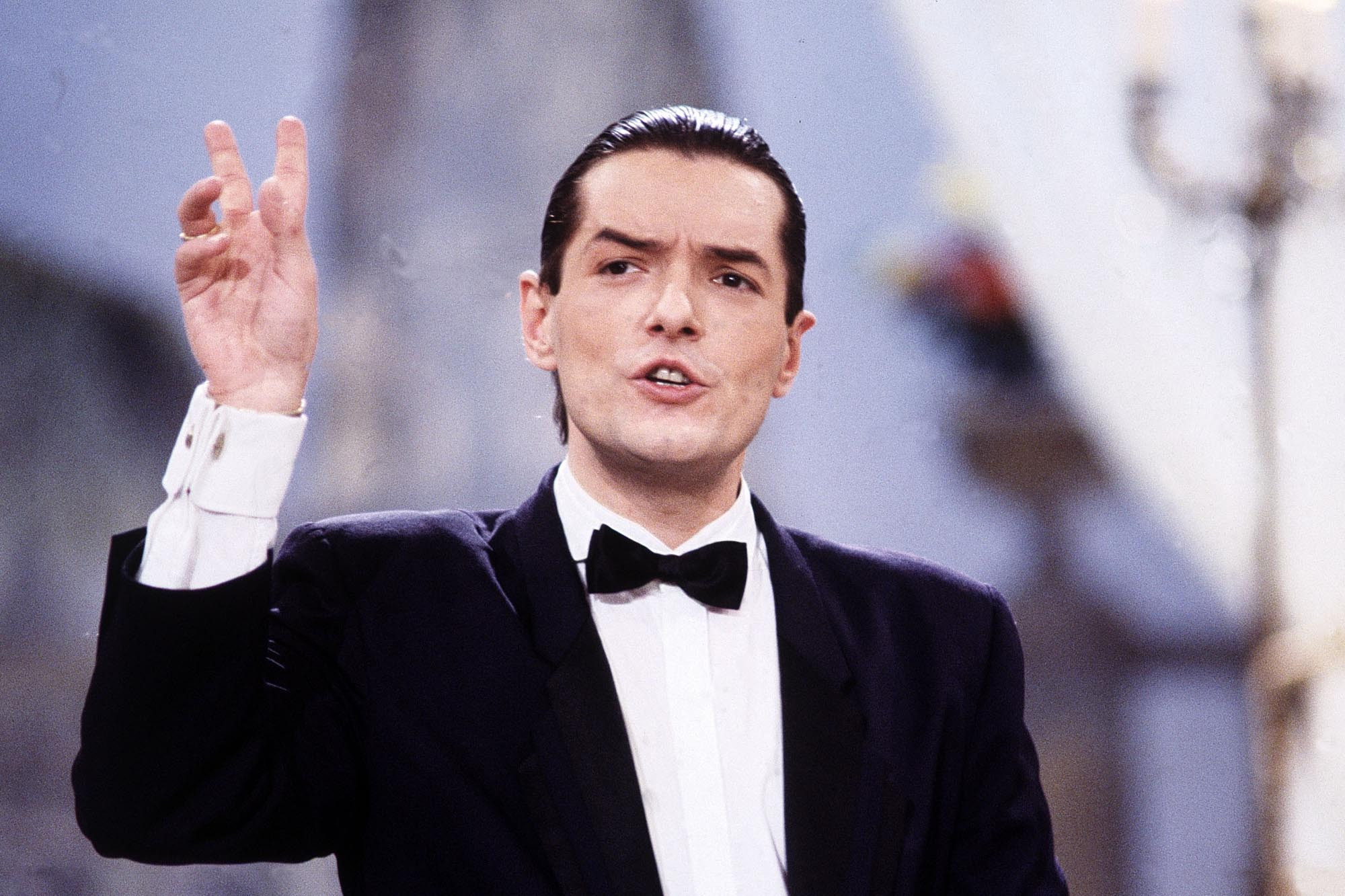 Falco performing live, the Austrian artist behind the unlikely hit 'Rock Me Amadeus'.
Falco performing live, the Austrian artist behind the unlikely hit 'Rock Me Amadeus'.
Image Credit: pa/United Archives/Getty Images
One of the most wonderfully absurd Number One hits of the 80s, a decade that often rewarded outrageousness. Falco, rapping in German about Mozart, attempted to revive powdered wigs as a fashion statement (it didn’t quite catch on, proving the 80s had some limits). Sprinkling in English words like “superstar” and “punk,” he explained, “If Mozart were alive today, he wouldn’t be making classical music; he’d be an international pop star. And I felt it was time to write a song about him.” (And if Mozart were around, he definitely would have written a song about Falco). American audiences favored the “Salieri Mix,” which helpfully included a timeline of Mozart’s life: “1784: Wolfgang Amadeus Mozart becomes a Freemason. 1791: Mozart composes The Magic Flute. On December 5th of that same year, Mozart dies. 1985: Austrian rock singer Falco records, ‘Rock Me Amadeus’!” Pure 80s genius.
Mecca Normal – ‘I Walk Alone’
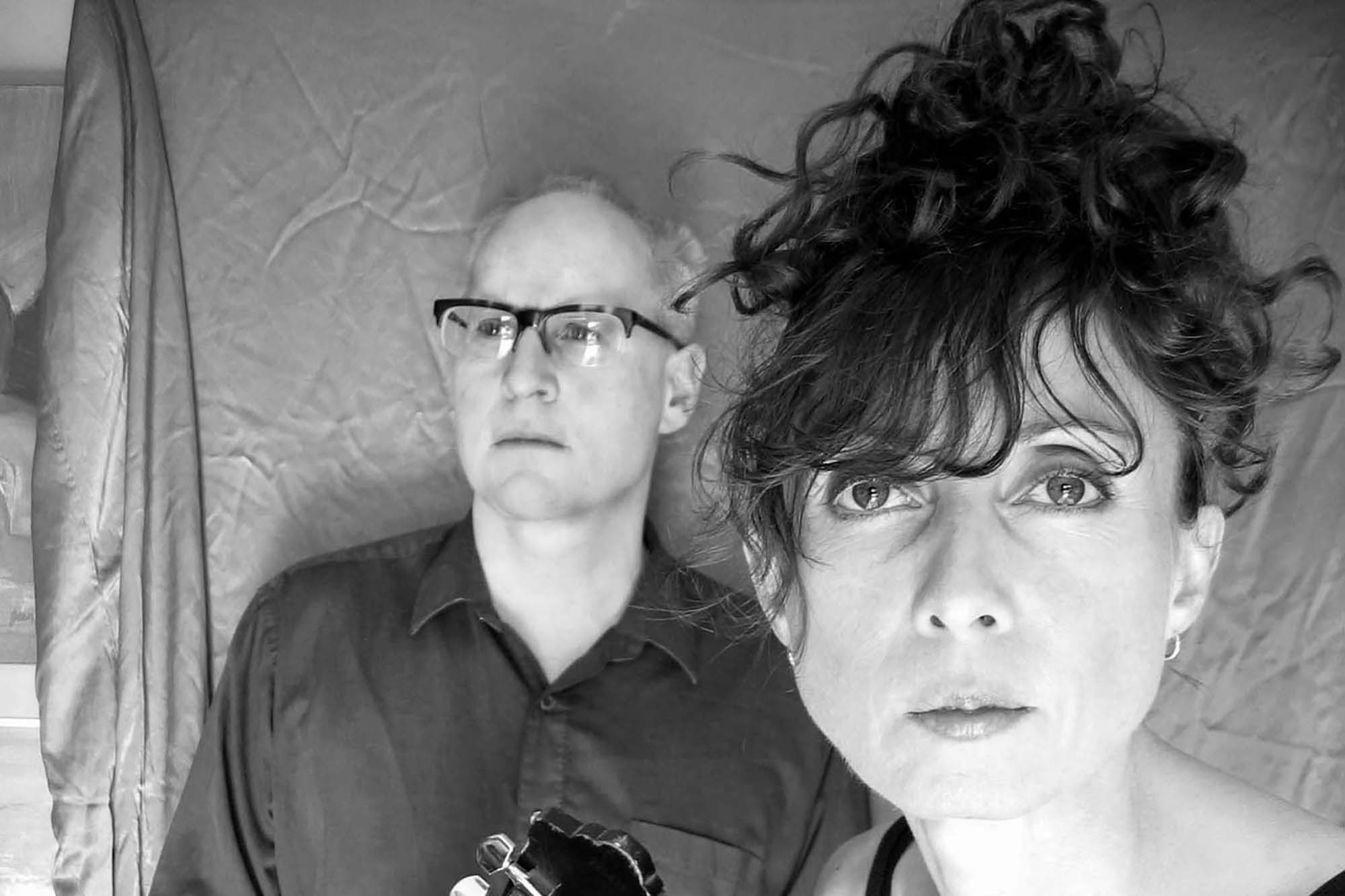 Jean Smith of Mecca Normal, capturing the raw intensity of 'I Walk Alone'.
Jean Smith of Mecca Normal, capturing the raw intensity of 'I Walk Alone'.
Image Credit: Jean Smith
A proto-riot-grrrl sonic Molotov cocktail. Mecca Normal’s “I Walk Alone” is stark and powerful in its simplicity. It features only the voice of punk poet Jean Smith and the guitar of David Lester, depicting a woman navigating a city and feeling perpetually vulnerable. Each repetition of “I walk alone” resonates with increasing depth and poignancy. This song was designed to shift perspectives, and for many who heard it, it did and continues to do so, offering a raw and unflinching look at female experience in urban spaces.
John Anderson – ‘Wild and Blue’
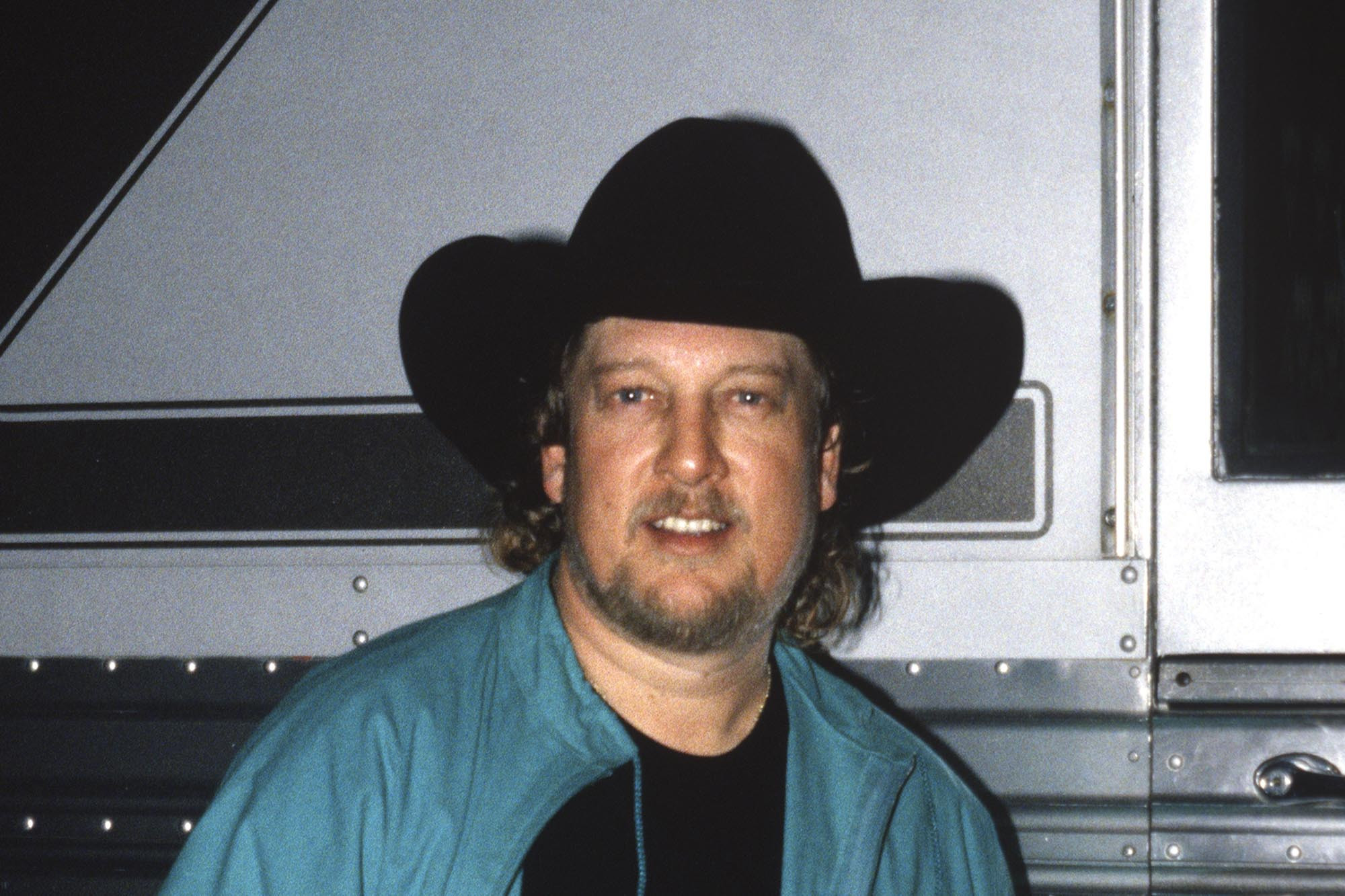 John Anderson in 1993, a key figure in the New Traditionalist country movement.
John Anderson in 1993, a key figure in the New Traditionalist country movement.
Image Credit: Tim Mosenfelder/Getty Images
John Anderson was instrumental in launching the New Traditionalist movement, rescuing 80s country radio from pop crossover trends. His voice, pure Florida backwoods twang, shines in “Wild and Blue.” No glossy pop production here, just authentic country instrumentation – fiddle, banjo, and backing vocals from his sister Donna. It’s a heartbreaking cheating song, with lines like “Somebody’s room on the far side of town/With your minds all made up and the shades all pulled down” painting a vivid picture of infidelity and sorrow.
Trouble Funk – ‘Drop the Bomb’
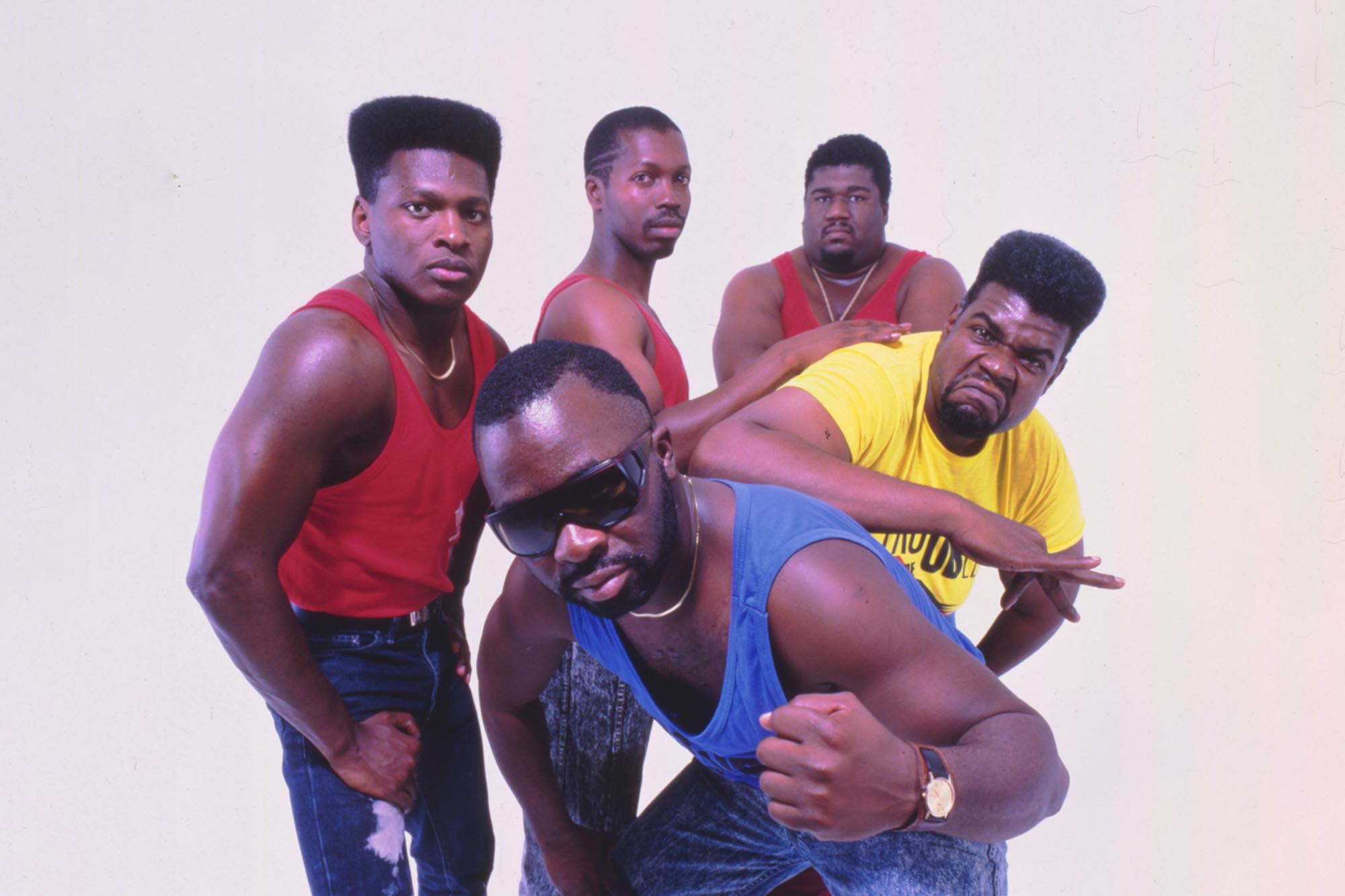 Trouble Funk, pioneers of the DC go-go sound in the 80s.
Trouble Funk, pioneers of the DC go-go sound in the 80s.
Image Credit: Michael Ochs Archives/Getty Images
The D.C. go-go scene delivered some of the most electrifying live band funk of the 80s, with legends like Rare Essence, E.U., and Chuck Brown’s Soul Searchers leading the charge. Trouble Funk encapsulates the genre’s raw energy in “Drop the Bomb.” Congas, cowbells, and cryptic party chants create a pulsating rhythm that’s pure go-go. In the shadow of the White House, Trouble Funk “drops the bomb” on various crews – the Technicolor Crew, the Westside Crew, the White Boy Crew, the Freak Crew, the Potomac Crew – keeping the party going until dawn.
Toto – ‘Africa’
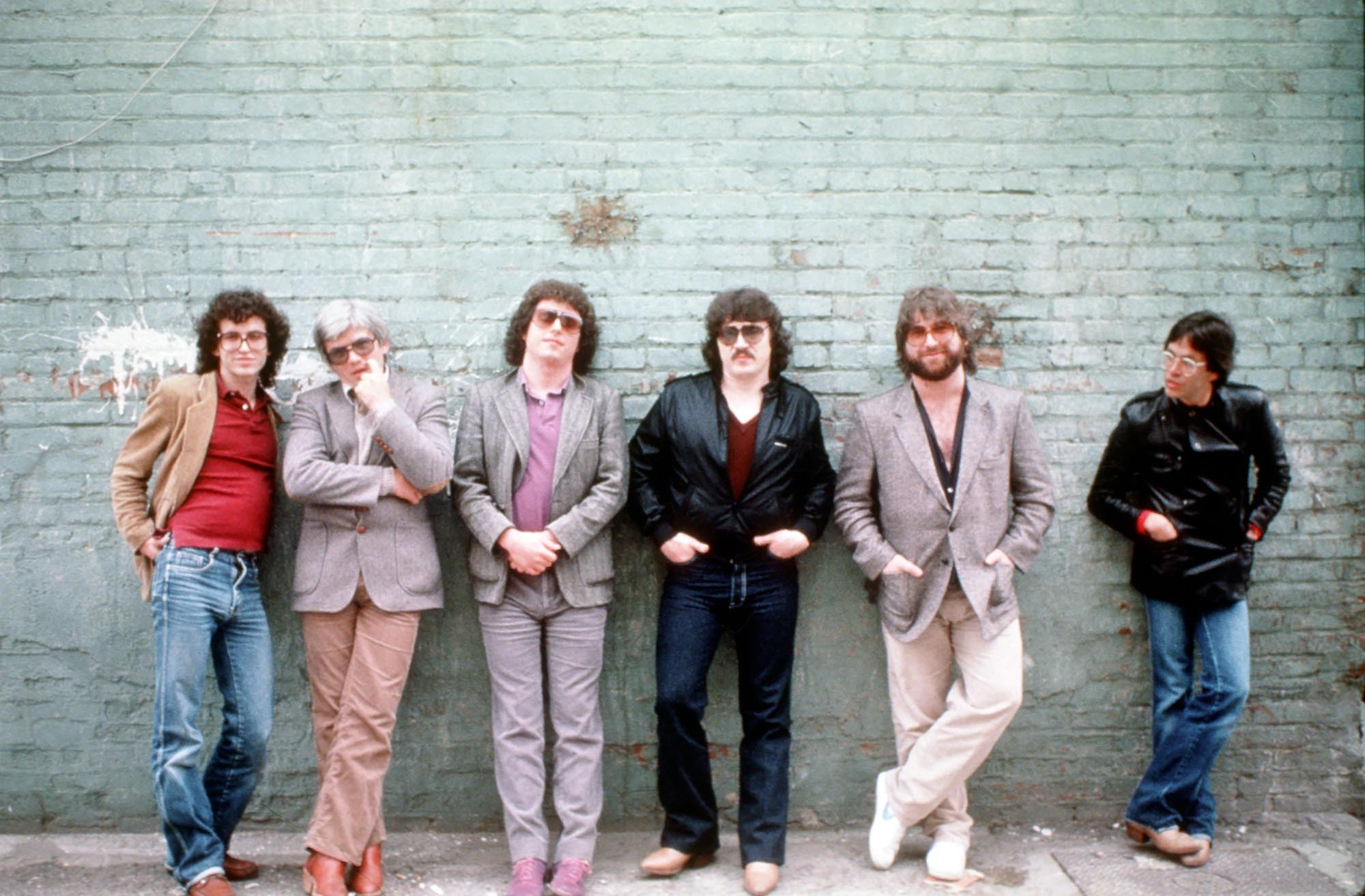 Toto, the band behind the enduringly popular 'Africa'.
Toto, the band behind the enduringly popular 'Africa'.
Image Credit: Michael Ochs Archives/Getty Images
Ever listen to “Africa” and ponder, “Why are the wild dogs crying out in the night? Are they sad? Do they need a hug? Were they already crying when Toto arrived? Is there a parallel universe where we’re all just wild dogs howling in someone else’s Toto song?” If so, you’re not alone. “Africa” remains one of the most debated and beloved songs of the 80s, a sonic enigma wrapped in layers of synthesizers and lyrical mystique. Its enduring popularity is a testament to its unique and somewhat inexplicable charm.
INXS – ‘Never Tear Us Apart’
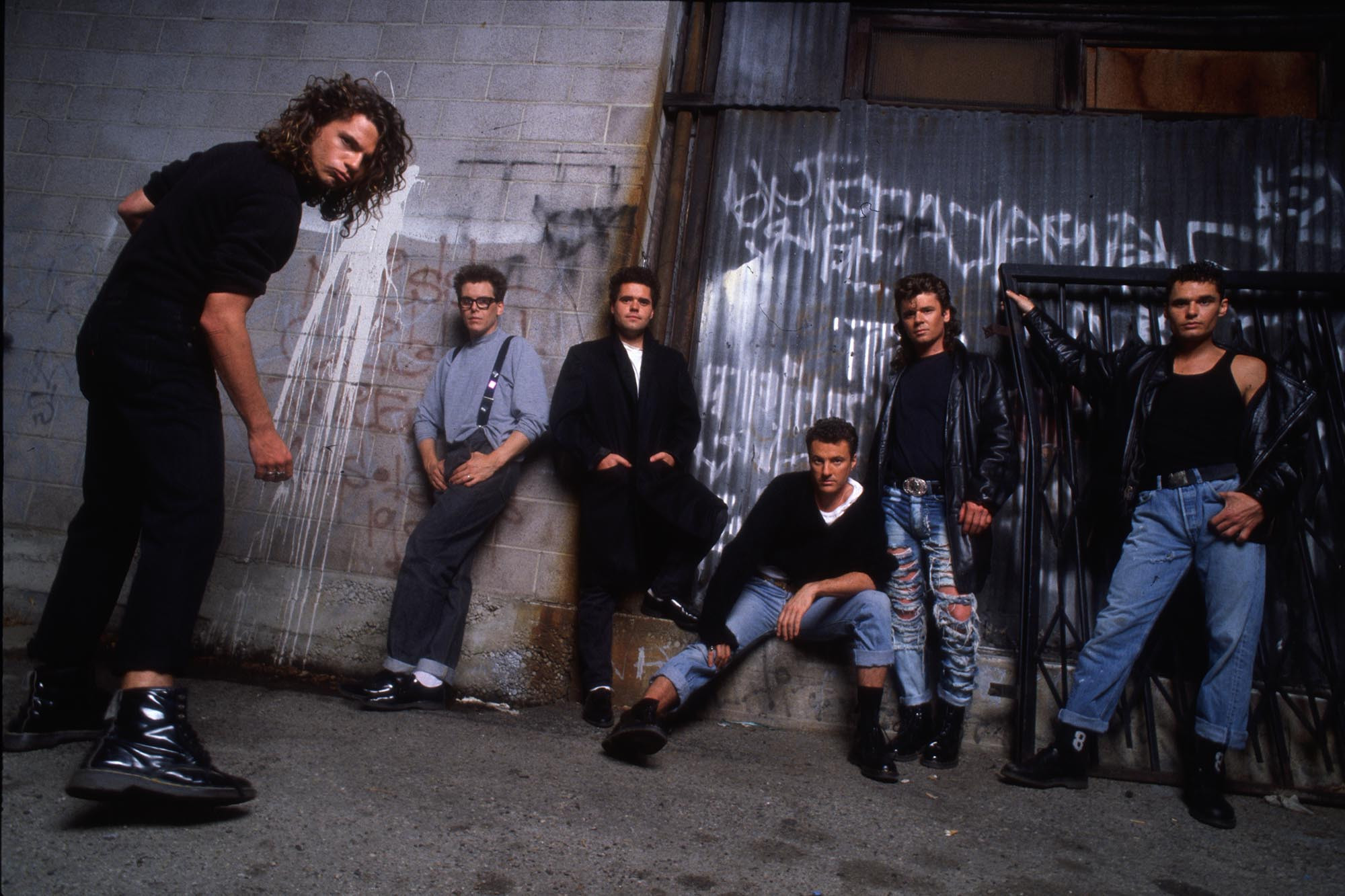 INXS in the 1980s, fronted by the charismatic Michael Hutchence.
INXS in the 1980s, fronted by the charismatic Michael Hutchence.
Image Credit: Lynn Goldsmith/Corbis/VCG via Getty Images
Michael Hutchence, one of the defining frontmen of the 80s, pours raw emotion into “Never Tear Us Apart,” a passionate torch song that reveals his vulnerability and magnetism. As he told Rolling Stone, “We don’t fit into the real normal, cleaned-up, corporate rock thing.” This track showcases Hutchence at his most captivating, with one of his signature Hutch moments: “We all have wings, but some of us don’t know whyyyyy!” It’s a song of longing and connection, solidifying INXS’s place as 80s icons.
Joan Armatrading – ‘Me Myself I’
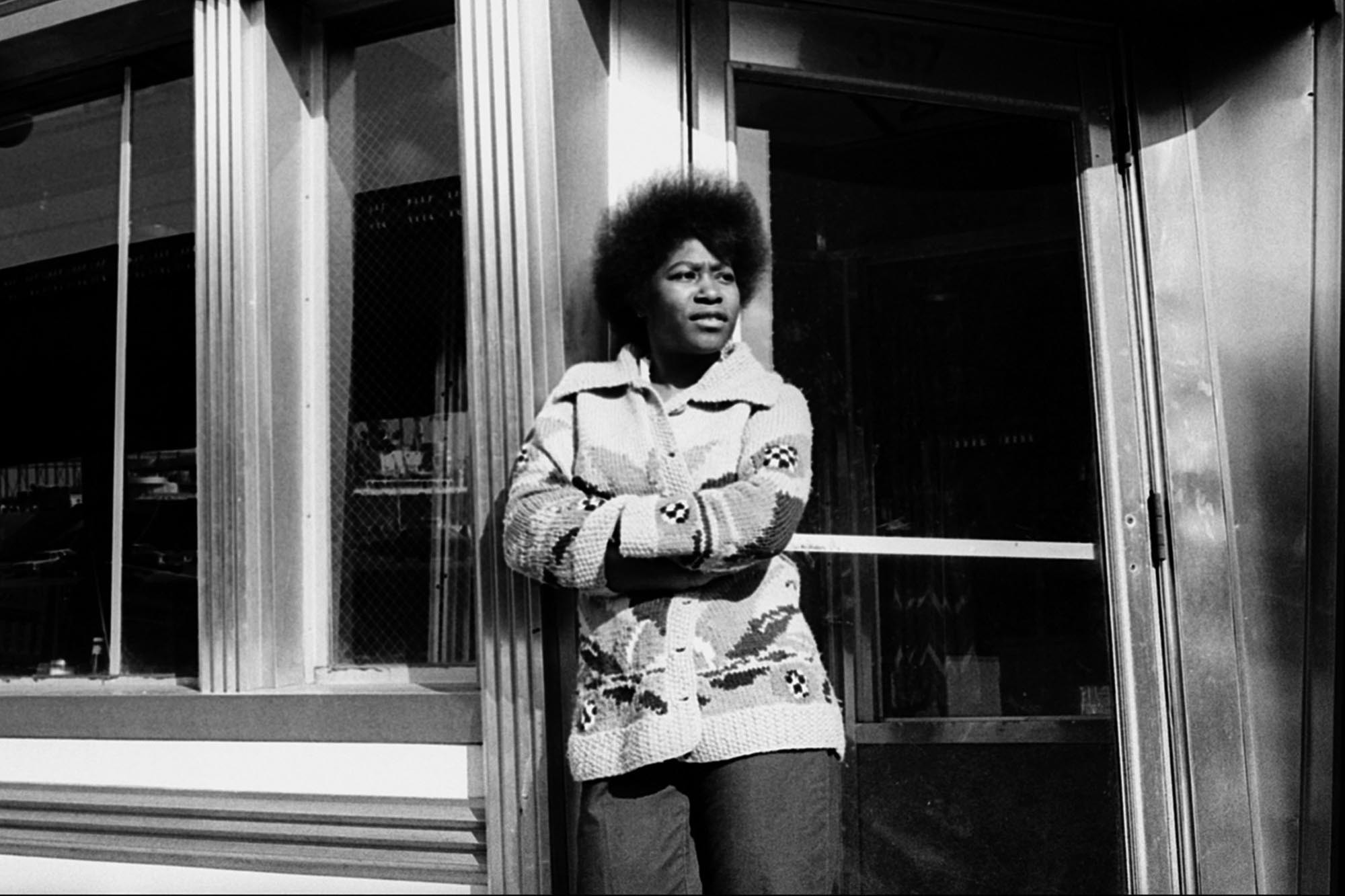 Joan Armatrading in New York in 1981, a pioneering female guitarist and songwriter.
Joan Armatrading in New York in 1981, a pioneering female guitarist and songwriter.
Image Credit: Allan Tannenbaum/Getty Images
Joan Armatrading, a self-taught guitarist from a West Indian immigrant family in England, carved her own path in music. “There wasn’t a female playing the way I played, or singing the songs that I sang,” she explained in a 2021 interview. “And there certainly wasn’t a Black person doing it. So there was nothing for anybody to have a reference to.” “Me Myself I” is her celebration of solitude and independence. “I wanna have a boyfriend and a girl for laughs,” she sings. “But only on Saturday/Six days to be alone.” It’s an anthem for introverts and independent spirits, showcasing Armatrading’s distinctive voice and guitar style.
‘Weird Al’ Yankovic – ‘Another One Rides the Bus’
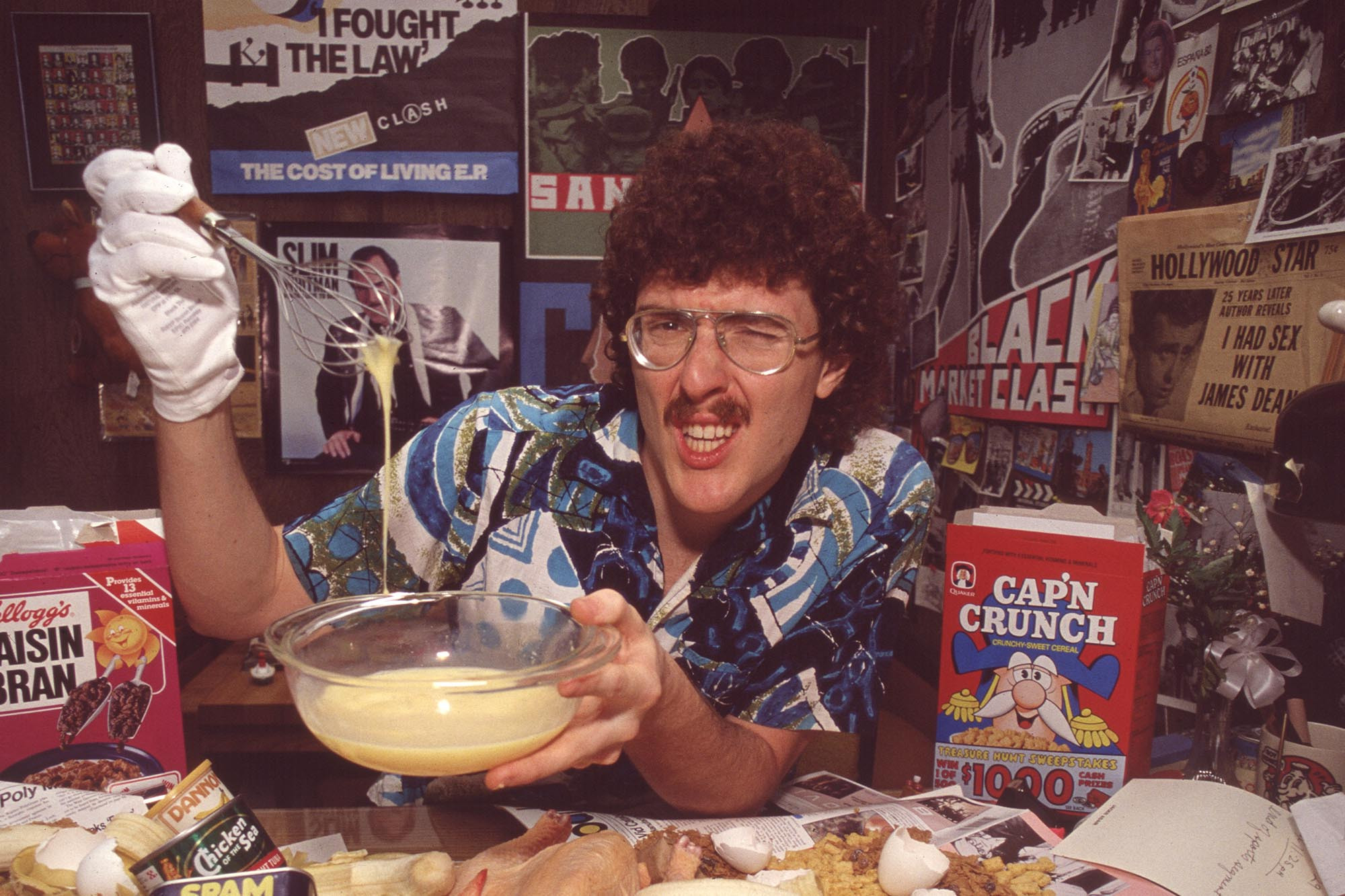 Weird Al Yankovic in 1984, the parody master of the 80s and beyond.
Weird Al Yankovic in 1984, the parody master of the 80s and beyond.
Image Credit: Bob Riha, Jr./Getty Images
“Riding in a bus down the boulevard and the place is pretty packed/Couldn’t find a seat so I had to stand with the perverts in the back.” “Weird Al” Yankovic, the accordion-wielding king of parody, altered the course of musical humor with “Another One Rides the Bus.” He initially gained fame on the Dr. Demento radio show with “My Bologna,” but many dismissed him as a novelty act. “Another One Rides the Bus,” however, proved his staying power. This Queen parody solidified Yankovic’s comedic genius and launched a career that has outlasted many of the artists he’s parodied, leading to hits like “Yoda,” “It’s Still Billy Joel to Me,” and “Like a Surgeon.”
Mahlathini and the Mahotella Queens – ‘Ngicabange Ngaqeda’
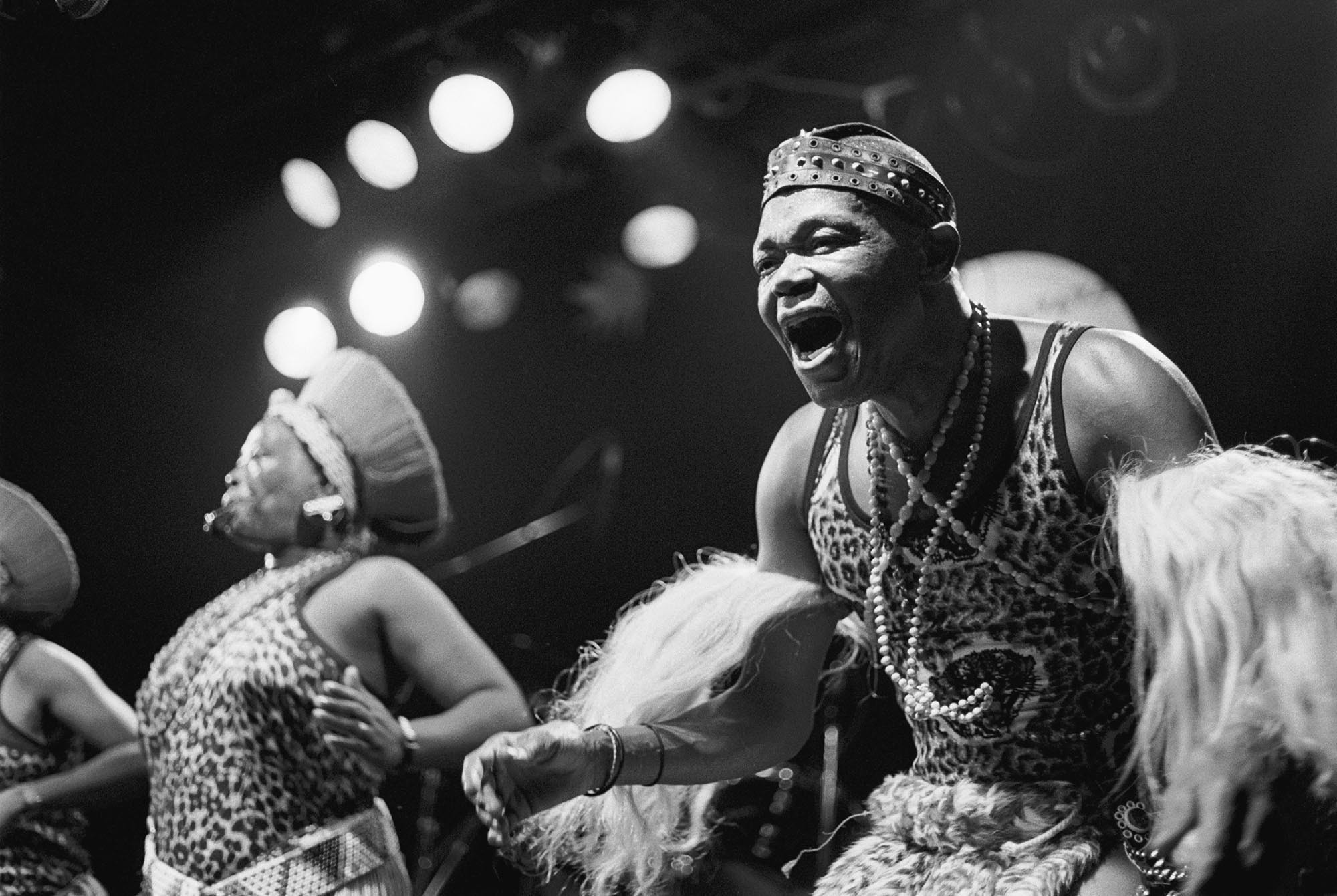 Mahlathini and the Mahotella Queens performing in Amsterdam in 1988, pioneers of South African mbaqanga music.
Mahlathini and the Mahotella Queens performing in Amsterdam in 1988, pioneers of South African mbaqanga music.
Image Credit: Frans Schellekens/Redferns/Getty Images
A classic of South African mbaqanga music, “Ngicabange Ngaqeda” comes from the compilation The Indestructible Beat of Soweto, which introduced global audiences to the vibrant sounds emerging from apartheid-era townships. Simon “Mahlathini” Nkabinde, “the Lion of Soweto,” with his deep bass voice, teamed up with the Mahotella Queens, whose harmonies are both powerful and uplifting. The Makgona Tshole Band, Johannesburg’s equivalent of Motown’s Funk Brothers, provided the infectious rhythm. Before Paul Simon’s Graceland, these artists were creating the rhythm of resistance, making music that defied oppression and celebrated South African culture.
Spacemen 3 – ‘That’s Just Fine’
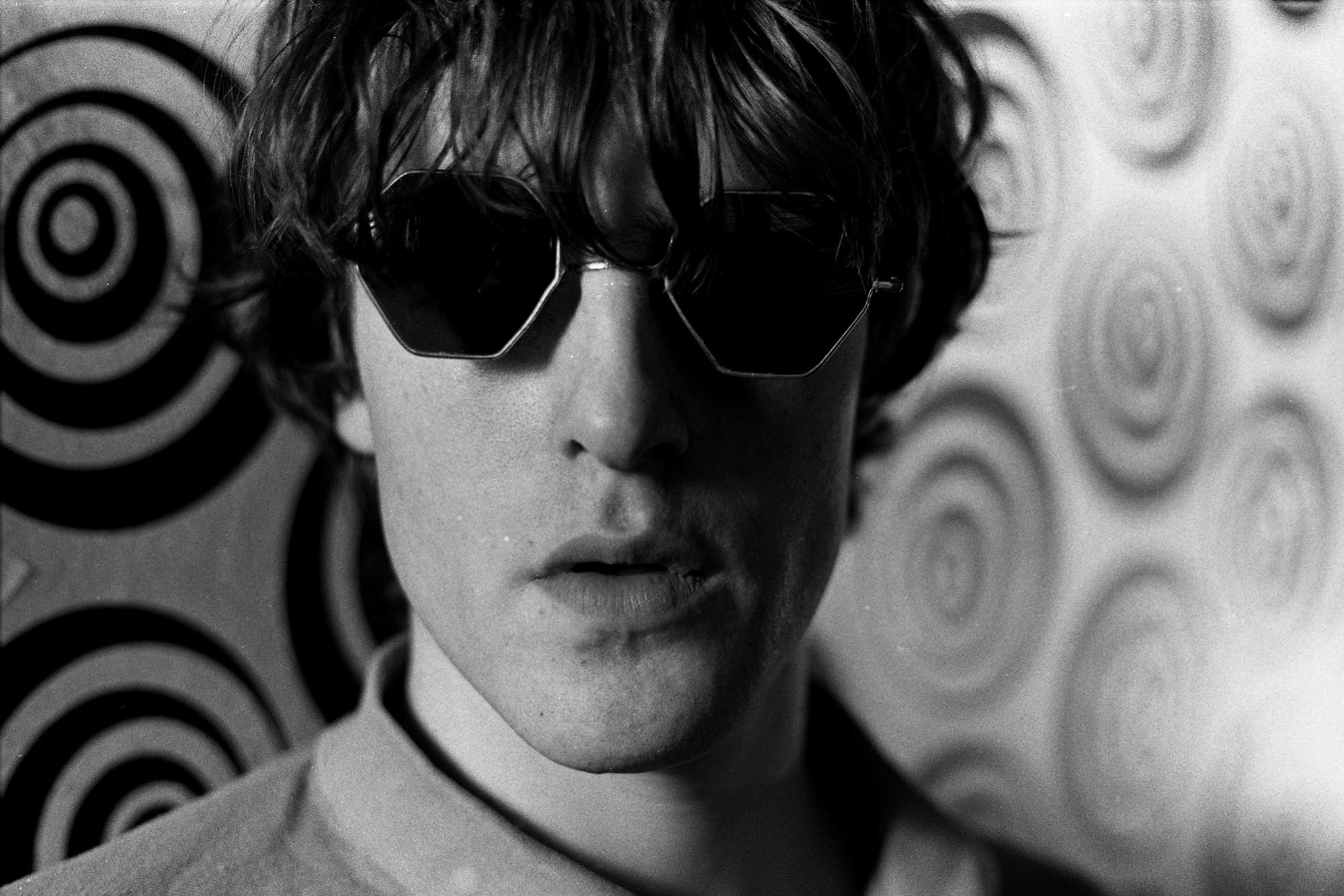 Jason Pierce of Spacemen 3 in 1991, pioneers of psychedelic and space rock.
Jason Pierce of Spacemen 3 in 1991, pioneers of psychedelic and space rock.
Image Credit: Martyn Goodacre/Getty Images
Spacemen 3, the English purveyors of lysergic soundscapes, delivered “That’s Just Fine” on their compilation Taking Drugs to Make Music to Take Drugs To. Sonic Boom and Jason “Bassman” Pierce crafted a hypnotic loop of feedback and echo, existing somewhere between The Velvet Underground and The Stooges. For over six minutes, a stoned-sounding voice murmurs “that’s just fiiiine” or “blows my miiind” over a delicate, Brian Wilson-esque melody. It’s a psychedelic trance, both depraved and romantic, capturing a unique kind of spaced-out beauty.
Peter Schilling – ‘Major Tom (Coming Home)’
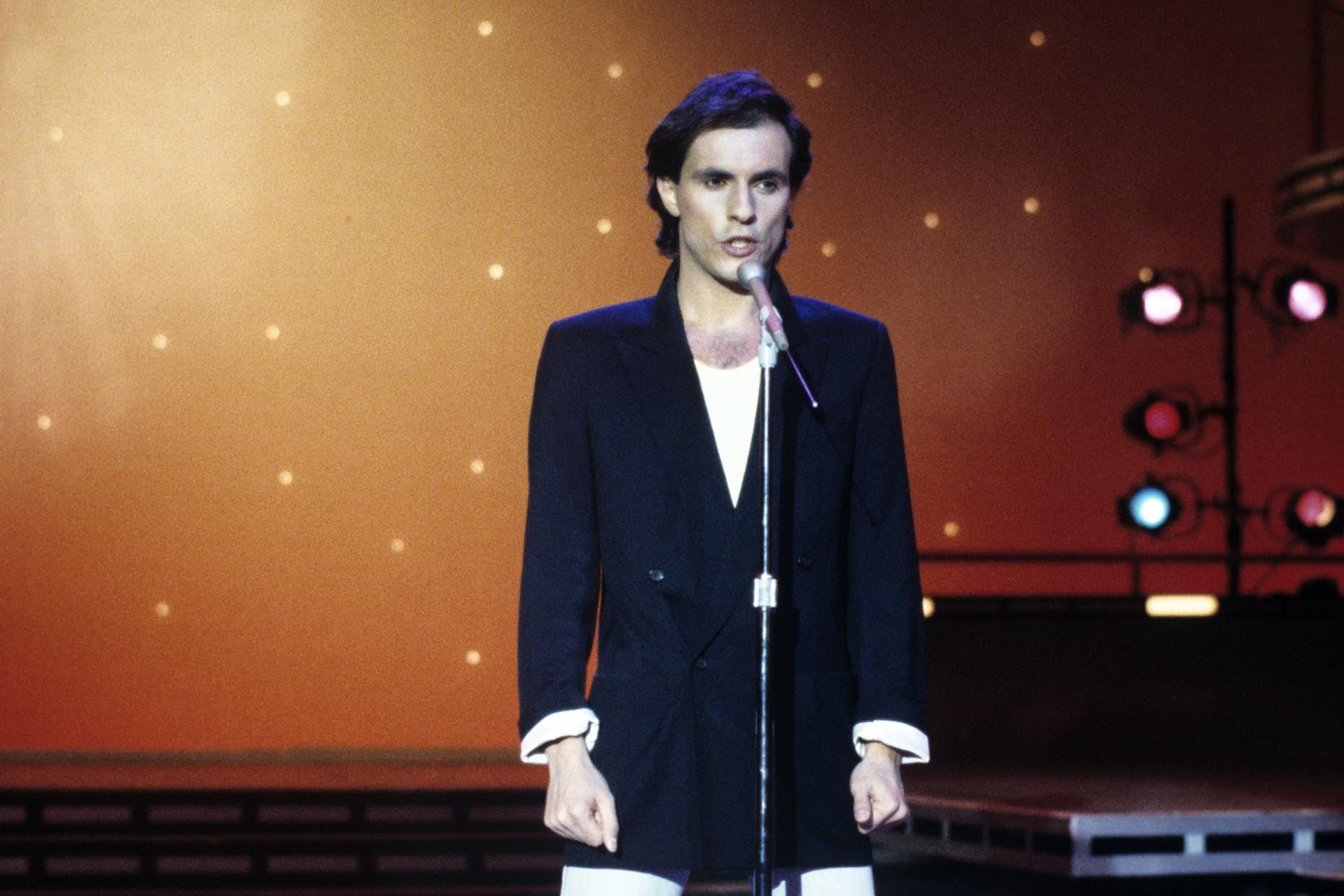 Peter Schilling on American Bandstand in 1983, performing his synth-pop hit 'Major Tom'.
Peter Schilling on American Bandstand in 1983, performing his synth-pop hit 'Major Tom'.
Image Credit: ABC Photo Archives/Disney General Entertainment Content/Getty Images
The saga of Major Tom continues. German one-hit-wonder Peter Schilling’s “Major Tom (Coming Home)” is an unofficial sequel to David Bowie’s “Space Oddity” and “Ashes to Ashes.” It follows Major Tom adrift in space, lost and floating through the cosmos. Despite being musical fan fiction, “Major Tom” became a synth-pop classic in its own right. Its catchy melody and narrative of cosmic isolation resonated deeply in the 80s synth-pop landscape.
Rush – ‘The Spirit of Radio’
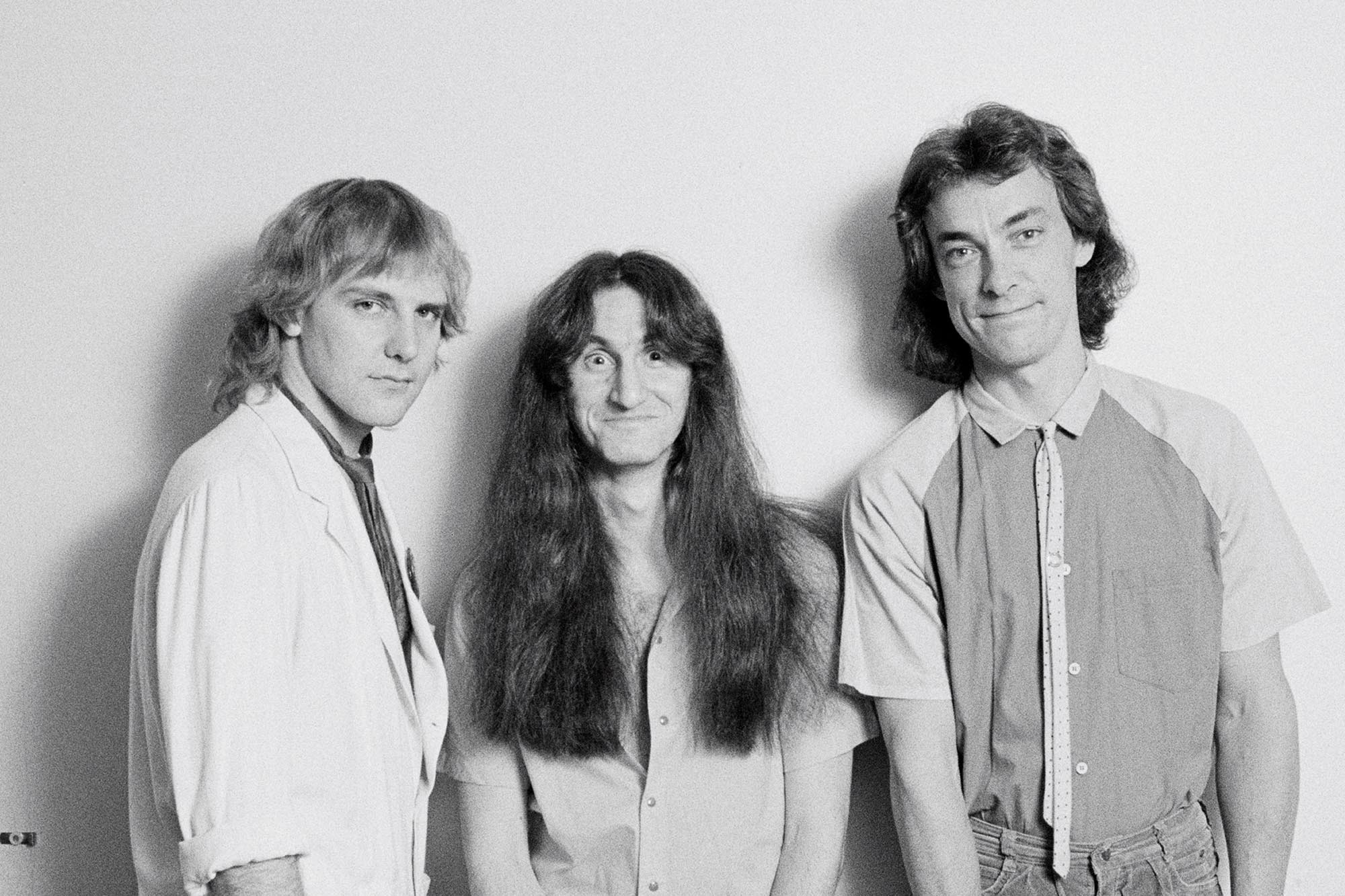 Rush in England in 1980, the Canadian rock trio known for their musicianship and songwriting.
Rush in England in 1980, the Canadian rock trio known for their musicianship and songwriting.
Image Credit: Fin Costello/Redferns/Getty Images
Rush, the Canadian rock giants, tackle the subject of radio itself in “The Spirit of Radio,” exploring the search for authentic music amidst commercial pressures. It’s a quintessential Rush track – intellectually stimulating and musically complex, examining the essence of pop music and rhythm. The song even features a reggae breakdown towards the end, showcasing their musical versatility. Geddy Lee’s powerful vocals deliver the song’s central message: “It’s really just a question of your honesty/Yeah, your honesty!”
Steel Pulse – ‘Chant a Psalm’
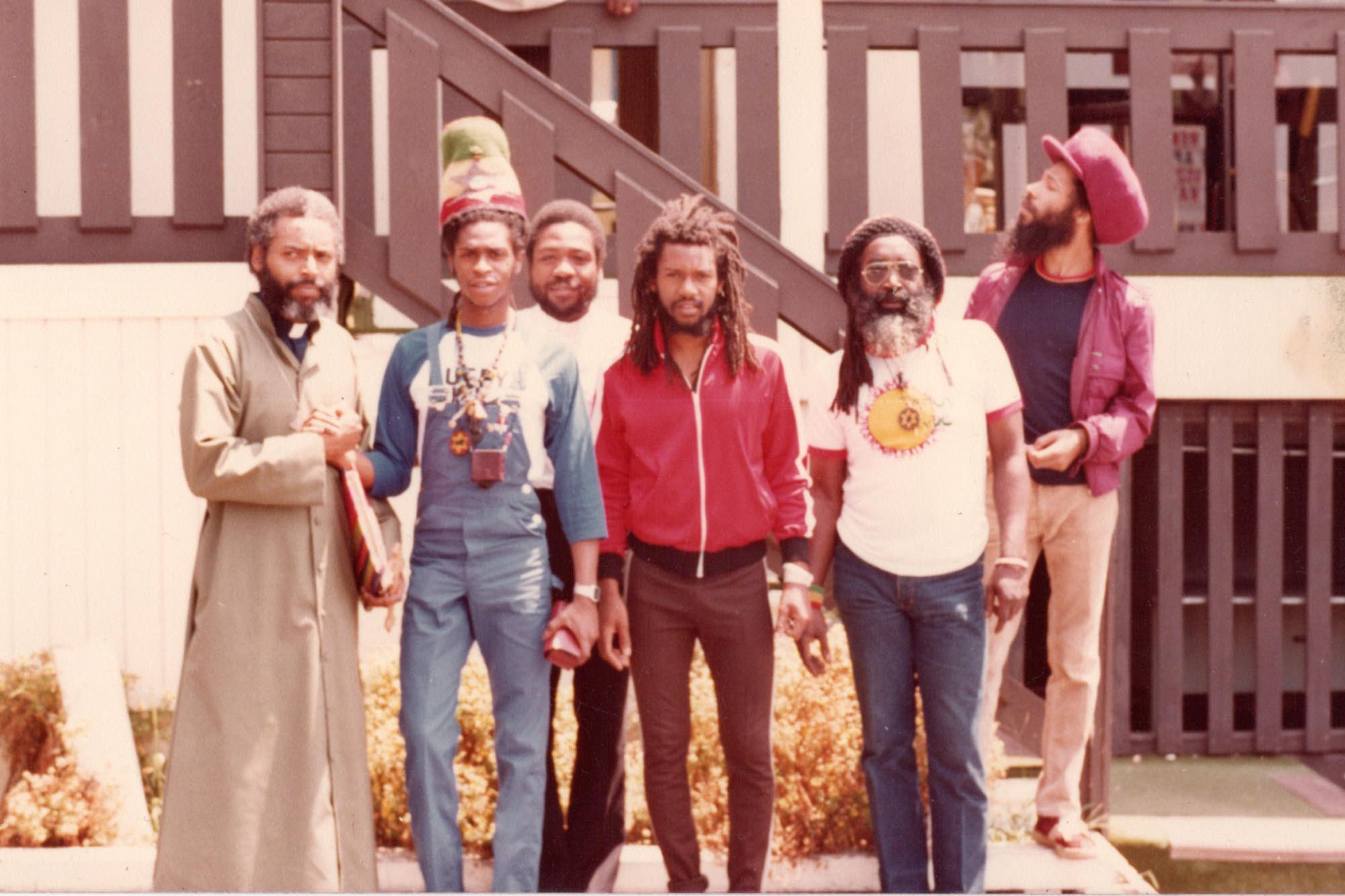 Steel Pulse in Hollywood in 1982, the UK reggae band known for their conscious lyrics.
Steel Pulse in Hollywood in 1982, the UK reggae band known for their conscious lyrics.
Image Credit: Shirley Hamilton/Amde Trust/Getty Images
“Good tidings I bring you,” David Hinds sings on Steel Pulse’s “Chant a Psalm,” from their album True Democracy. This song offered a message of hope during a period of personal and political turmoil for the UK reggae band from Birmingham. Hinds finds solace in biblical stories, invoking figures like Moses, Daniel, Samson, and Solomon, urging listeners to “Attract these angels in dreams and in your prayers.” It’s a powerful blend of reggae rhythms and spiritual upliftment.
Strafe – ‘Set It Off’
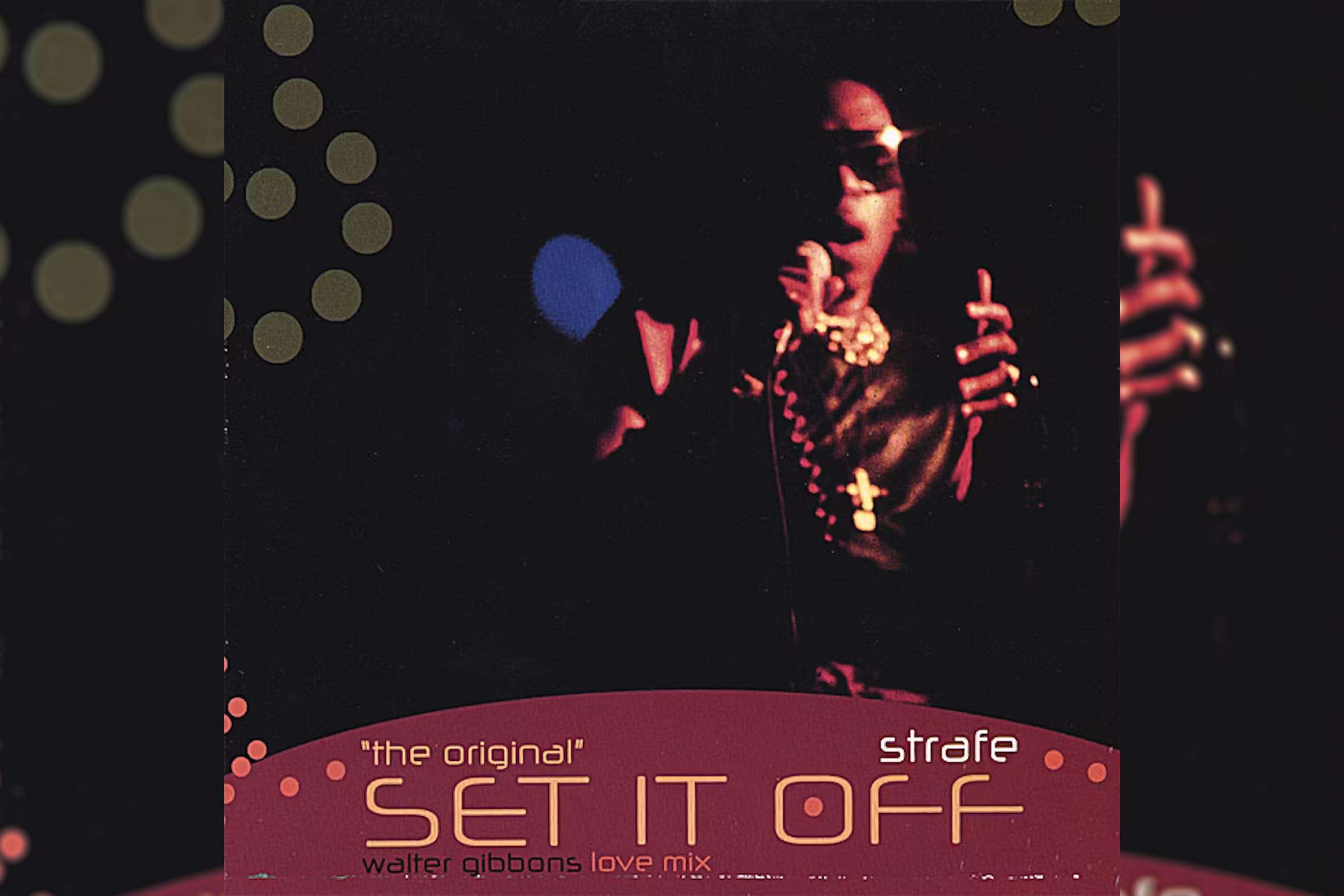 Strafe, a key figure in the NYC underground dance scene.
Strafe, a key figure in the NYC underground dance scene.
“Y’all want this party started right? Y’all want this party started quickly?” Strafe’s “Set It Off” is an NYC underground boombox anthem. Driven by overdriven 808 beats, it wasn’t a radio hit, but its influence reverberated through dance music for decades. It’s raw, energetic, and undeniably infectious – a foundational track for the burgeoning house music scene and a blueprint for countless dance hits that followed.
The Police – ‘When the World Is Running Down’
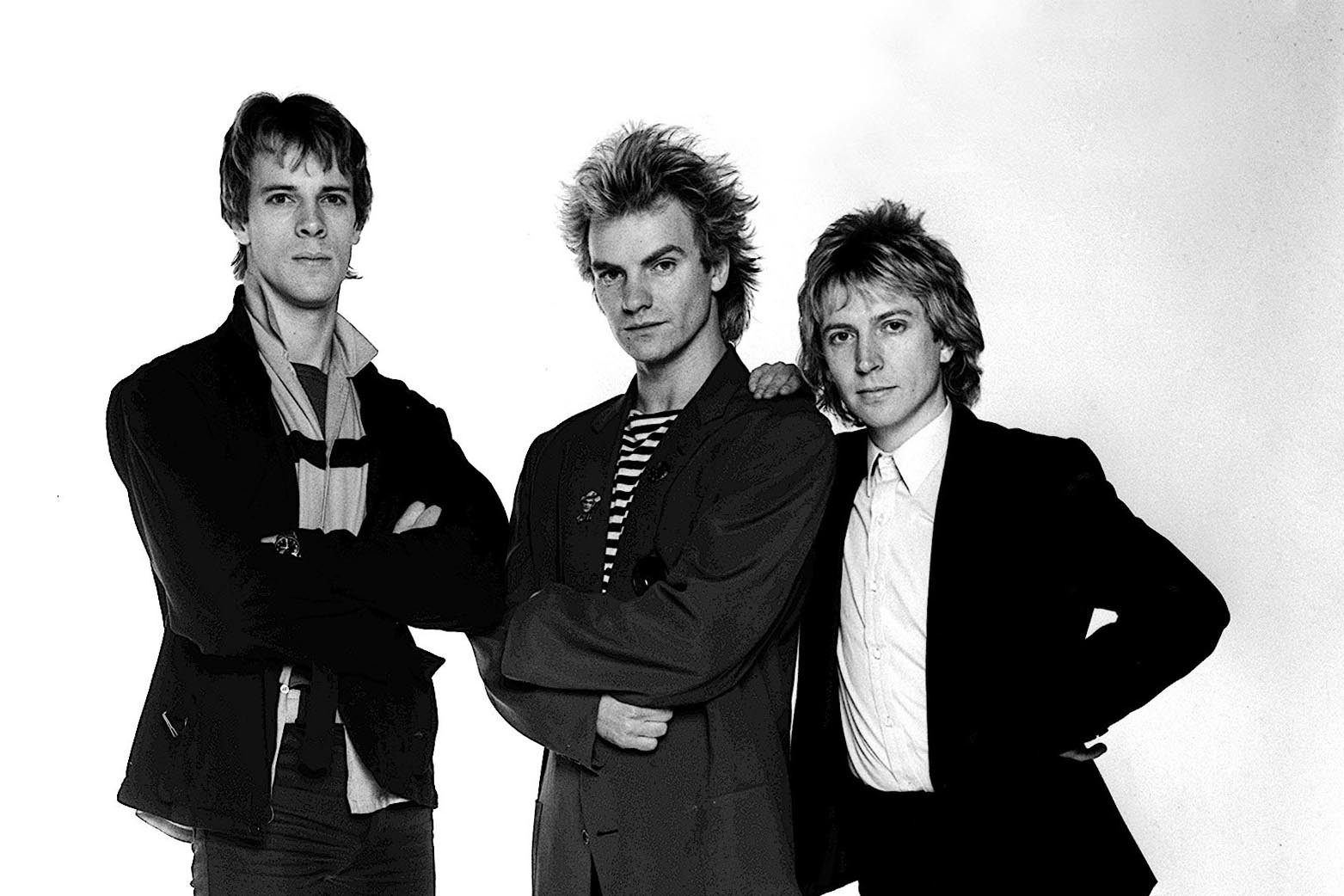 The Police in the studio in 1980, the iconic trio behind numerous 80s hits.
The Police in the studio in 1980, the iconic trio behind numerous 80s hits.
Image Credit: Gavin Kent/Mirrorpix/Getty Images
The Police, despite their extensive catalog of iconic hits, delivered deep cuts that were just as compelling, like “When the World Is Running Down” from Zenyatta Mondatta. “It was a very difficult time,” Sting recalled. “There was a sense of urgency and quite a lot of drugs.” That tension and energy is palpable in the track’s groove. Sting’s lyrics depict a bored, wealthy European trapped in his mansion, finding fleeting escape in bootleg James Brown videos and questioning the emptiness of his material possessions. The mantra, “When the world is running down, you make the best of what’s still around,” becomes a darkly humorous coping mechanism.
Oran ‘Juice’ Jones – ‘The Rain’
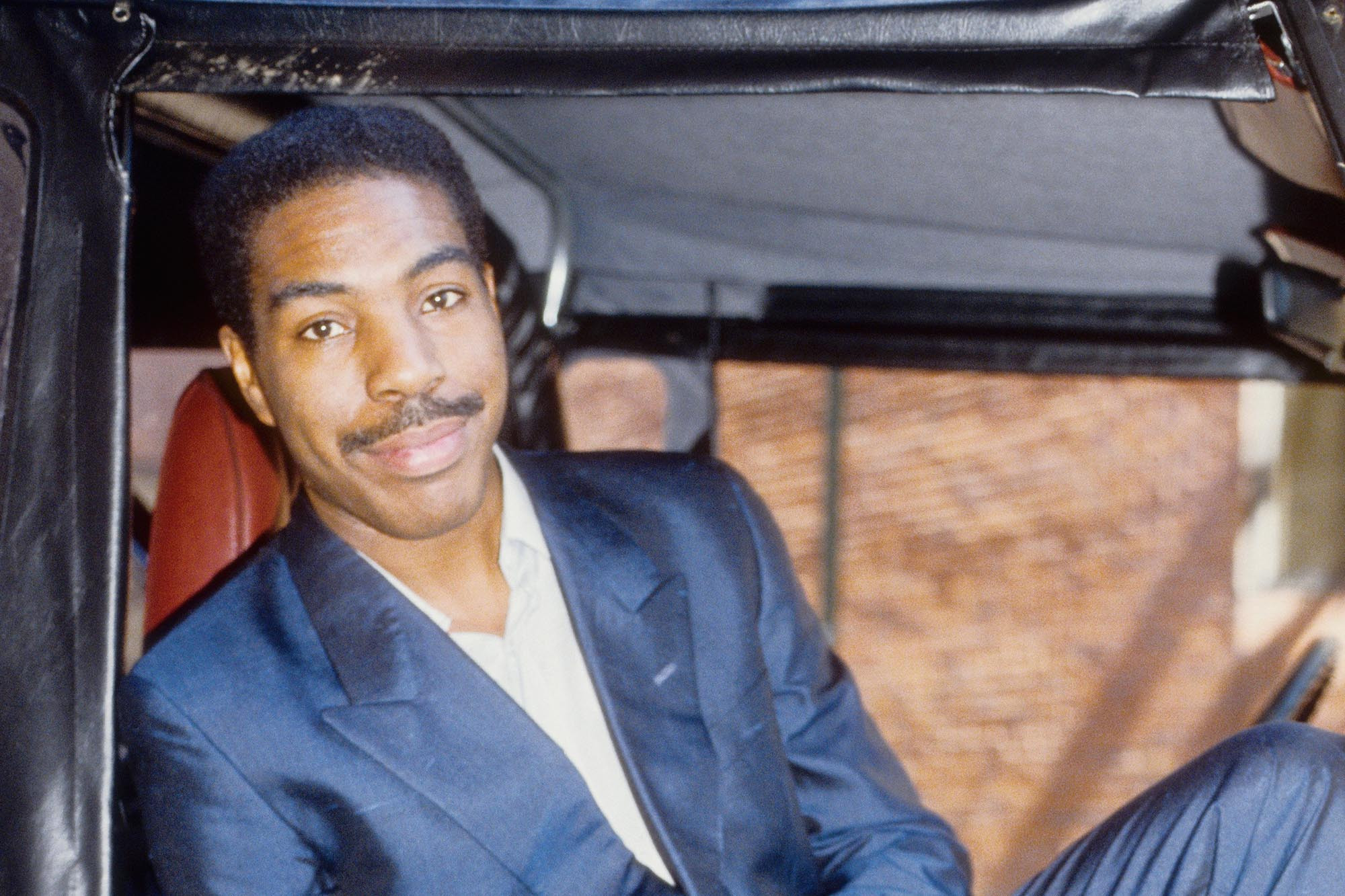 Oran "Juice" Jones in 1987, the R&B singer with the dramatic breakup anthem 'The Rain'.
Oran "Juice" Jones in 1987, the R&B singer with the dramatic breakup anthem 'The Rain'.
Image Credit: Michael Ochs Archive/Getty Images
Oran “Juice” Jones is not one for sentimental goodbyes in “The Rain.” This smoothed-out R&B ballad takes a dramatic turn when Jones catches his girlfriend holding hands with someone new. By the time she returns home, her bags are packed, and Jones unleashes a legendary breakup monologue worthy of an Oscar. “What was you trying to prove? This was the Juice! I gave you things you couldn’t even pronounce!” He dismisses her new flame as a “alley-cat-coat-wearing, hush-puppy-shoe-wearing crumb cake,” before delivering the ultimate kiss-off: “You without me like cornflake without the milk!” Pure 80s R&B drama at its finest.
Bananarama – ‘Shy Boy’
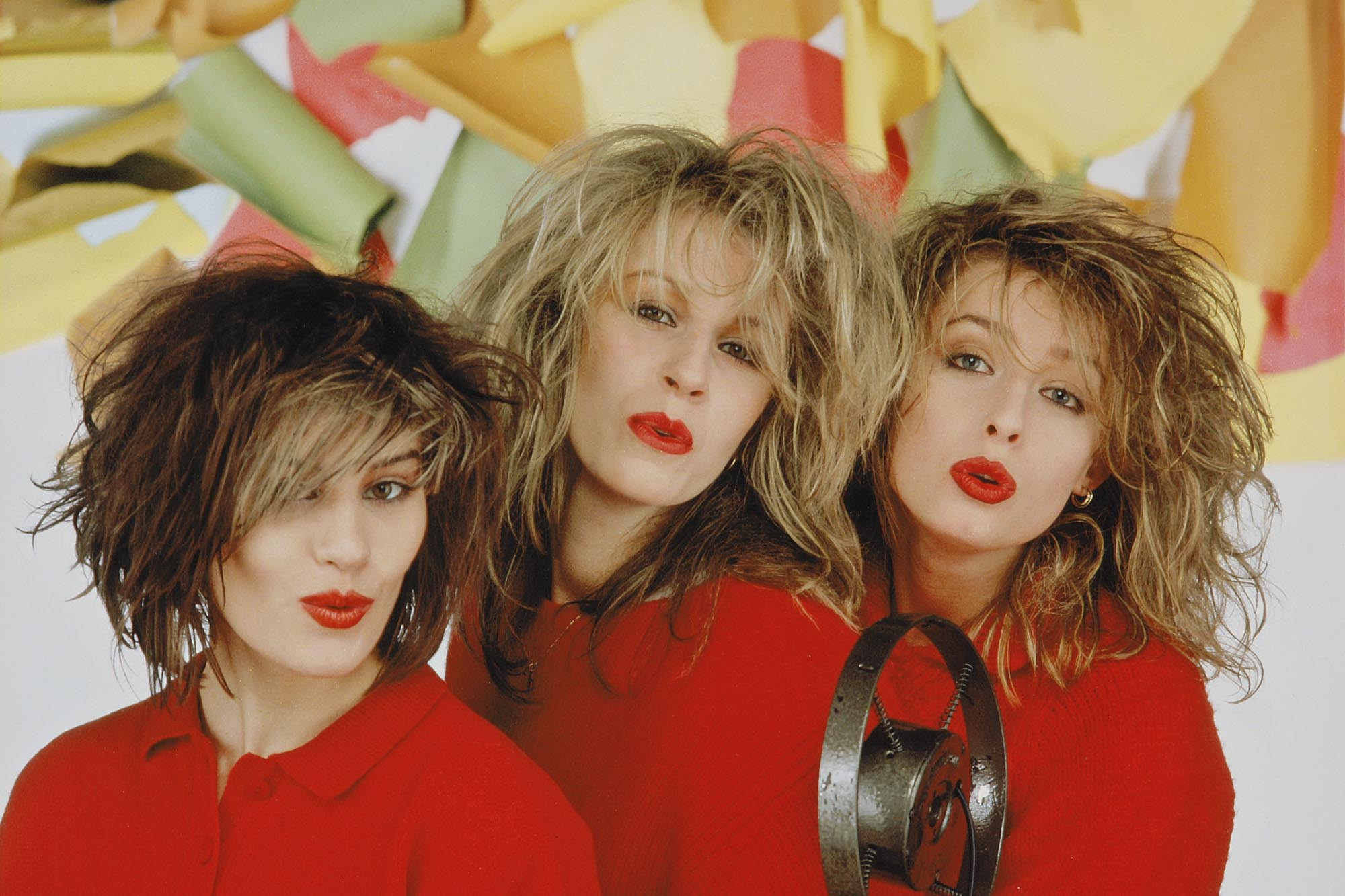 Bananarama in London in 1983, the girl group that defined 80s pop cool.
Bananarama in London in 1983, the girl group that defined 80s pop cool.
Image Credit: Mike Prior/Getty Images
Shy boys without Bananarama? Unthinkable, like cornflakes without milk. Siobhan Fahey, Sara Dallin, and Keren Woodward, the ultimate girl gang, had an incredible run, evolving from post-punk shoop-shoopers to hi-NRG disco queens without ever prioritizing polished vocals. “Shy Boy,” from their debut Deep Sea Skiving, is their most irresistible hit, showcasing their signature bored-but-seductive pouts and unison vocals. It’s one of the few Bananarama songs where boys even register on their radar (besides Robert De Niro, of course).
Minor Threat – ‘Straight Edge’
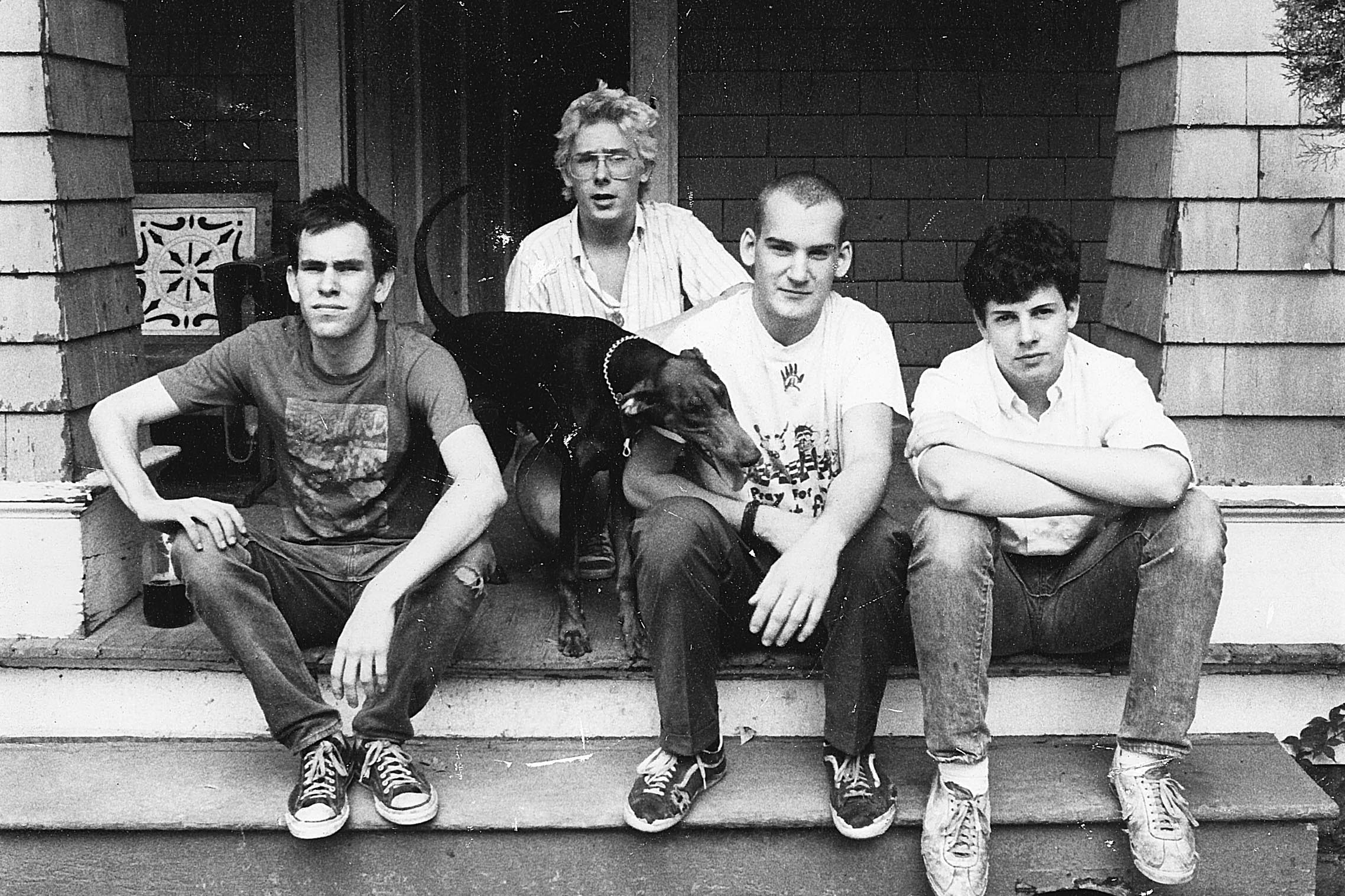 Minor Threat in 1982, pioneers of hardcore punk and the straight edge movement.
Minor Threat in 1982, pioneers of hardcore punk and the straight edge movement.
Image Credit: Rebecca Hammel
Hardcore punk at its most potent: Minor Threat’s “Straight Edge” is just kids talking to other kids, directly, intensely, without adult intervention, expressing raw emotion. The D.C. crew’s anthem isn’t about rigid rules; it’s about taking ownership of your life, rejecting external pressures. At a mere 46 seconds, it’s the shortest song on this list, but it’s packed with life-affirming energy, especially the moment Ian MacKaye stretches “something I just don’t neeeeed” until his voice cracks. A defining track of the straight edge movement and hardcore punk scene.
The Raincoats – ‘No One’s Little Girl’
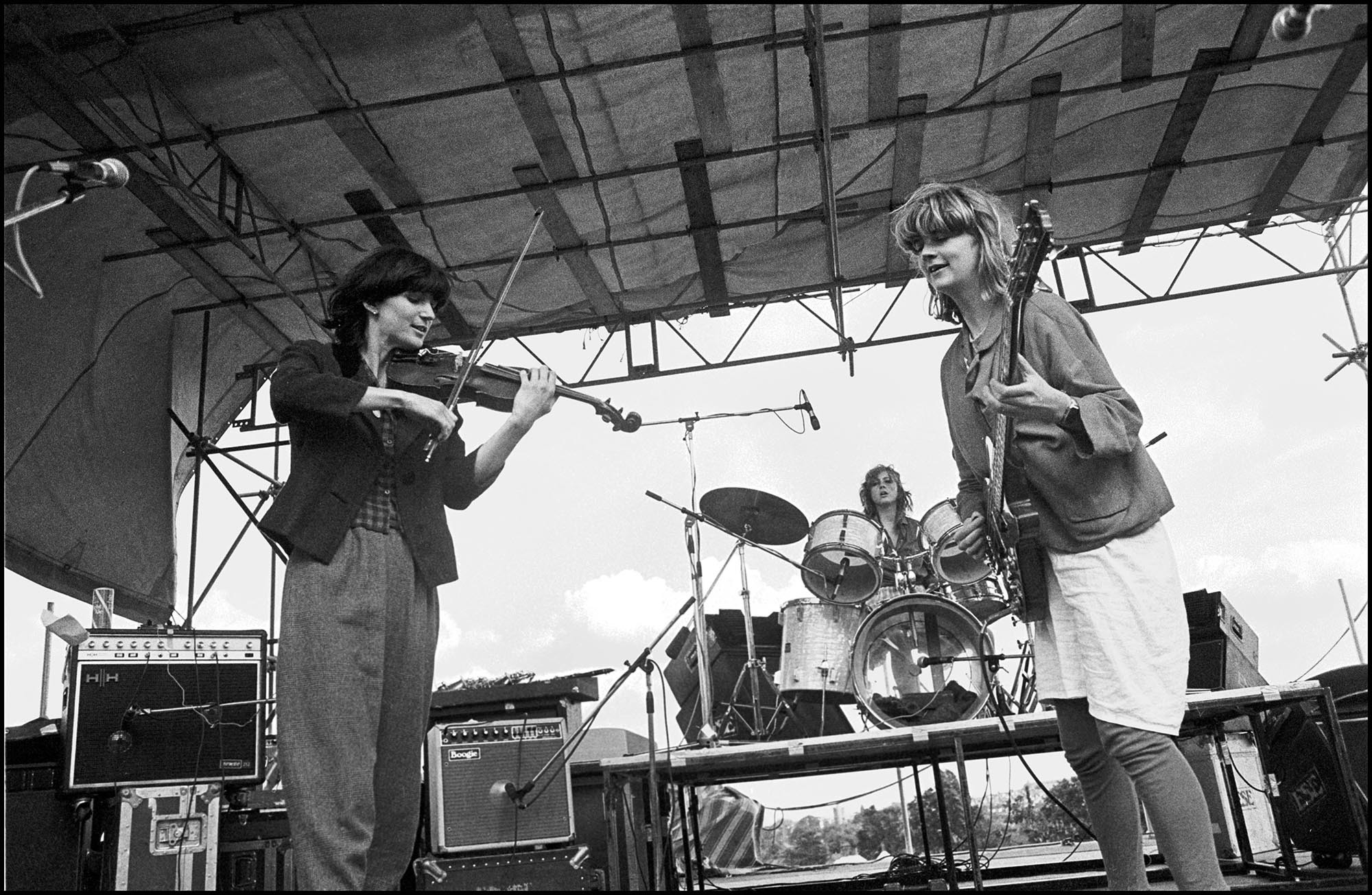 The Raincoats, redefining punk with a feminist and art-school edge.
The Raincoats, redefining punk with a feminist and art-school edge.
Image Credit: David Corio/Redferns/Getty Images
The Raincoats were pioneers, reshaping punk rock in the early 80s with their art-school feminist perspective and distinctly London deadpan humor. “No One’s Little Girl,” from their albums The Raincoats and Odyshape, is a quirky, driving groove that challenges misogynistic clichés. Gina Birch’s chant, “I never shall be in your family tree,” rings out over Ana Da Silva’s guitar and Vicky Aspinall’s violin, creating a sound that is both playful and fiercely independent.
Ray Parker Jr. – ‘I Still Can’t Get Over Lovin’ You’
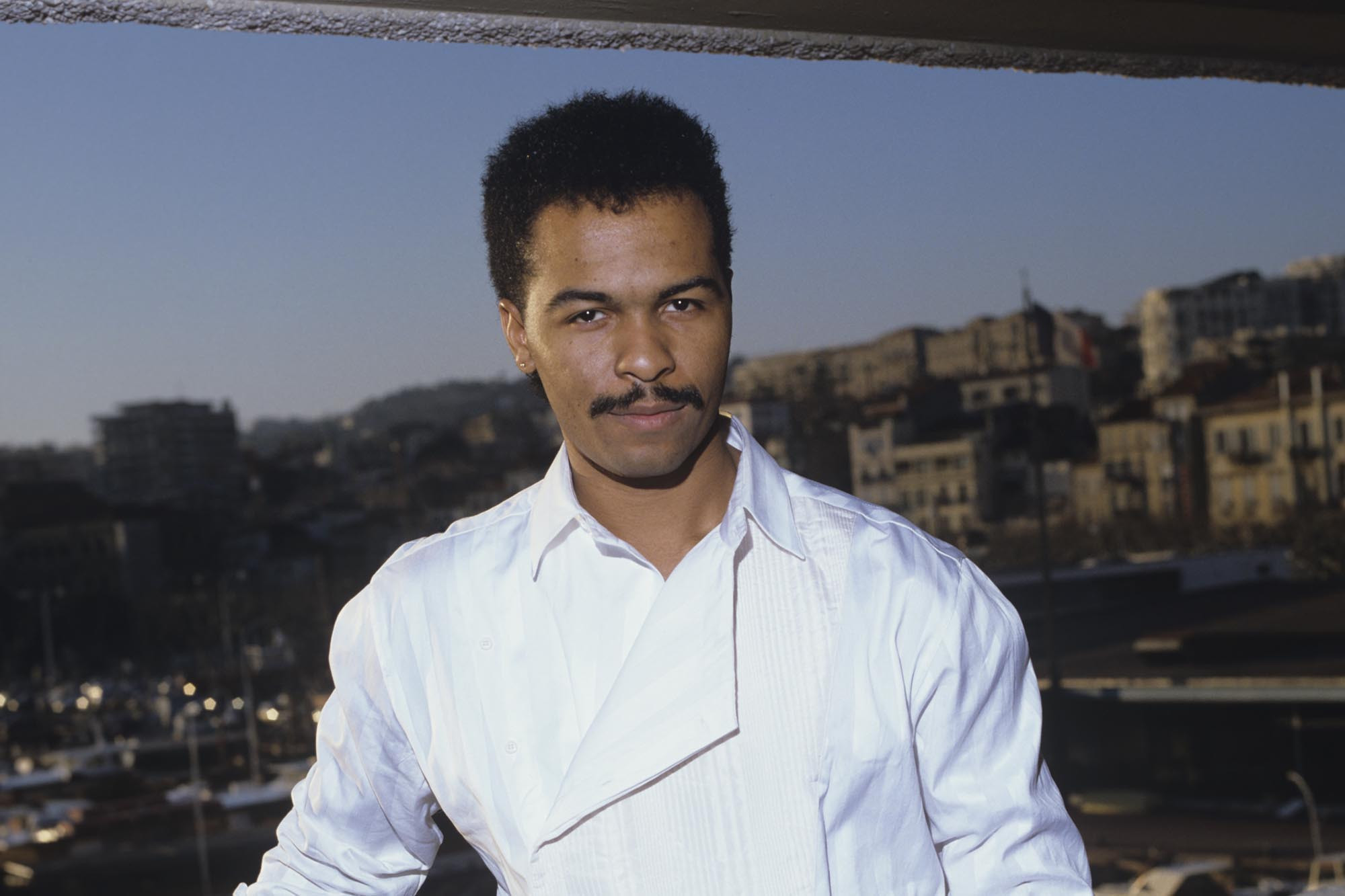 Ray Parker Jr. in Cannes in 1985, the underrated pop genius of the 80s.
Ray Parker Jr. in Cannes in 1985, the underrated pop genius of the 80s.
Image Credit: David Redfern/Redferns/Getty Images
Ray Parker Jr., an often-underappreciated pop auteur of the 80s, delivered hits ranging from “A Woman Needs Love” to “The People Next Door.” (Let’s be honest, “Ghostbusters” is just okay, right?). Parker’s musical journey began at Motown – he even played the guitar solo on Stevie Wonder’s “Maybe Your Baby.” For “I Still Can’t Get Over Loving You,” he channels UK synth-pop influences, crafting his own New Wave ballad. He purrs, “I can’t turn you loose, though I know it’s self-abuse,” with genuine heartache in his voice. In a playful nod to his Brit-pop inspiration, he subtly quotes The Police at the song’s end: “Every breath you take, I’ll be watching you, girl.”
Girlschool – ‘Yeah Right’
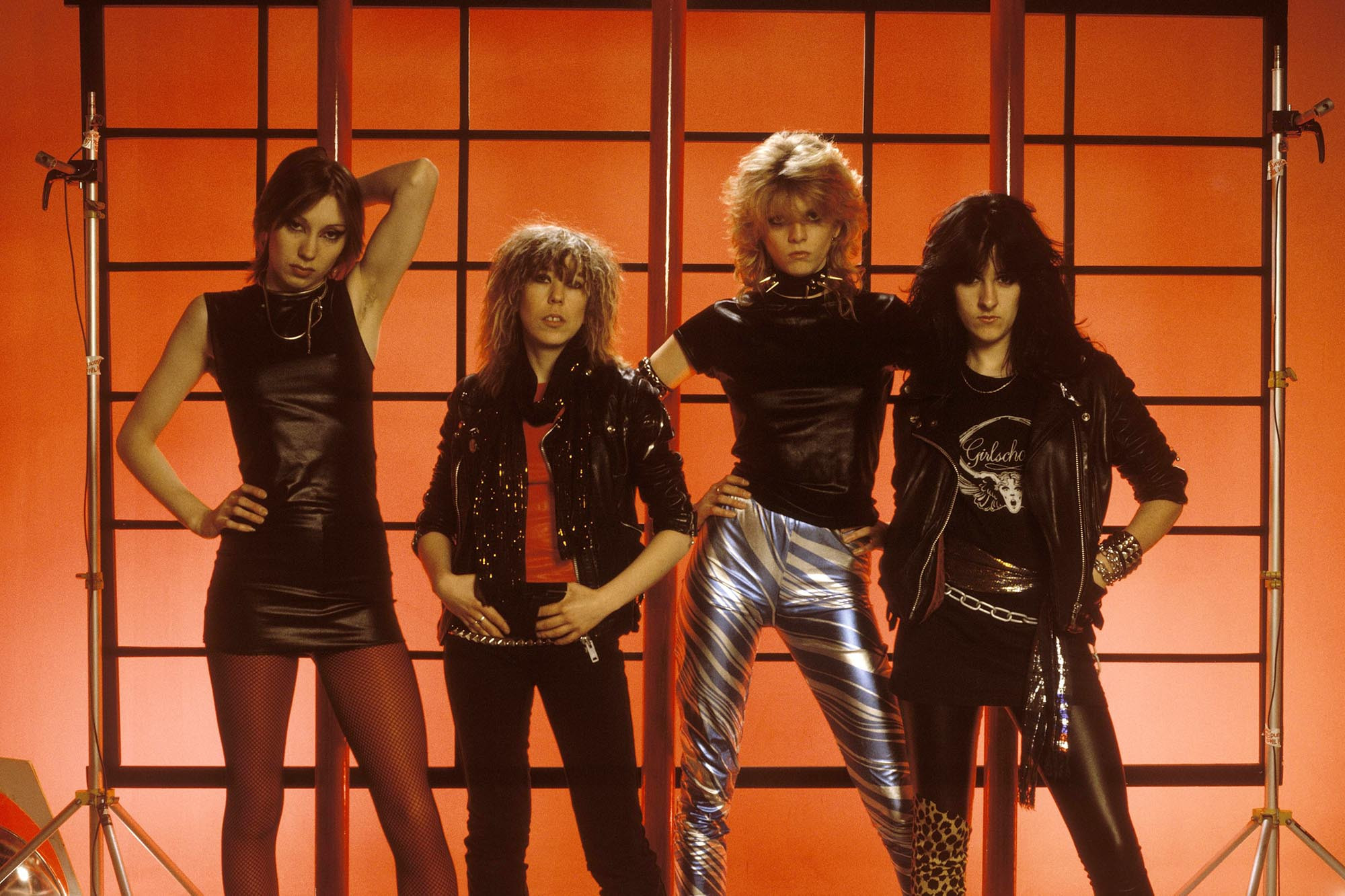 Girlschool in the UK, the all-female metal band that rocked the 80s.
Girlschool in the UK, the all-female metal band that rocked the 80s.
Image Credit: Fin Costello/Redferns/Getty Images
Girlschool, the feminist metal force from the UK, unleashed “Yeah Right” in full kill-your-parents mode. This track is a roaring declaration of every woman’s right to rock all night, with Kelly Johnson’s blistering guitar riffs leading the charge. They even enlisted their Motörhead buddies for the video – Philthy Animal Taylor makes a hilarious cameo as an angry, disapproving mother. Pure female metal rebellion.
Ministry – ‘Revenge’
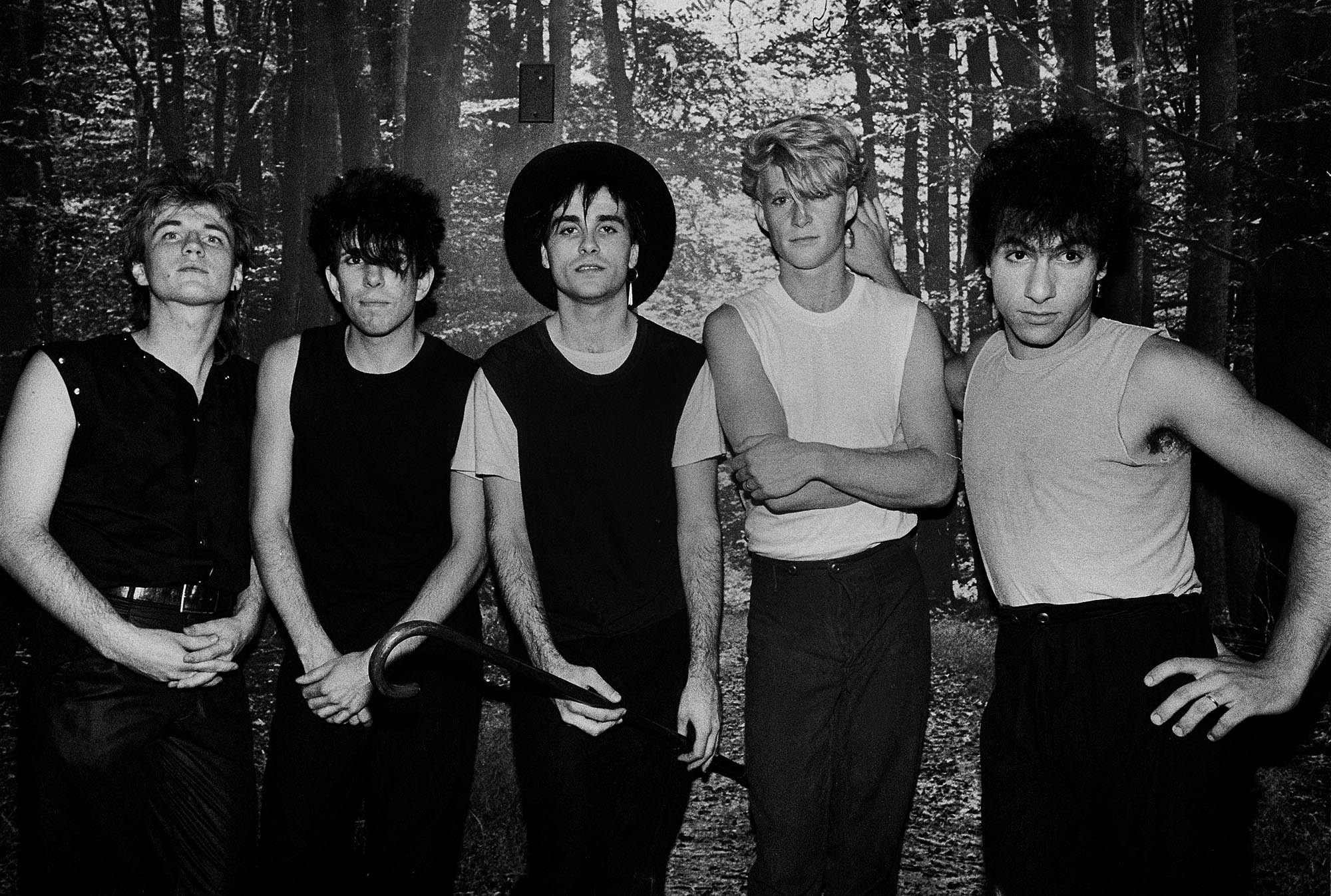 Ministry in Chicago in 1982, in their early synth-pop era.
Ministry in Chicago in 1982, in their early synth-pop era.
Image Credit: Paul Natkin/Getty Images
Al Jourgensen, the industrial metal iconoclast of Ministry, has spent decades publicly disowning his synth-pop debut album, With Sympathy, where he sported New Romantic synths and a questionable faux-British accent. (“You did it agaaain! And agaaain! And agaaain!”). Despite Jourgensen’s self-deprecation, tracks like “Revenge” are undeniably catchy and excellent, ensuring fans won’t let him forget this early phase. “Revenge” is a perfectly pithy teen-psycho breakup anthem. Surprisingly, in recent years, Ministry has even started performing “Revenge” live for the first time in decades, perhaps hinting at a grudging acceptance of their synth-pop past.
The Rolling Stones – ‘Undercover of the Night’
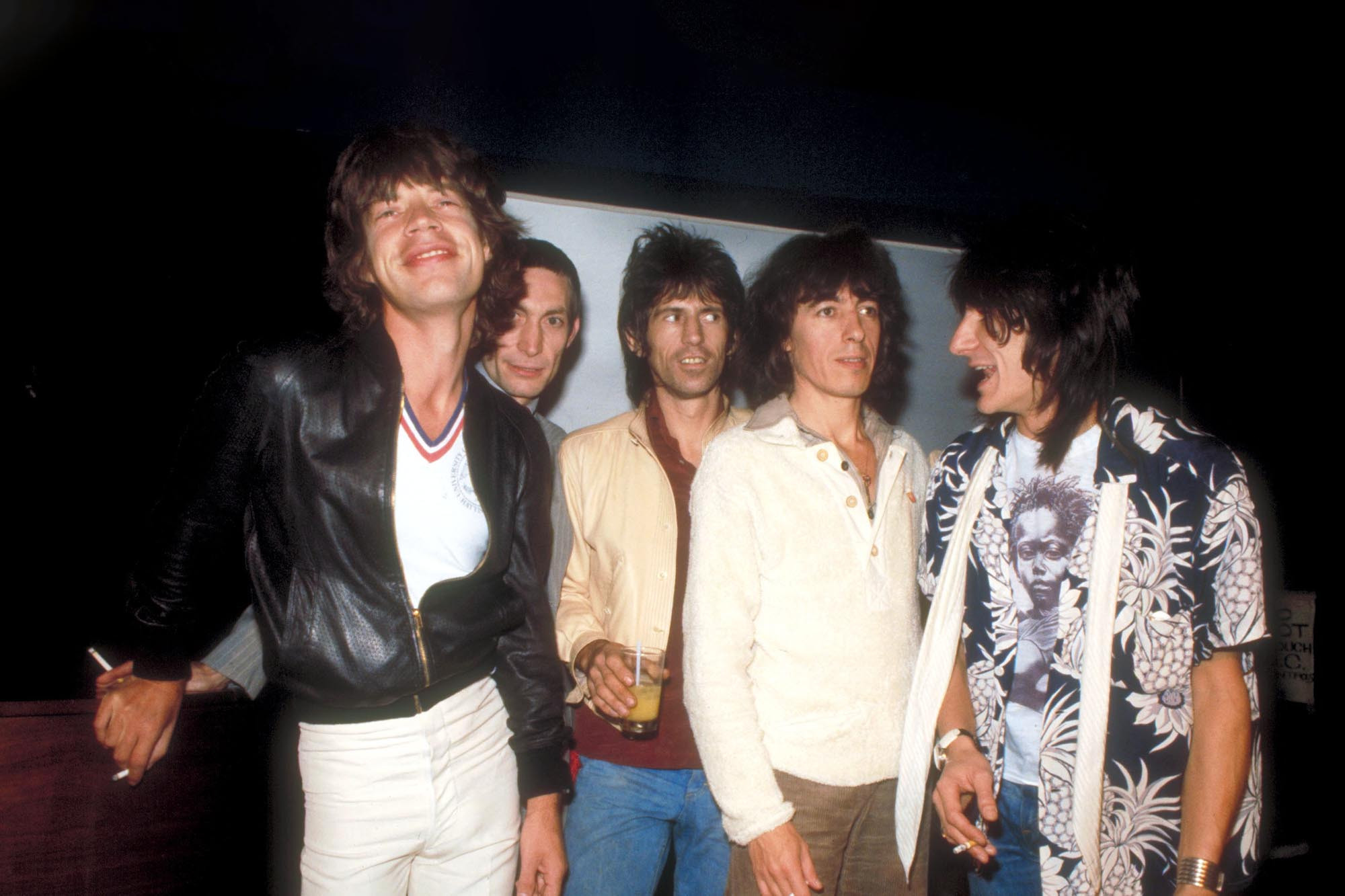 The Rolling Stones in the 1980s, still pushing boundaries after decades in rock.
The Rolling Stones in the 1980s, still pushing boundaries after decades in rock.
Image Credit: Robin Platzer/Getty Images
“Undercover of the Night” is a criminally underrated gem from a somewhat overlooked era of The Rolling Stones. Regardless of their current state, the rhythm section of Bill Wyman and Charlie Watts always delivered, and they go wild on this track. “Undercover of the Night” is arguably the Stones’ most deliberate attempt to create an 80s record, blending elements of The Clash, Grandmaster Flash, Lee Perry, and Duran Duran into a politically charged song criticizing US imperialism in Latin America. A surprisingly experimental and potent track from rock legends.
The Jim Carroll Band – ‘People Who Died’
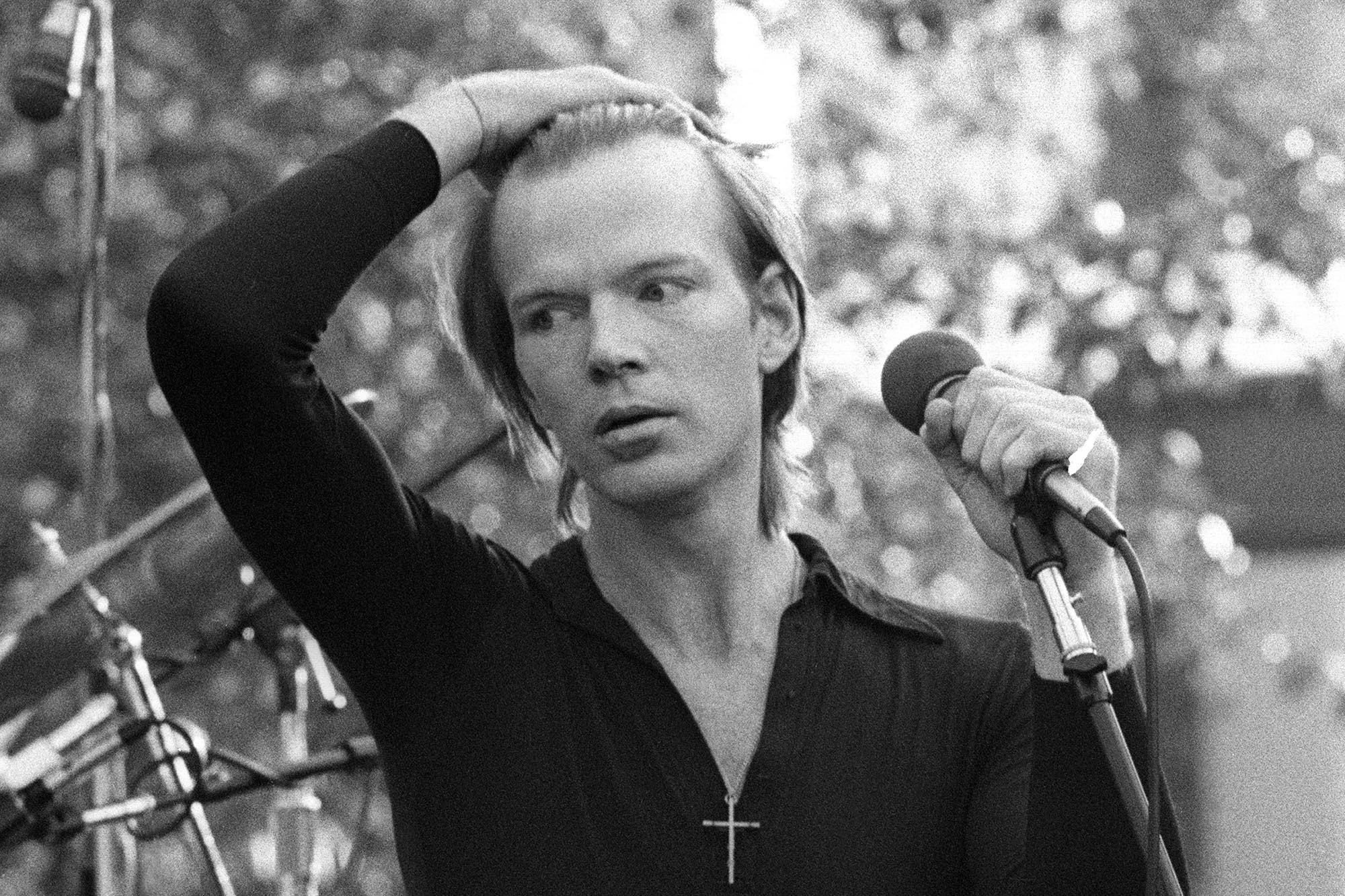 Jim Carroll performing in Berkeley in 1980, the poet-turned-punk rocker.
Jim Carroll performing in Berkeley in 1980, the poet-turned-punk rocker.
Image Credit: Clayton Call/Redferns/Getty Images
Has any rock star offed so many friends in a single song? Jim Carroll, NYC poet and punk scene fixture, translated his tough street experiences into his book The Basketball Diaries. (You can even hear him in the background of the Velvet Underground’s Live at Max’s Kansas City). “People Who Died,” the hit from his debut Catholic Boy, is a frenetic rock & roll eulogy for friends lost to drugs, alcohol, disease, war, subway accidents, and biker violence. A shout-out to Bobby, who manages to die not once, but three times in the song. Darkly humorous and brutally honest.
Samantha Fox – ‘I Wanna Have Some Fun’
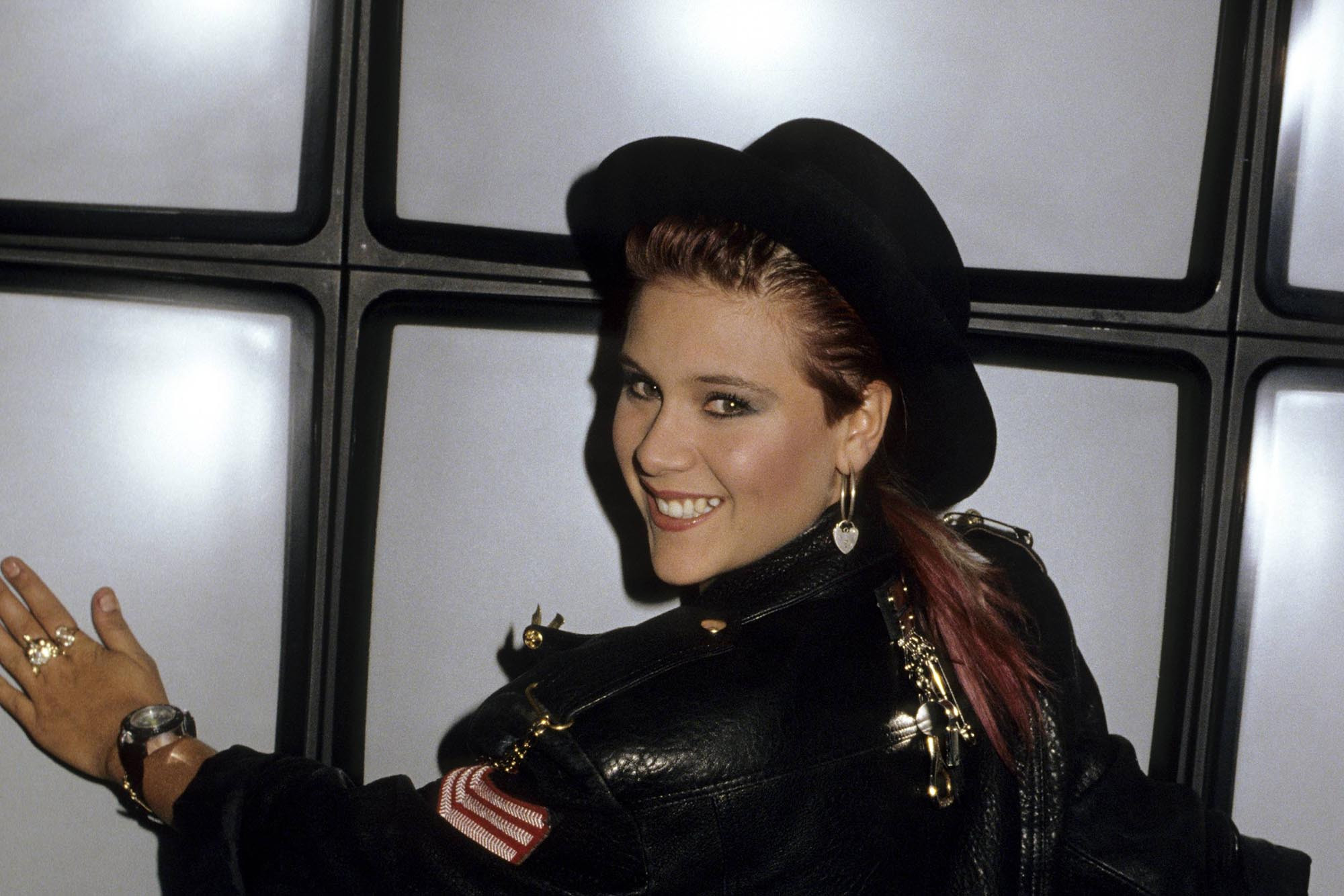 Samantha Fox in the 1980s, the irrepressible disco starlet.
Samantha Fox in the 1980s, the irrepressible disco starlet.
Image Credit: Suzie Gibbons/Redferns/Getty Images
Samantha Fox, the cheeky, irrepressible trash-disco starlet with a London accent and future lesbian icon status, followed up her hit “Naughty Girls Need Love Too” with the pro-fun anthem, “I Wanna Have Some Fun.” Featuring acid-house strings and a hired B-boy chanting “Sa-Sa-Sa-mantha Fox!”, the song opens with a drunk-dial voicemail: “Helloooo — it’s me again! Don’t you know it’s hard to keep a good woman down? But then again [naughty yet love-needing giggle] maybe that could be fun!” Pure 80s camp and carefree energy.
Queen and David Bowie – ‘Under Pressure’
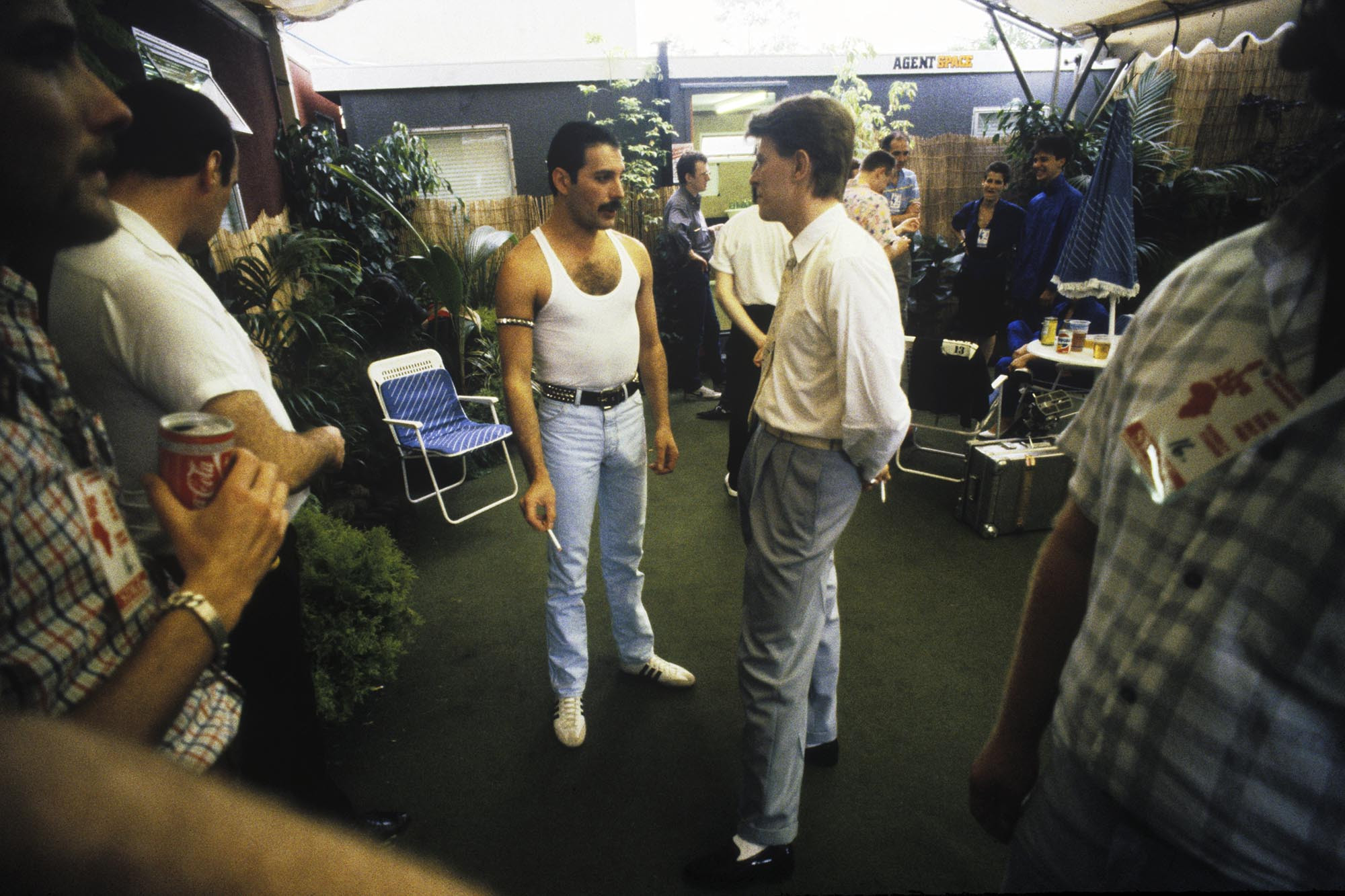 Freddie Mercury and David Bowie backstage at Live Aid in 1985, the iconic duo behind 'Under Pressure'.
Freddie Mercury and David Bowie backstage at Live Aid in 1985, the iconic duo behind 'Under Pressure'.
Image Credit: Denis O’Regan/Getty Images
Freddie Mercury’s vocal acrobatics reach new heights in “Under Pressure,” packing more Galileo-esque peaks into one song than ever before. It’s fitting that Mercury would push his limits in a duet with another killer queen, David Bowie. But instead of a vocal duel, Bowie and Mercury create a collaborative masterpiece. “Under Pressure” is utterly unique in both artists’ careers, a sonic anomaly with no real parallels. (Neither artist was known for their flute use, after all). A heartwarming, if often overlooked, detail from the Mercury biopic: Bowie had his hair styled at Live Aid by Freddie’s boyfriend.
Dexys Midnight Runners – ‘Come On Eileen’
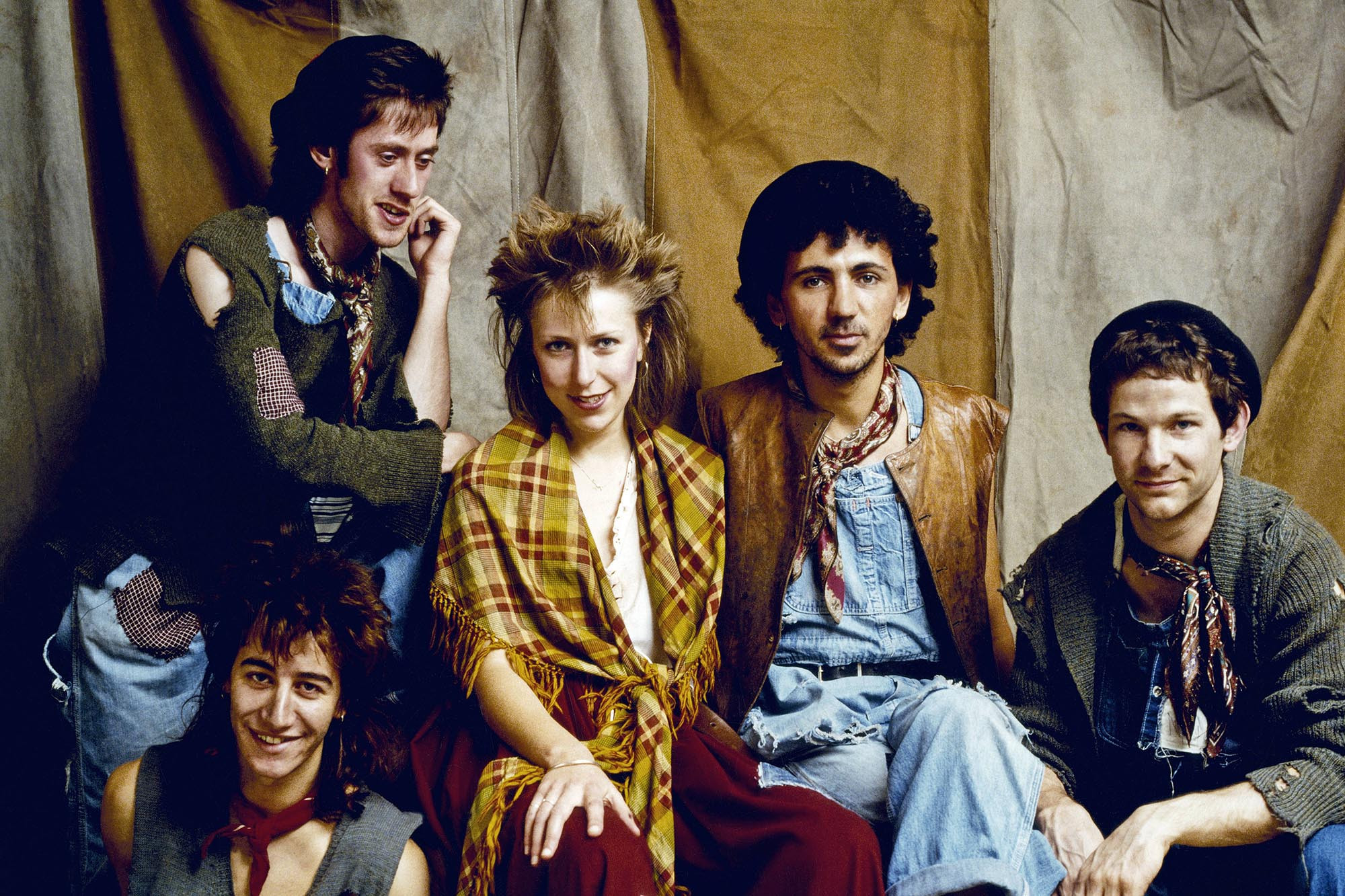 Dexys Midnight Runners in Birmingham, the band behind the Celtic-infused hit 'Come On Eileen'.
Dexys Midnight Runners in Birmingham, the band behind the Celtic-infused hit 'Come On Eileen'.
Image Credit: Brian Cooke/Redferns/Getty Images
Kevin Rowland and Dexys Midnight Runners delivered this Celtsploitation banger, “Come On Eileen,” complete with blazing Irish fiddles and “too-rye-aye” chants. They achieved one-hit-wonder status in the US with this track, but what a hit it was. The song’s infectious energy and Celtic flair made it an instant 80s classic. Memorable line: “At this moment, you mean everything.”
Lionel Richie – ‘All Night Long (All Night)’
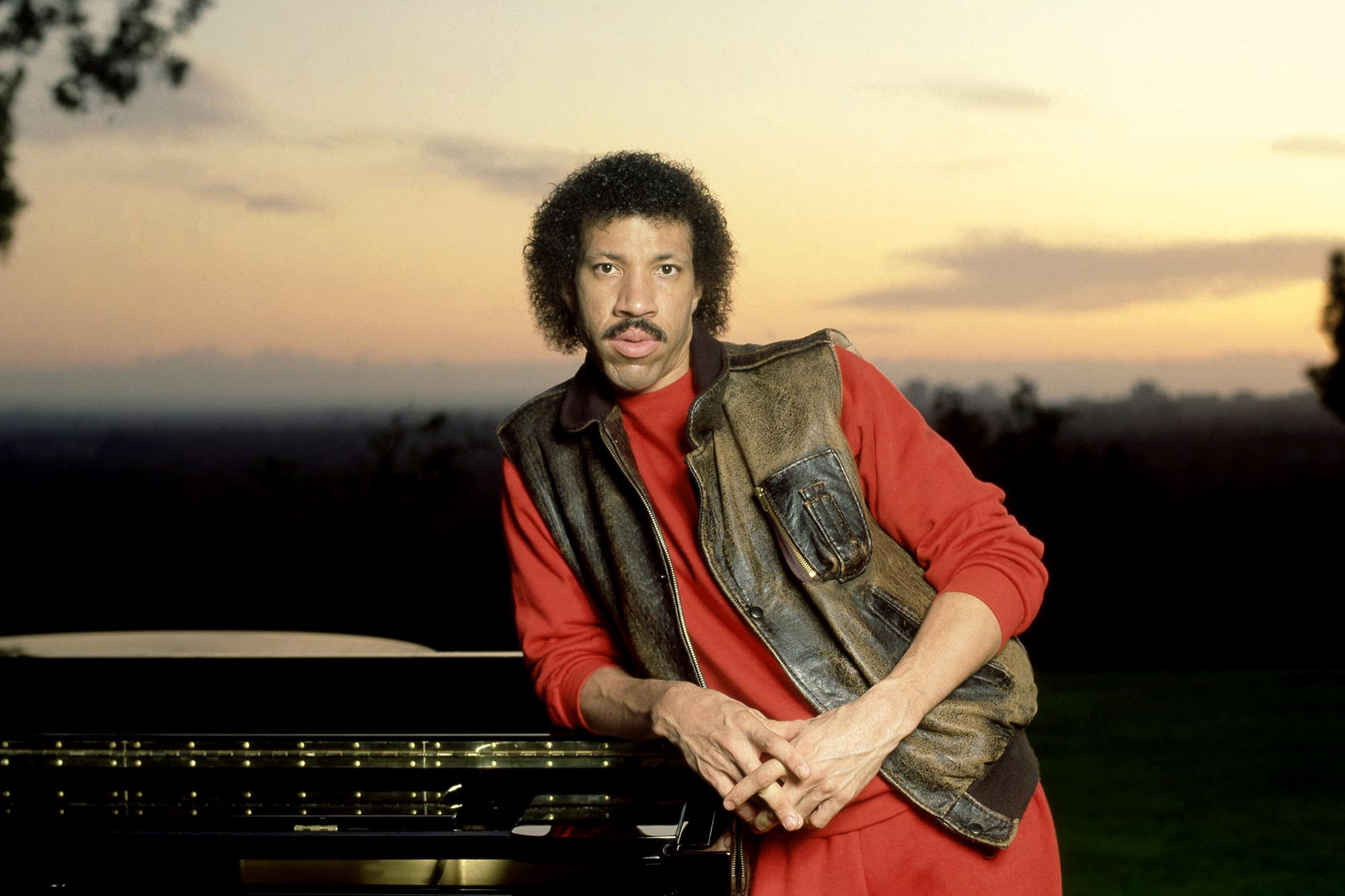 Lionel Richie in Los Angeles in 1983, the master of smooth 80s pop.
Lionel Richie in Los Angeles in 1983, the master of smooth 80s pop.
Image Credit: Bonnie Schiffman/Getty Images
“That song has created more babies after the song,” Lionel Richie joked about “All Night Long (All Night).” “We have populated the world.” This track epitomizes Lionel in his pastel-suited, dancing-on-the-ceiling era. A calypso-infused hit with a Trinidad-via-Tennessee vibe, Richie adopts an exaggerated Jamaican accent that borders on Phil Collins territory. (“Life is goood, wiiild, and sweeeet!”). The African chant section is pure gibberish, invented by Richie, yet it works perfectly. Bonus points for the most pointless subtitle in parenthesis history.
The Stone Roses – ‘I Wanna Be Adored’
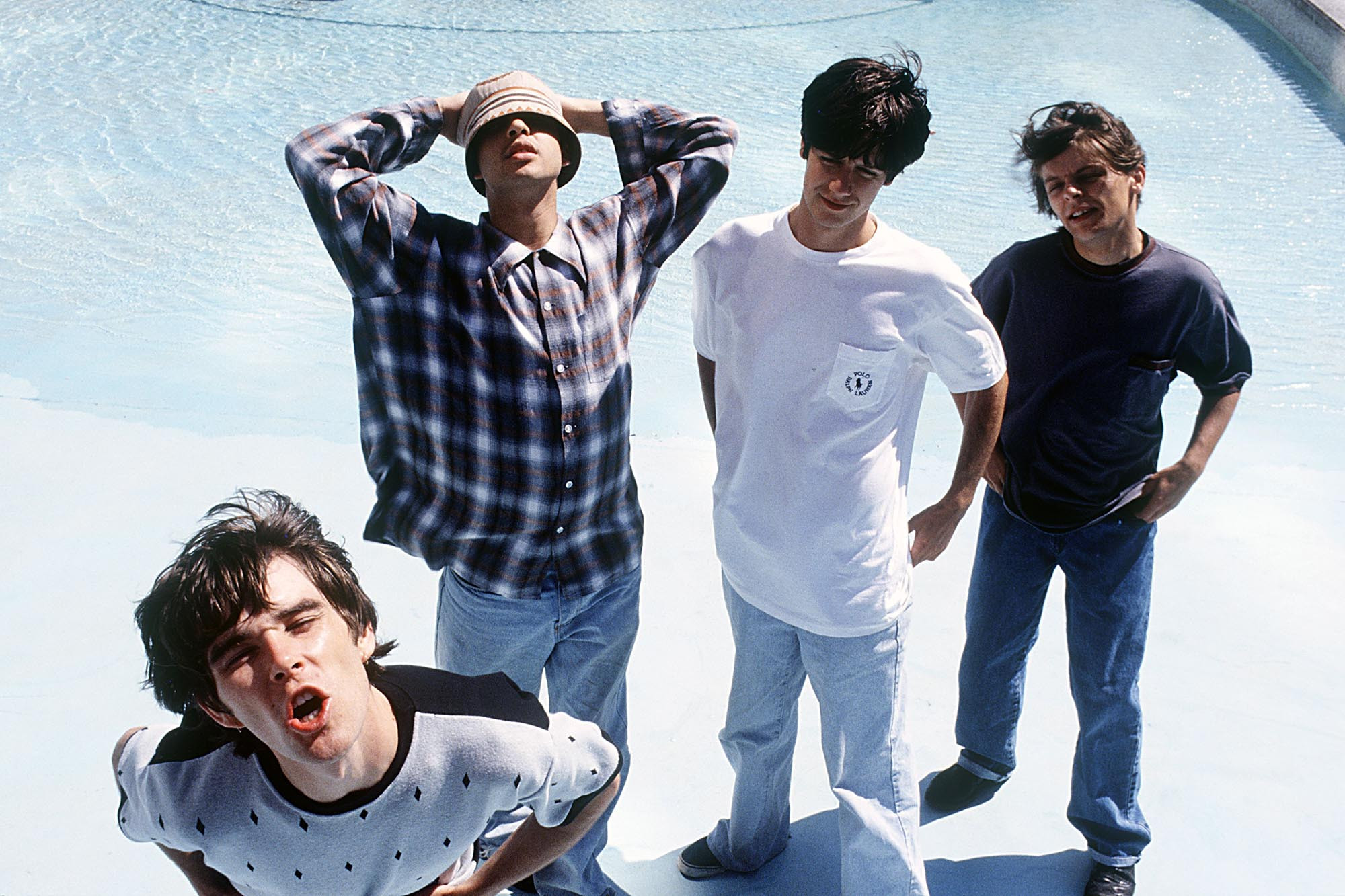 The Stone Roses in 1989, the Manchester band that defined the Madchester sound.
The Stone Roses in 1989, the Manchester band that defined the Madchester sound.
Image Credit: Brian Rasic/Getty Images
The Stone Roses, Manchester’s guitar heroes, take a glorious ego trip with “I Wanna Be Adored.” Drugs may be overrated, but adoration, according to this anthem, is definitely underrated. The song’s hypnotic groove and Ian Brown’s detached vocals create an atmosphere of cool confidence and self-assured swagger. A defining track of the Madchester scene and 80s indie rock.
New Kids on the Block – ‘Hangin’ Tough’
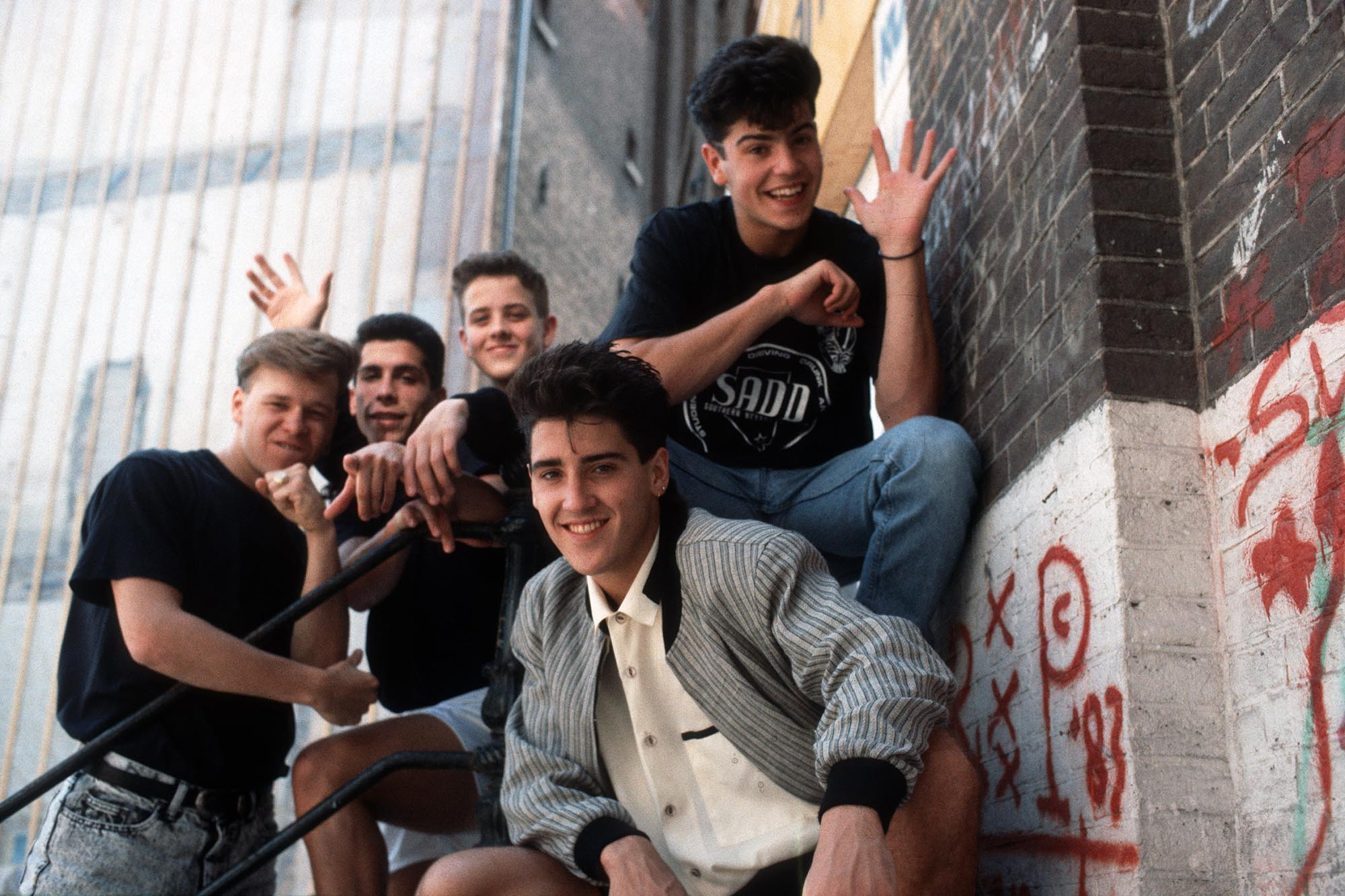 New Kids on the Block, the boy band phenomenon of the late 80s.
New Kids on the Block, the boy band phenomenon of the late 80s.
Image Credit: Michel Linssen/Redferns/Getty Images
“Listen up everybody, if you wanna take a chance. Just get on the floor and do the New Kids dance.” Here’s to Joey, Jordan, Donnie, Jon, and Danny, the quintessential boy band. They put you in a trance with their funky song, “Hangin’ Tough.” Chuck D, surprisingly, declared himself a New Kids fan – “they sincerely love hip-hop” – highlighting the wonderfully strange musical landscape of the late 80s, where boy bands and hip-hop coexisted and even influenced each other.
Missing Persons – ‘Words’
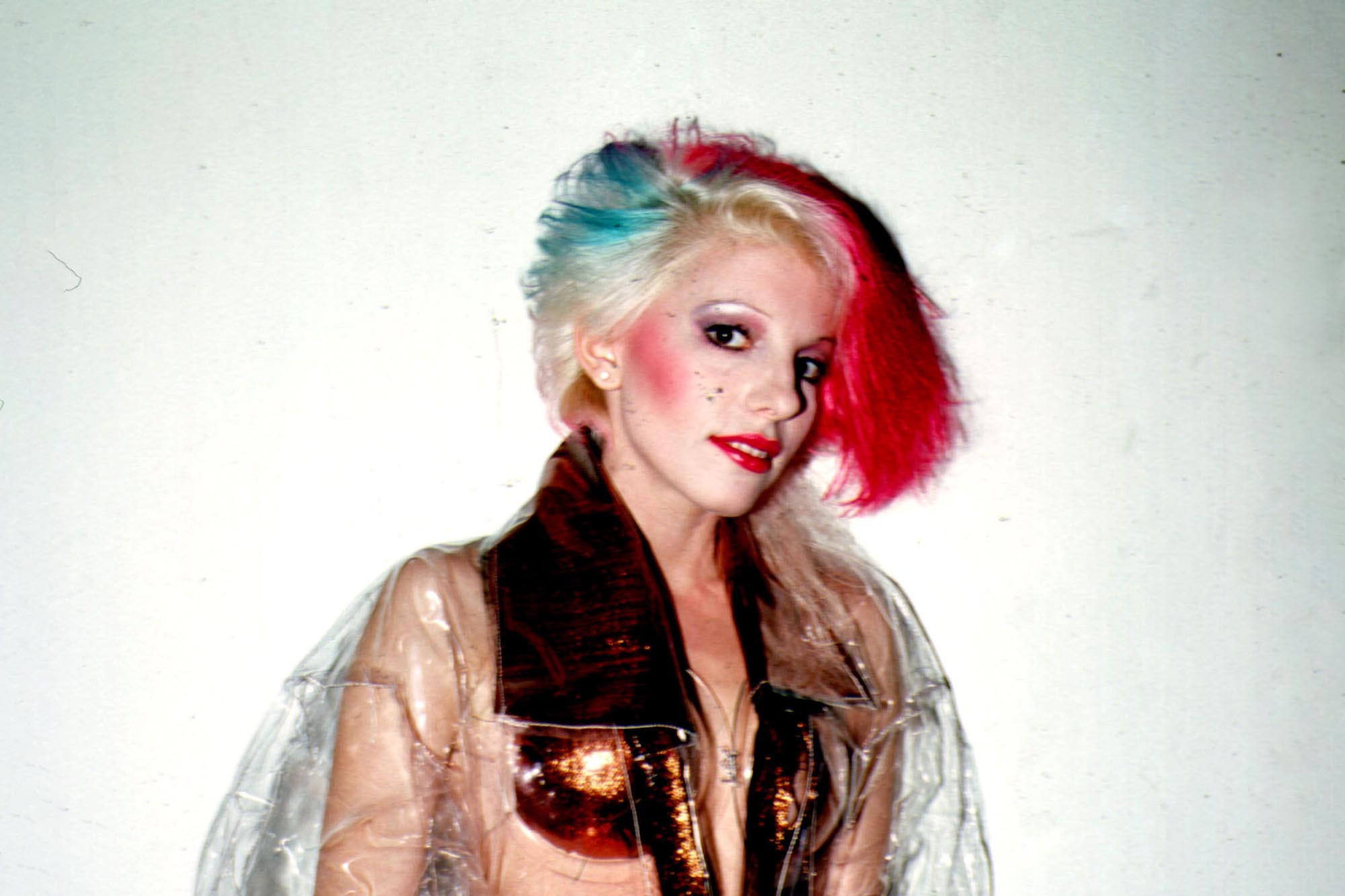 Dale Bozzio of Missing Persons, the New Wave icon with a distinctive style.
Dale Bozzio of Missing Persons, the New Wave icon with a distinctive style.
Image Credit: Ron Wolfson/WireImage
Teen angst, 80s style. When Dale Bozzio sang “No one notices/I think I’ll dye my hair blue,” in “Words,” it resonated with every teenager feeling invisible and misunderstood. Missing Persons captured the anxieties and alienation of adolescence with a catchy New Wave sound and Bozzio’s unique, theatrical vocals.
Ratt – ‘Round and Round’
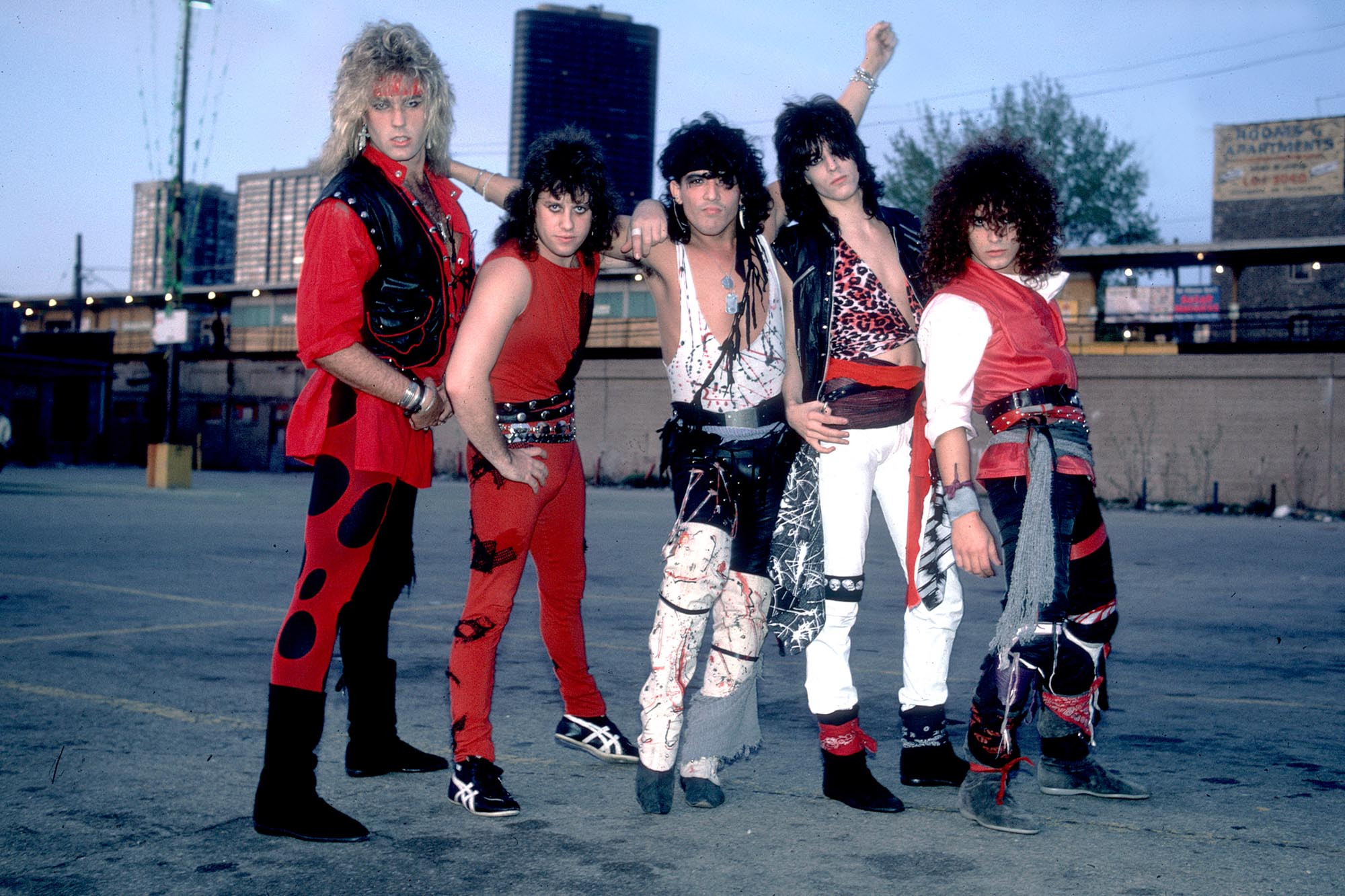 Ratt in Chicago in 1984, the glam metal band that conquered MTV.
Ratt in Chicago in 1984, the glam metal band that conquered MTV.
Image Credit: Paul Natkin/Getty Images
Ratt emerged from the Sunset Strip glam metal scene and quickly eclipsed the competition with their 1984 summer smash, “Round and Round.” Stephen Pearcy’s raspy vocals, seductive lyrics (“looking at you, looking at me” was daringly romantic for 80s metal), and the song’s echo-laden chorus created an instant anthem. The music video, featuring comedy legend Milton Berle in drag and a dinner party guest spontaneously stripping upon hearing Ratt jam in the attic, is pure 80s MTV gold. And who can forget the Shakespearean (albeit loosely interpreted) allusion: “Like Romeo to Juliet, time and time, I’m gonna make you mine.” Glam metal romance at its finest.
The English Beat – ‘Twist and Crawl’
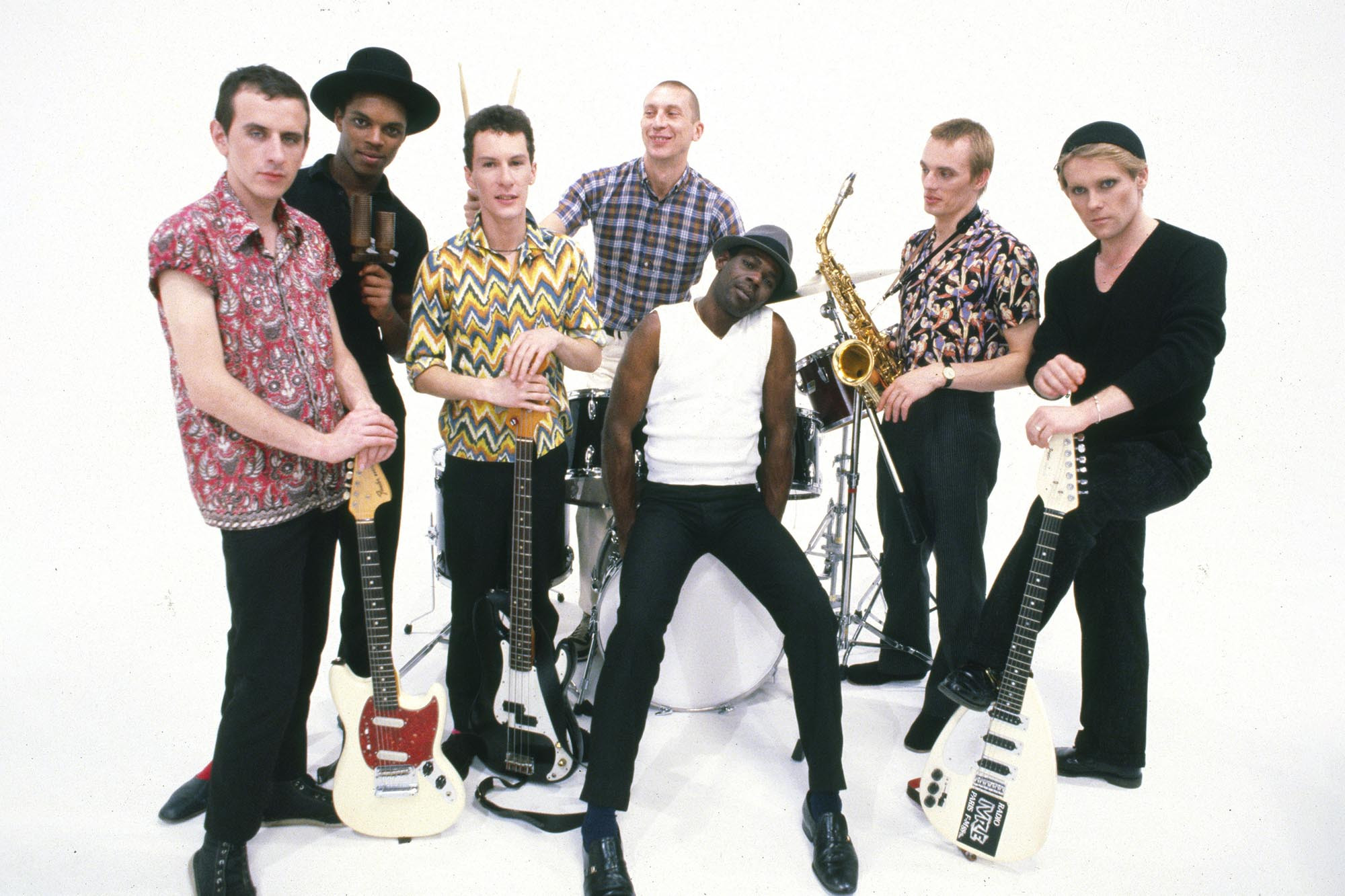 The English Beat in 1982, the multiracial ska band from Birmingham.
The English Beat in 1982, the multiracial ska band from Birmingham.
Image Credit: Chris Walter/WireImage
“Twist and Crawl” boasts one of the slinkiest bass lines of the 80s. The English Beat, a multiracial ska band from Birmingham, England, challenged racism with their upbeat, herky-jerky rhythms. Their Go Feet record label graphics, featuring dancing girls, were a deliberate statement of anti-misogyny. (Gwen Stefani famously cited the “Go Feet girl” as her inspiration for getting into ska). “We thought it would be nice to be a dance band,” Dave Wakeling told Rolling Stone in 1980. “We just want to survive World War III by trying to find a place where the bombs might miss.” Danceable escapism with a message.
L’Trimm – ‘Cars With the Boom’
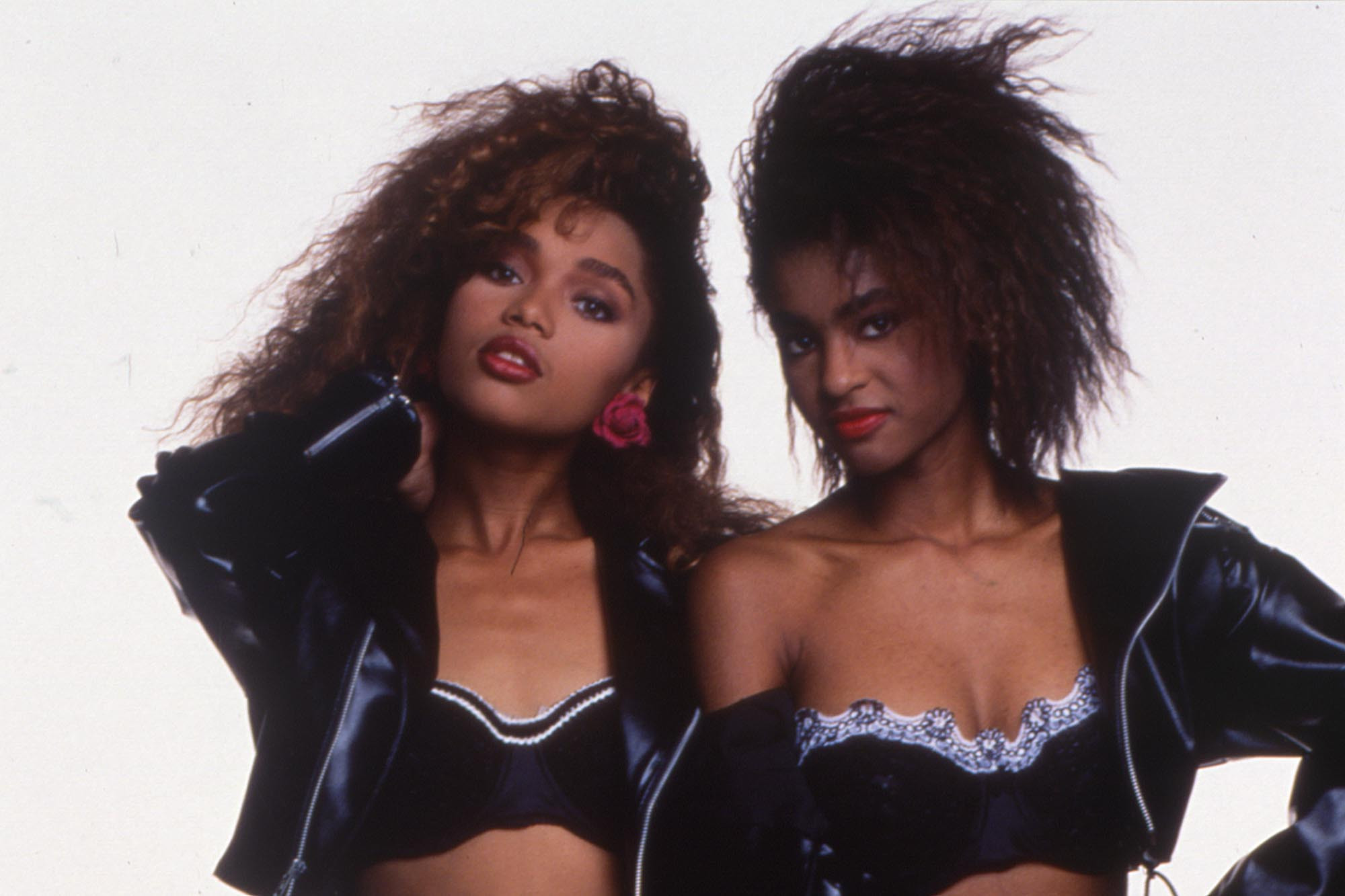 L'Trimm in 1991, the Miami bass duo that brought car stereo culture to the mainstream.
L'Trimm in 1991, the Miami bass duo that brought car stereo culture to the mainstream.
Image Credit: © Roy Volkmann/Courtesy Warner Music Group
Psych! You thought you were just driving a car, but it’s actually a guerilla boombox for teenage duo Tigra and Bunny to unleash Miami bass mayhem on the highways. L’Trimm’s “Cars With the Boom” is a celebration of car stereo culture, with the duo urging listeners, “Everybody beep your horns if you hear us! Beep louder!” Pure Miami bass energy and 80s car culture rolled into one track.
Modern English – ‘I Melt With You’
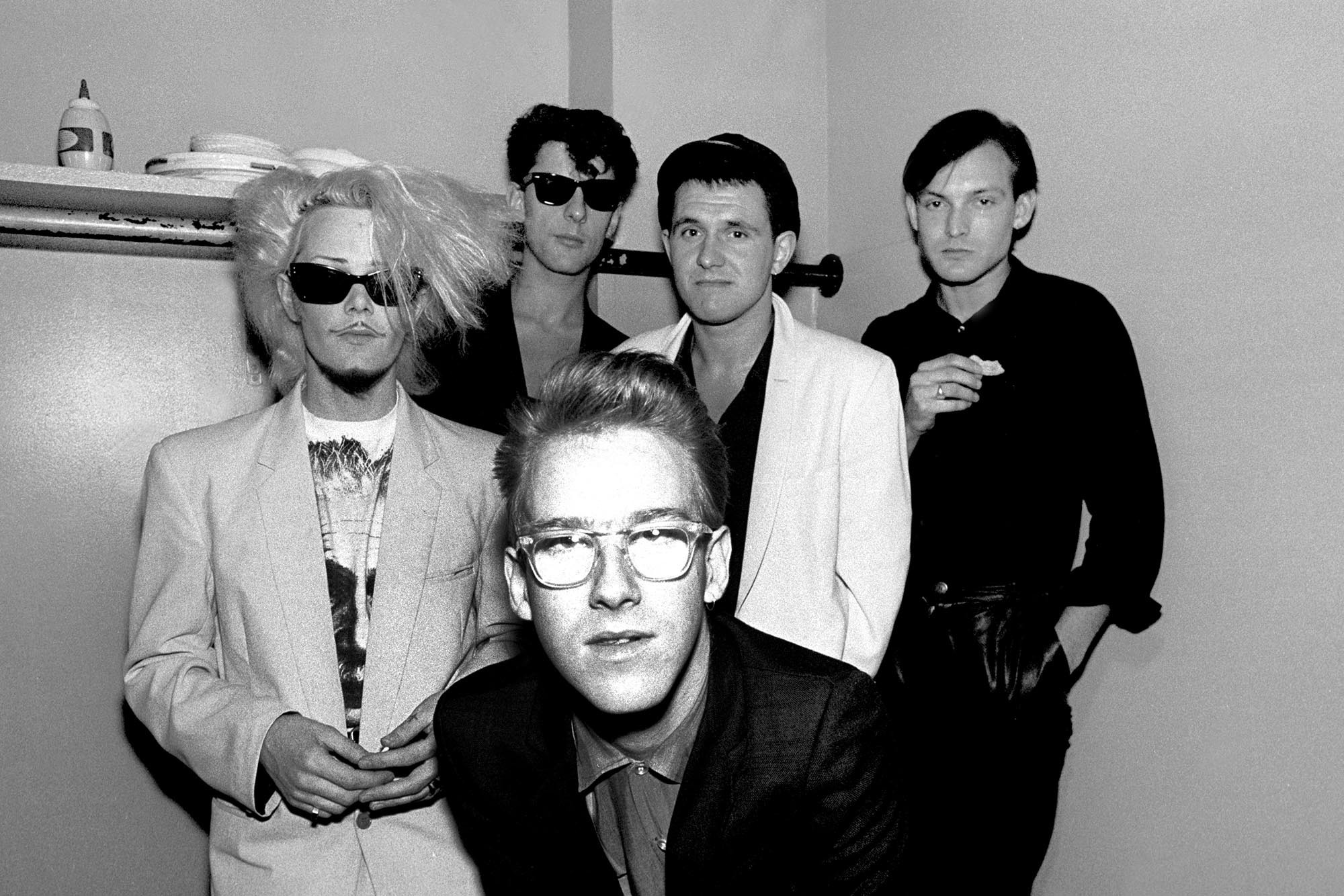 Modern English backstage in Chicago in 1983, the New Wave band behind 'I Melt With You'.
Modern English backstage in Chicago in 1983, the New Wave band behind 'I Melt With You'.
Image Credit: Paul Natkin/Getty Images
“I Melt With You” features arguably the greatest humming solo ever recorded. Modern English singer Robbie Grey explained, “It was about a couple making love as the bomb dropped.” When the music abruptly stops for that iconic hmm-hmm-hmm climax, the future hangs in the balance. When Robbie sings, “Making love to you was never second best,” it was probably meant to be a grander compliment, but the line’s understated delivery adds to the song’s poignant and slightly melancholic charm. A New Wave classic with a surprisingly apocalyptic undertone.
Billy Idol – ‘White Wedding’
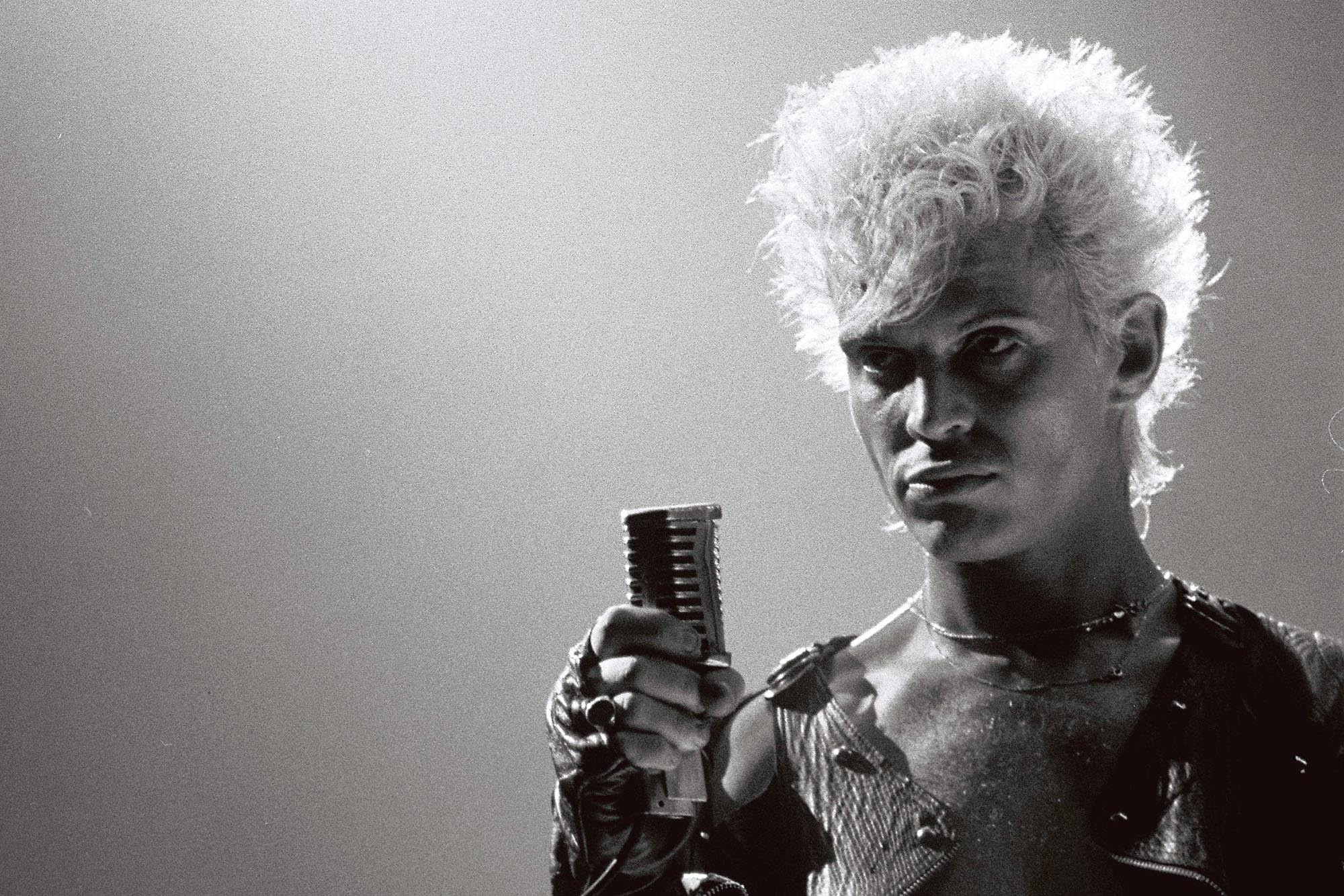 Billy Idol in London in 1982, the rebel yell of 80s rock.
Billy Idol in London in 1982, the rebel yell of 80s rock.
Image Credit: Clare Muller/Redfern/Getty Images
Billy Idol unleashes his rebel yell in “White Wedding,” a song brimming with sex, religion, and shotguns. This summer-of-’82 hit solidified Idol’s status as one of the 80s’ great rock & roll fame sluts, in a decade overflowing with contenders for that title. “White Wedding” is pure Billy Idol – raw energy, catchy hooks, and a rebellious attitude that defined 80s rock.
Peech Boys – ‘Don’t Make Me Wait’
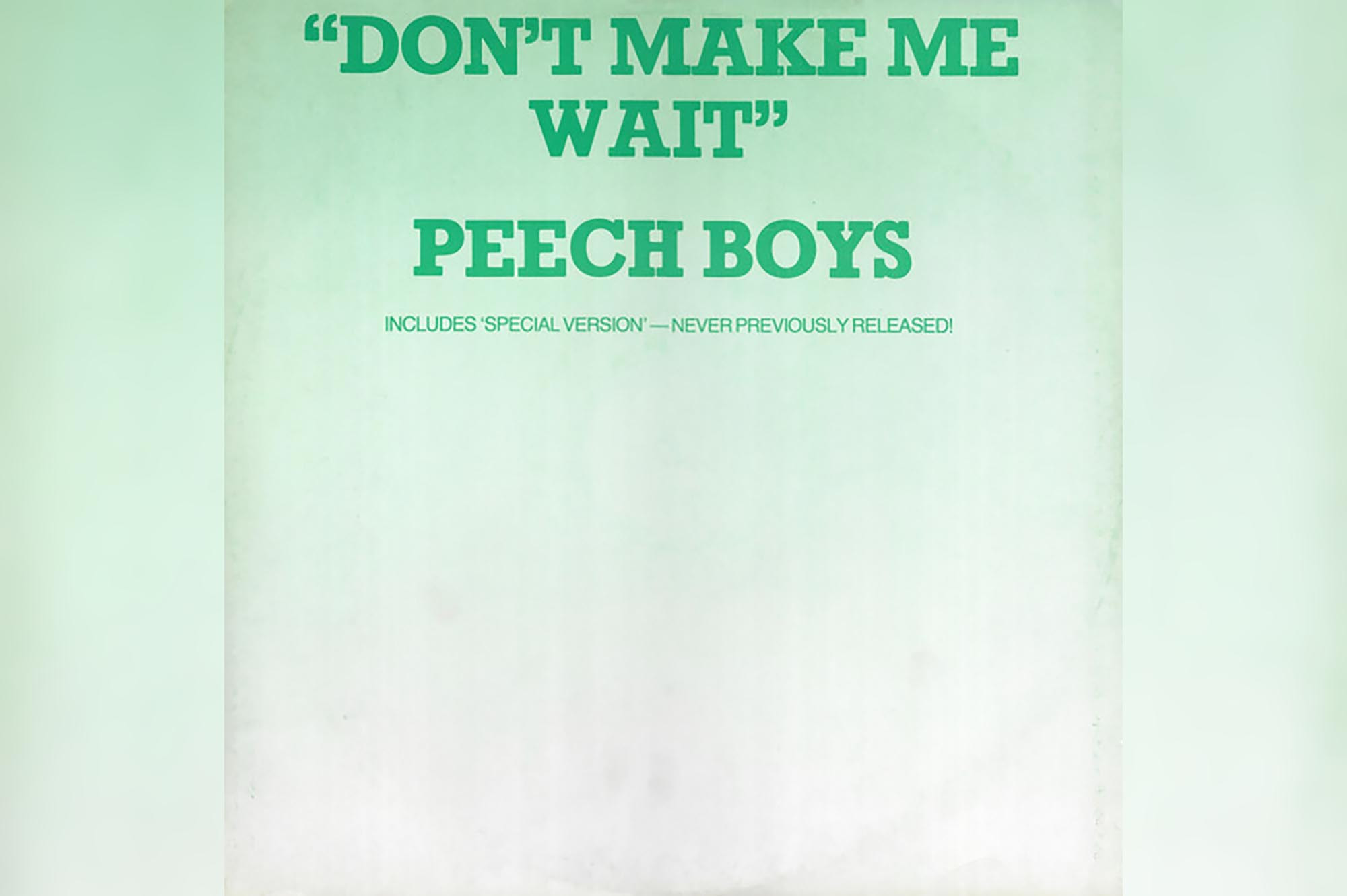 Peech Boys, pioneers of the Paradise Garage sound.
Peech Boys, pioneers of the Paradise Garage sound.
Larry Levan, the legendary DJ guru of the Paradise Garage, shaped dance music as we know it. (NYC record stores famously opened early Sunday mornings, directly after the Garage closed, so rival DJs could snatch up whatever tracks Levan had just spun). The Paradise Garage famously lacked a liquor license, so the house drink was fruit punch spiked with acid – hence the Peech Boys’ name. Levan’s musical vision is fully realized in “Don’t Make Me Wait,” evoking a vibrant city nightlife, teeming with party people ready to emerge at sunset and take over the dance floor. A foundational track for house music and the Paradise Garage sound.
The Dream Syndicate – ‘Open Hour’
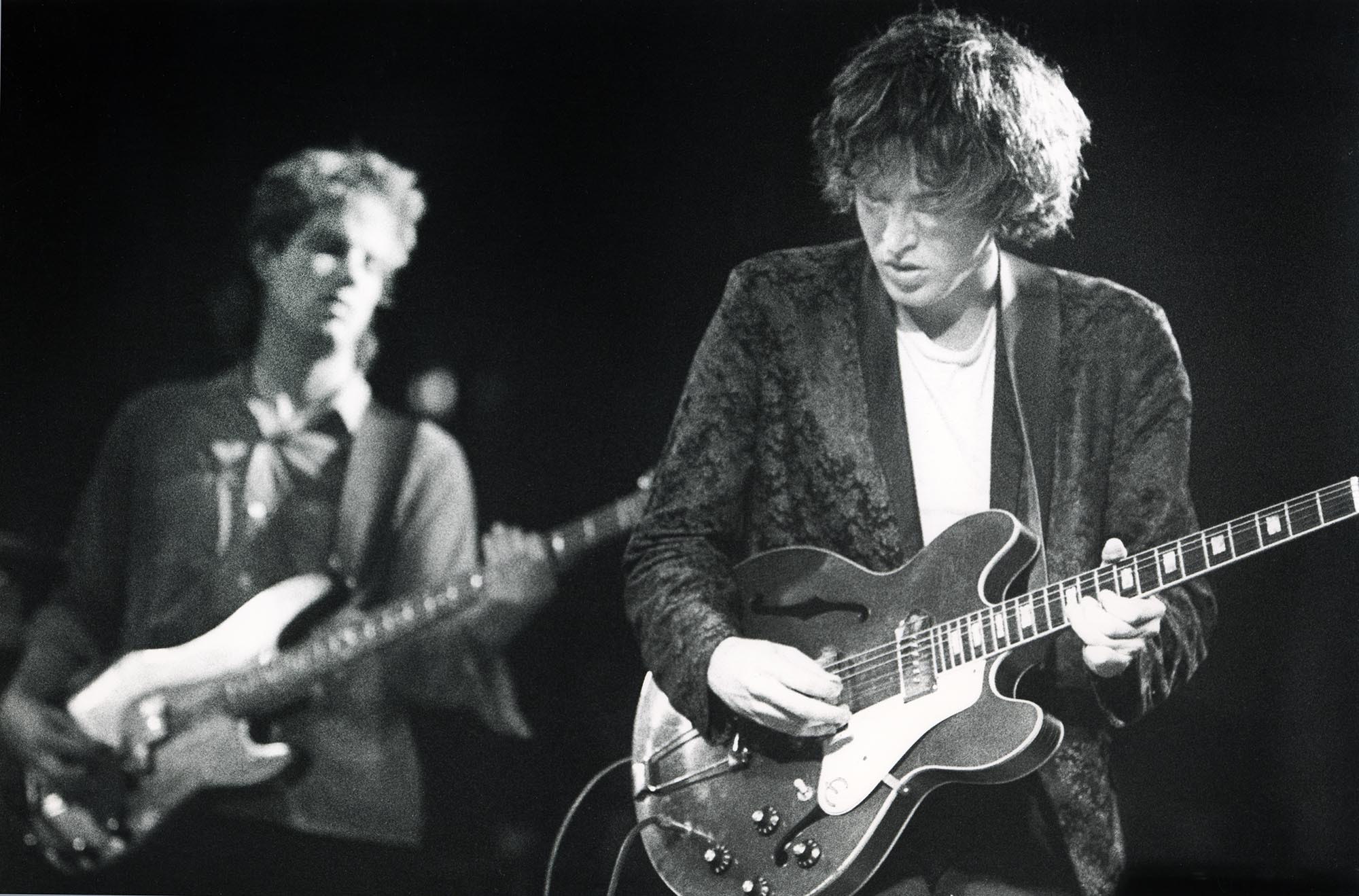 The Dream Syndicate, pioneers of the Paisley Underground scene.
The Dream Syndicate, pioneers of the Paisley Underground scene.
Image Credit: Gie Knaeps/Getty Images
The Dream Syndicate, the LA post-punk garage band, specialized in guitar pyrotechnics, unashamedly embracing psychedelic sounds. Emerging from LA’s Paisley Underground scene with The Days of Wine and Roses, one of the defining six-string albums of the 80s, they influenced bands from Dinosaur Jr. to Japandroids. “Open Hour” was their epic jam, their “Sister Ray” or “Dark Star” or “Marquee Moon,” evolving live and later recorded as “John Coltrane Stereo Blues.” However, it’s best heard in this KPFK radio jam, reissued on the compilation History Kinda Pales When It and You Are Aligned. Karl Precoda and Steve Wynn ride waves of feedback over a Creedence-esque groove – eight minutes of guitars doing exactly what guitars were invented to do.
Linton Kwesi Johnson – ‘Inglan Is a Bitch’
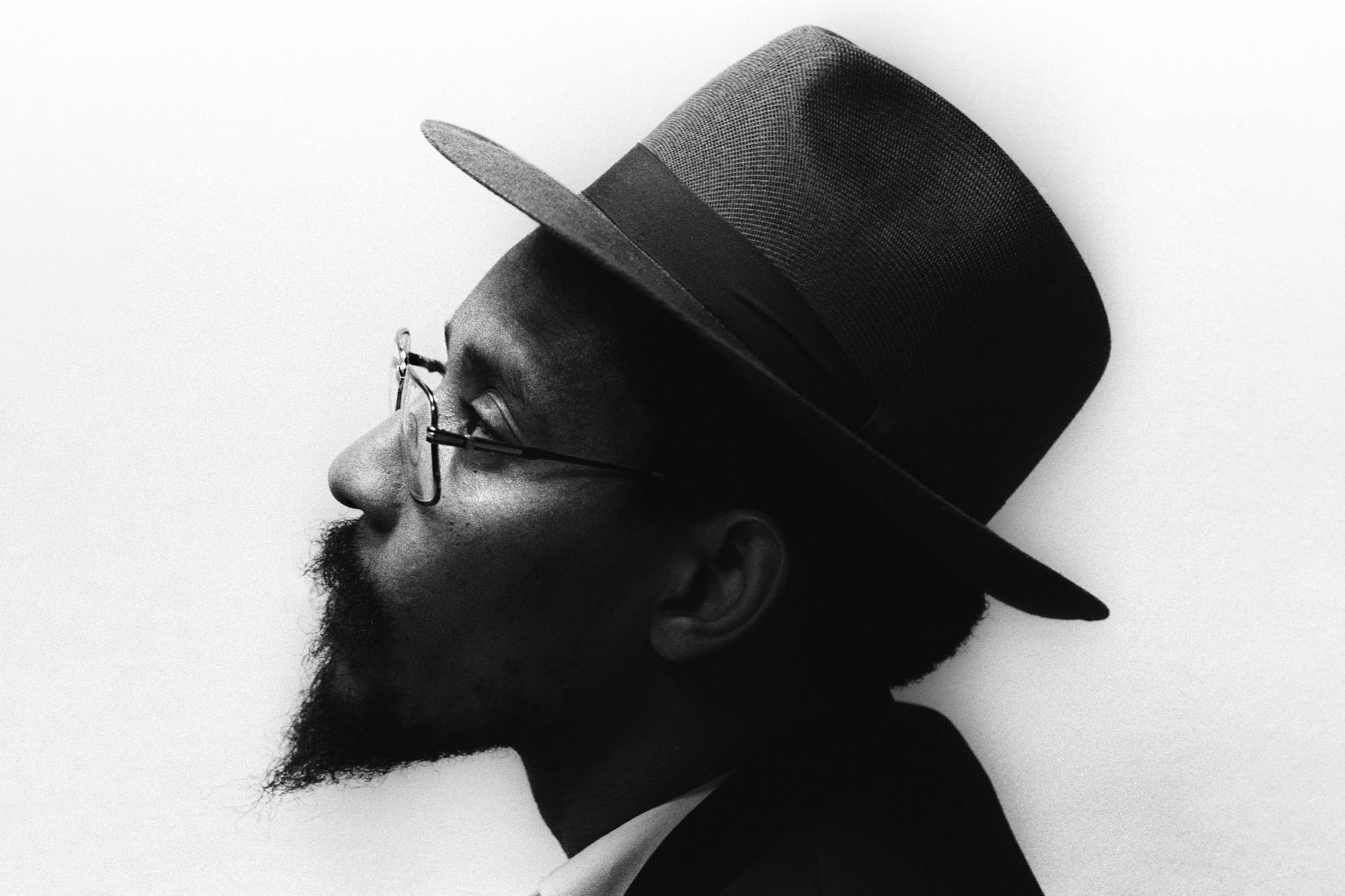 Linton Kwesi Johnson, the dub poet who gave voice to Black British experience.
Linton Kwesi Johnson, the dub poet who gave voice to Black British experience.
Image Credit: Lex van Rossen/MAI/Redferns/Getty Images
Linton Kwesi Johnson, the Jamaican-born English dub poet, created a powerful body of politically charged reggae albums, reciting his protest verse in Jamaican Patois. In “Inglan Is a Bitch,” from his seminal 1980 LP Bass Culture, LKJ delivers a stark report on the systemic oppression faced by Afro-Caribbean immigrants in London. A vital voice of resistance and social commentary within 80s reggae.
Dominatrix – ‘The Dominatrix Sleeps Tonight’
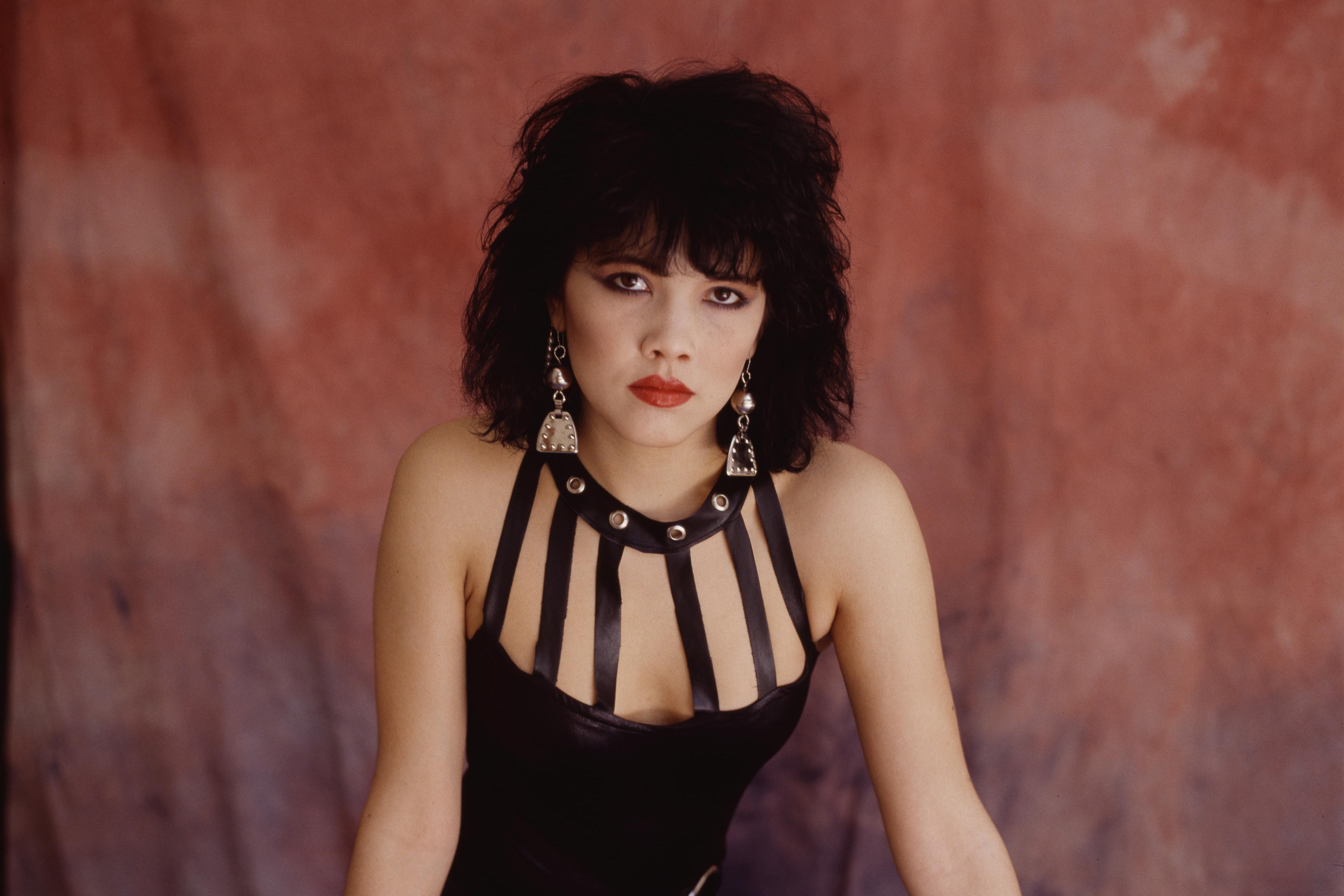 Dominatrix in New York in 1984, the enigmatic synth-pop group.
Dominatrix in New York in 1984, the enigmatic synth-pop group.
Image Credit: Michael Putland/Getty Images
“The Dominatrix Sleeps Tonight” is a mysterious and kinky NYC club classic. Shrouded in anonymity, the track features the sounds of whips cracking, insistent drum machines, and bubbling synth melodies. The narrator, a robotic-sounding sex priestess, delivers lines with fabulous boredom: “That night, a wild party/Women beat their men/Animals watch beyond the fire/The dominatrix … sleeps … tonight!” A quintessential track of 80s underground electronic music, both provocative and enigmatic.


